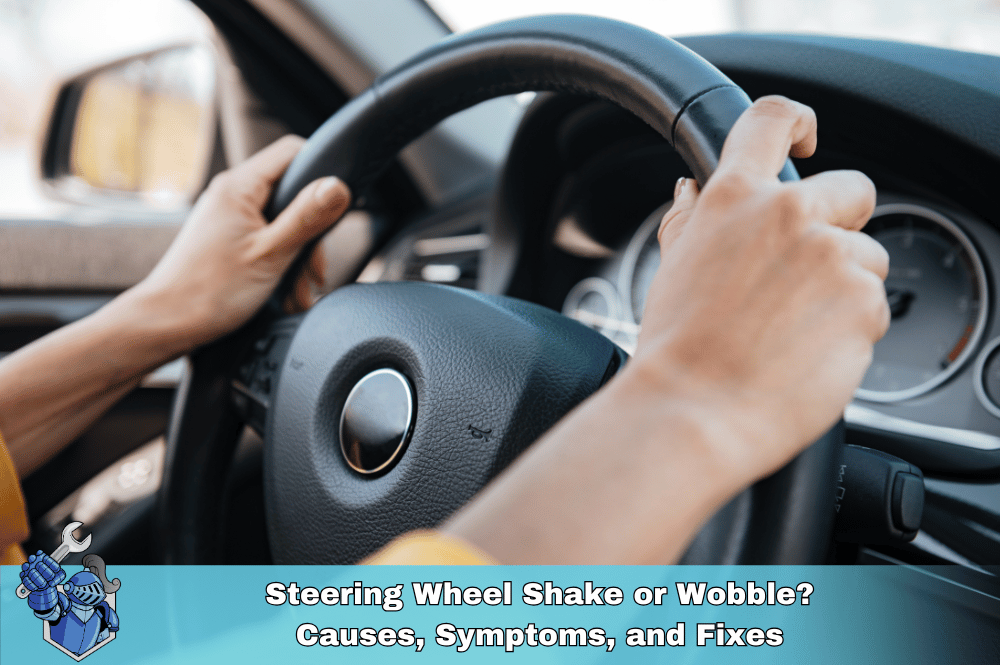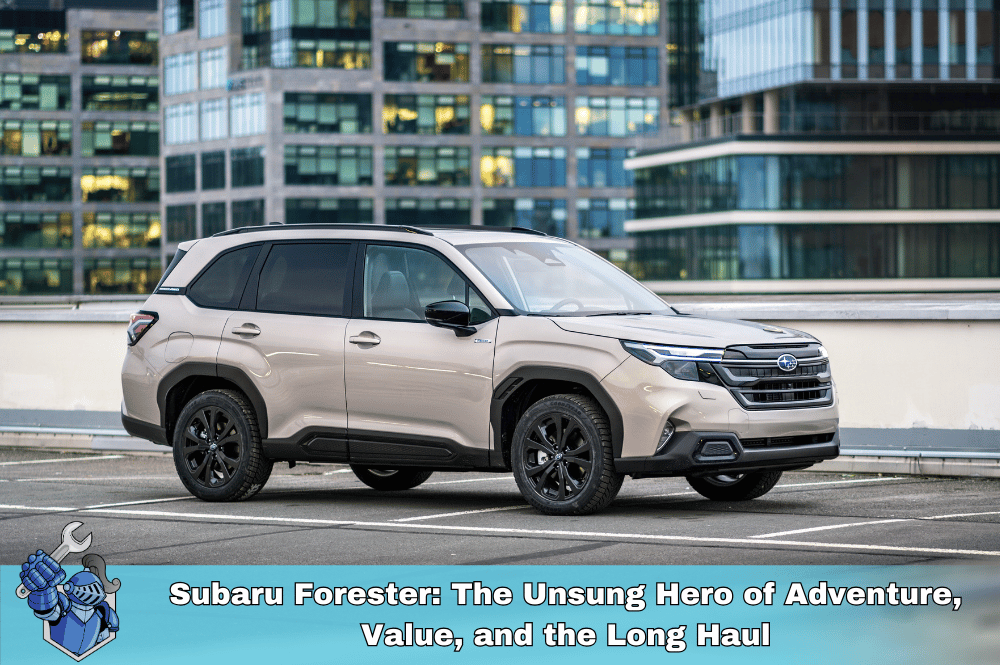A vehicle service contract (VSC) is a protection plan that covers certain repair costs after your manufacturer’s warranty expires. It functions like extended coverage for mechanical breakdowns, but it only covers what's outlined in the agreement.
When you buy a car—especially a used one—it’s not just about the horsepower, the paint job, or even the price. It’s about protecting yourself from what comes next: breakdowns, surprise repairs, and financial curveballs. That’s where a vehicle service contract (VSC), often called an extended car warranty, comes in.
But here’s the catch—if you don’t read your VSC contract before signing, you might end up with a policy that’s riddled with loopholes, exclusions, or vague language that can leave you stranded at the repair shop. This guide will walk you through how to read your vehicle service contract, what red flags to watch out for, and how to avoid extended car warranty scams altogether.
Why Vehicle Service Contracts Are Confusing (and Risky If You’re Not Careful)
Unlike the manufacturer’s warranty, which is typically included with a new car and backed by the automaker, a vehicle service contract is an optional protection plan sold by third-party companies or dealerships. These contracts promise to cover the cost of certain mechanical failures or repairs after the original warranty expires.
The problem? The VSC contract fine print often includes exclusions, deductibles, and hidden clauses that many buyers don’t discover until their claim is denied—at the worst possible time.
The #1 Defense Against VSC Scams: Read the Contract
You wouldn’t sign a home mortgage or lease without reading it. Your car service contract deserves the same attention. Here's why:
1. Coverage Varies Drastically
Don’t assume a plan covers everything from bumper to bumper. Many VSCs are inclusionary, meaning they only cover what is specifically listed. Others are exclusionary, which may offer broader protection—unless an item is specifically excluded.
Understanding what does VSC cover and comparing it to what components are typically not covered by VSC is key.
2. Pre-Existing Conditions Are a Common Denial Tactic
Many VSC providers won’t pay out for issues that existed before the contract start date. If you recently bought a used car, make sure you understand how your contract handles pre-existing conditions and whether there's a cooling off period.
3. You May Be Required to Follow Strict Maintenance Guidelines
Some policies mandate that you follow a strict car maintenance schedule and keep records—or risk voiding your vehicle service contract. Failure to do so may be grounds for extended warranty denied claim.

Common VSC Scams (and How to Avoid Them)
Bad actors exist in every industry, but vehicle protection plan scams have become especially aggressive. Here’s what to watch out for:
1. Aggressive Sales Tactics from Cold Calls or Mailers
If someone calls out of the blue claiming your auto warranty is expiring, it’s probably a third-party extended warranty pitch. Hang up and verify your coverage yourself.
2. Vague or Nonexistent Coverage Details
A legitimate provider should clearly outline VSC coverage details, deductible amounts, and the claims process. If the rep can’t—or won’t—answer specific questions, that’s a red flag.
3. No Contract Provided Before Payment
Never pay for a car repair insurance plan without seeing the full agreement. Insist on reading the policy document before signing or making any payment.
What to Look for in a VSC Contract
Reading the contract may seem tedious, but it’s your best shield. Here’s what to focus on:
- Coverage Levels – Are you getting powertrain-only, named component, or exclusionary (bumper-to-bumper) coverage?
- Exclusions – Pay attention to VSC exclusions, especially wear-and-tear items, gaskets, fluids, or electronics.
- Deductible – Some plans charge per visit, others per repair. Know your vehicle service contract deductible terms.
- Transferability – A transfer vehicle service contract clause can add value when selling your car.
- Cancellation Policy – Look for a cooling off period and instructions on how to cancel a vehicle service contract.
- Claim Process – Understand how to file a VSC claim, what documentation is required, and who the VSC administrator is.
- Repair Shop Flexibility – Can you choose your own repair shop? Are you required to return to a dealership?
Vehicle Service Contract vs Extended Warranty
Technically, an extended car warranty is a term reserved for products backed by the manufacturer. A vehicle service contract, meanwhile, is a similar product typically offered by third-party administrators. While they’re often marketed interchangeably, the vehicle service contract vs extended warranty distinction matters when it comes to legal protections and coverage expectations.

Dealer VSC vs Independent VSC: Which is Better?
When you’re in the dealership finance office, you’ll be offered the dealer’s auto warranty program. It may seem convenient, but it’s not always the most affordable or best option.
Dealer VSCs often:
- Are bundled into your auto loan, increasing interest over time
- Offer fewer customization options
- Are more expensive than independent vehicle service contracts
Independent providers often allow you to:
- Negotiate VSC price
- Choose from more coverage options
- Buy coverage after the sale, giving you time to compare vehicle service contract reviews
What Happens If You Don’t Read Your VSC?
If you ignore the fine print, you risk:
- Facing thousands in auto repair costs with no coverage
- Violating maintenance requirements
- Missing out on key consumer rights
- Paying too much for too little protection
- Getting denied for a legitimate claim
Skipping the contract may leave you asking: “Is my extended car warranty a scam?”
What to Ask Before You Sign
Before purchasing any car service contract, ask these questions:
- What is exclusionary vs inclusionary VSC coverage?
- Are wear and tear or pre-existing conditions covered?
- What’s the claims process?
- Who is the VSC administrator?
- Can I cancel or transfer the contract?
- What’s the repair shop policy?
- What’s the vehicle age and mileage limit?
- What happens if I miss a maintenance interval?
How to Dispute a Denied Claim
If your VSC claim is denied, here’s what to do:
- Review your contract to verify whether the issue should be covered.
- Contact the VSC administrator for clarification and request written documentation.
- File a formal complaint with your state’s consumer protection agency.
- Contact the Better Business Bureau and leave a public review.
- Consult a lawyer if large repair costs are involved or if there’s evidence of contract fraud.
Is a Vehicle Service Contract Worth It?
That depends on:
- Your car’s age and mileage
- Your financial risk tolerance for mechanical failure
- The extended warranty cost vs. estimated repair costs
- Your ability to choose a trustworthy, legitimate provider
In many cases, a well-structured vehicle protection plan can save you thousands. But only if you understand what you’re buying.
Protect Yourself from Scams and Get Real Coverage
If you’re shopping for a vehicle service contract, your best defense is knowledge.
✅ Read every word of the contract
✅ Ask the right questions
✅ Choose a trusted provider with strong vehicle service contract reviews
Want to learn more about what to watch out for and how to get the best coverage? Head over to the Noble Quote Learning Center for more tips, tools, and trusted advice on protecting your vehicle—and your wallet.
Final Thoughts
Your car deserves more than guesswork and blind trust. A vehicle service contract can be a smart investment—but only if you know what you’re buying. Read the contract. Ask questions. Protect yourself.
For more information and support, visit the Noble Quote Learning Center—your hub for smarter car ownership.
Smart Answers About Vehicle Service Contracts: What Drivers Really Need to Know
What is a vehicle service contract and how does it work?
Is a vehicle service contract the same as an extended car warranty?
No. While the terms are often used interchangeably, an extended car warranty is typically offered by the manufacturer, whereas a VSC is usually provided by third-party companies or dealerships.
What should I look for in a vehicle service contract?
Look for clear coverage details, a list of exclusions, claim procedures, deductible information, cancellation terms, and whether the contract is transferable. Always review the full agreement before purchasing.
What are the most common exclusions in a VSC contract?
Common exclusions include wear-and-tear parts, pre-existing conditions, scheduled maintenance, fluids, and cosmetic damages. Always check the fine print for a complete list of what’s not covered.
Can I negotiate the price of a vehicle service contract?
Yes. VSC prices are often marked up at dealerships, so there is room to negotiate. You can also shop around with independent providers for competitive quotes.
How do I file a claim with my vehicle service contract provider?
Start by contacting the VSC administrator before repairs begin. You’ll need a diagnosis from an approved repair shop and may be required to submit documentation or estimates for approval.
What happens if my VSC claim is denied?
Review your contract for clarity, ask the provider for a written explanation, and appeal if necessary. If you believe your claim was unfairly denied, contact your state’s consumer protection agency or the BBB.
Can I cancel my vehicle service contract?
Most VSCs include a cancellation policy. You may receive a full refund if canceled within a cooling-off period (often 30 days), or a prorated refund thereafter, minus administrative fees.
What’s the difference between exclusionary and inclusionary coverage?
Exclusionary contracts cover everything except what is listed as excluded, offering broader protection. Inclusionary contracts only cover specific components that are listed, so they tend to be more limited.
How do I avoid vehicle service contract scams?
Avoid unsolicited offers, demand a full contract before paying, research the provider’s reputation, and never rely solely on sales pitches. Read the fine print and ask direct questions about coverage and limitations.
Suggestions for you
Read MoreLet’s work together
Every week we showcase three charitable organizations that our donations are sent to. Our clients are able to choose which of these three will receive their gift when they add coverage to their vehicle...

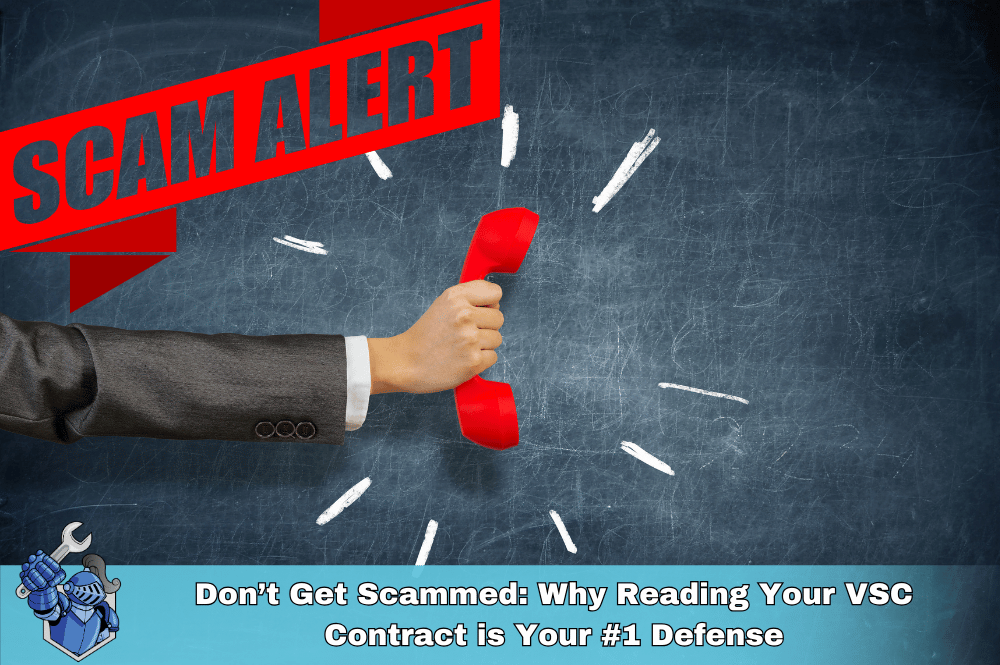
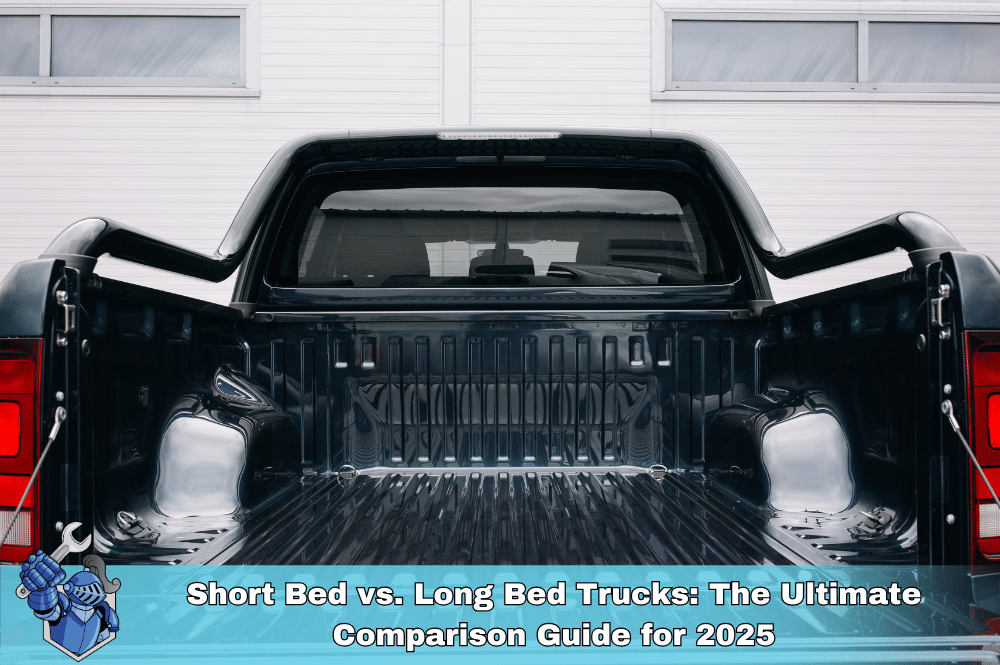 Short Bed vs. Long Bed Trucks: The Ultimate Comparison Guide for 2025
Short Bed vs. Long Bed Trucks: The Ultimate Comparison Guide for 2025 How to Pump Gas: A Complete Step-by-Step Guide for Every Driver
How to Pump Gas: A Complete Step-by-Step Guide for Every Driver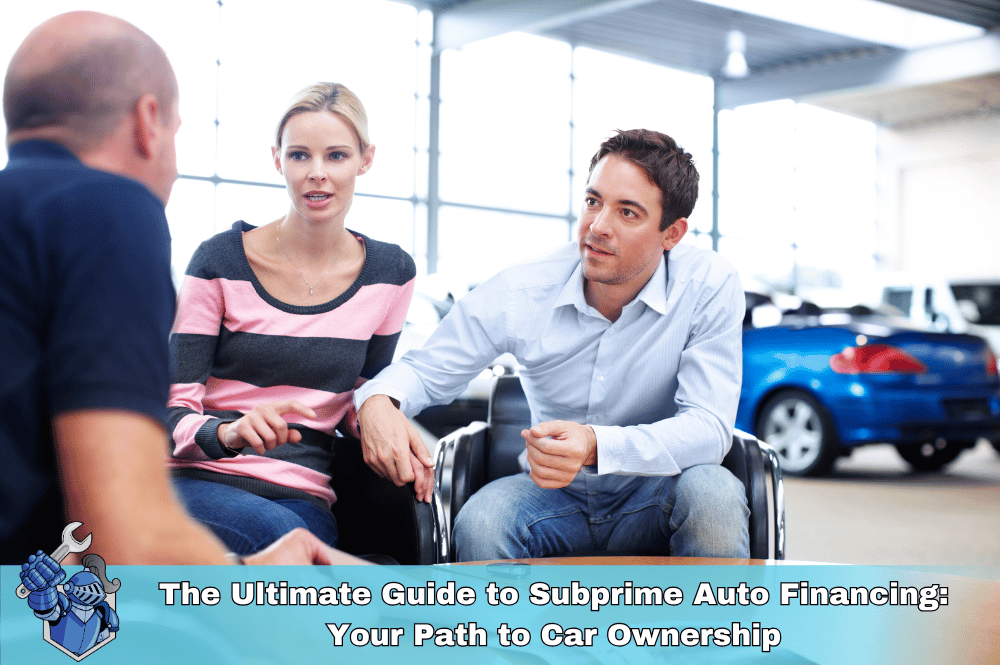 The Ultimate Guide to Subprime Auto Financing: Your Path to Car Ownership
The Ultimate Guide to Subprime Auto Financing: Your Path to Car Ownership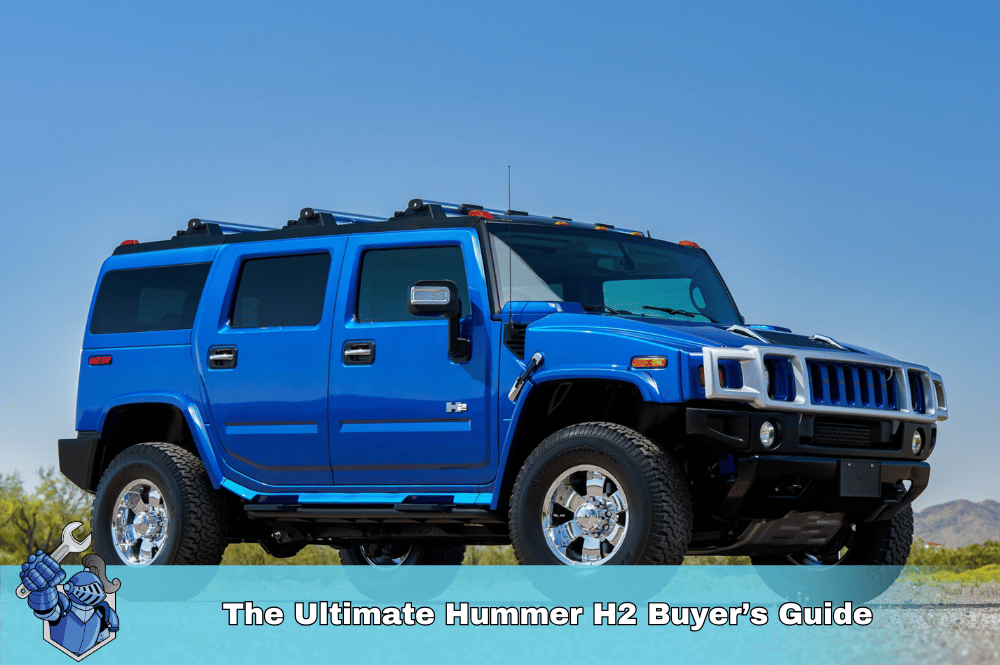 The Ultimate Hummer H2 Buyer’s Guide: Common Problems, Reliability, and What to Know Before You Buy
The Ultimate Hummer H2 Buyer’s Guide: Common Problems, Reliability, and What to Know Before You Buy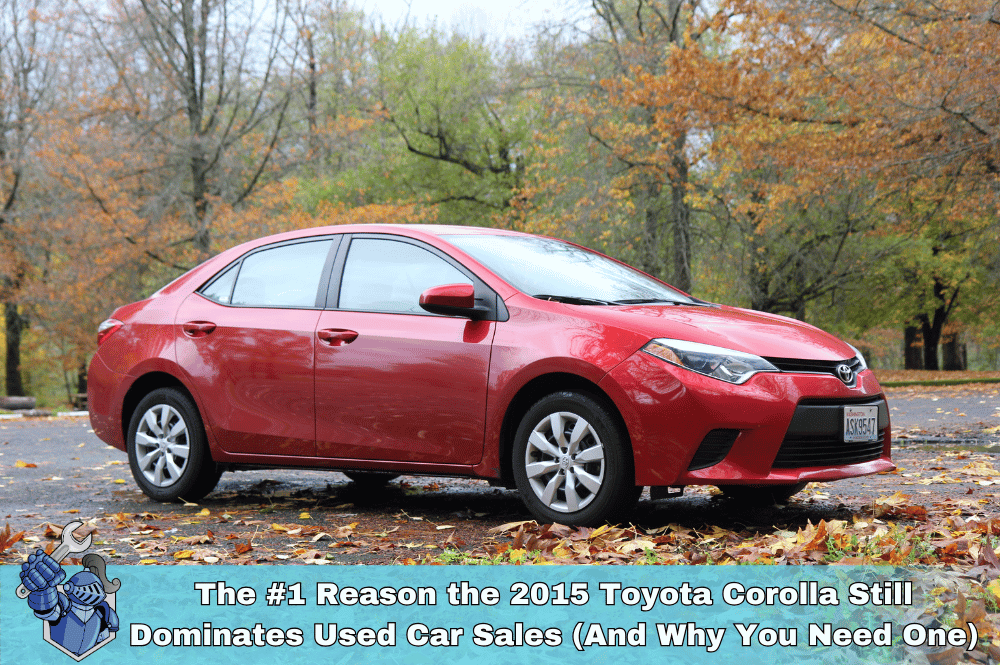 The #1 Reason the 2015 Toyota Corolla Still Dominates Used Car Sales (And Why You Need One)
The #1 Reason the 2015 Toyota Corolla Still Dominates Used Car Sales (And Why You Need One)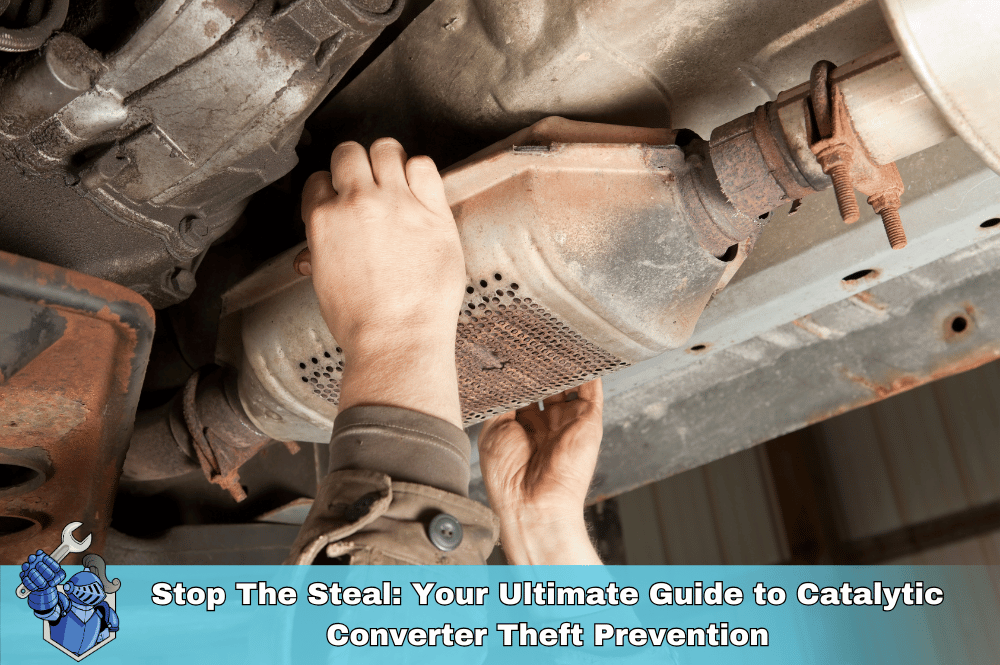 Stop The Steal: Your Ultimate Guide to Catalytic Converter Theft Prevention
Stop The Steal: Your Ultimate Guide to Catalytic Converter Theft Prevention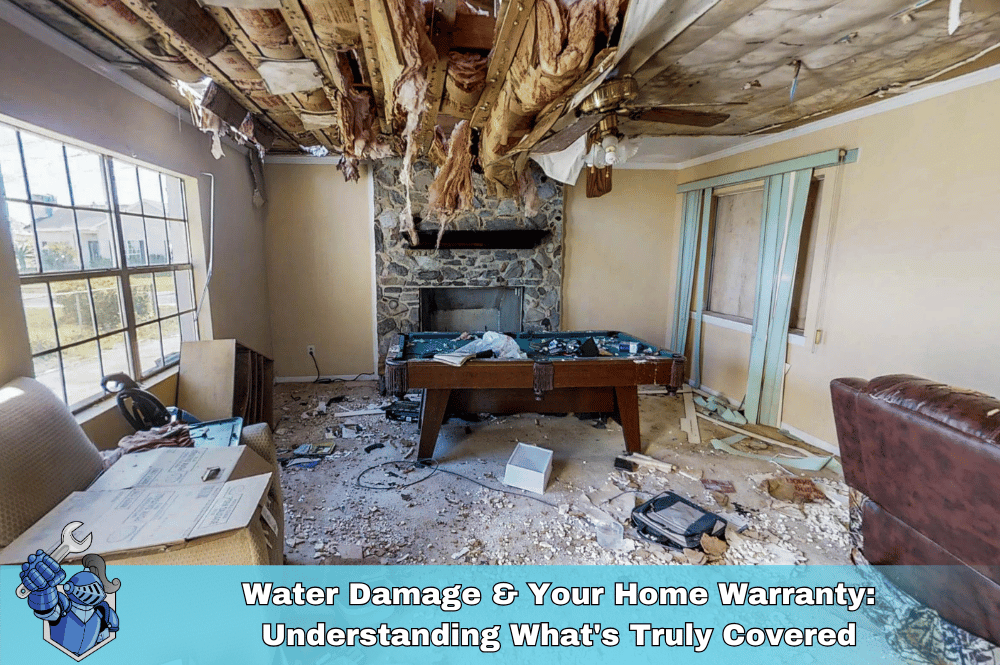 Water Damage & Your Home Warranty: Understanding What's Truly Covered (and What Isn't!)
Water Damage & Your Home Warranty: Understanding What's Truly Covered (and What Isn't!) Confessions of a Car Salesperson: What They Don’t Want You to Know (And How to Use It to Your Advantage)
Confessions of a Car Salesperson: What They Don’t Want You to Know (And How to Use It to Your Advantage)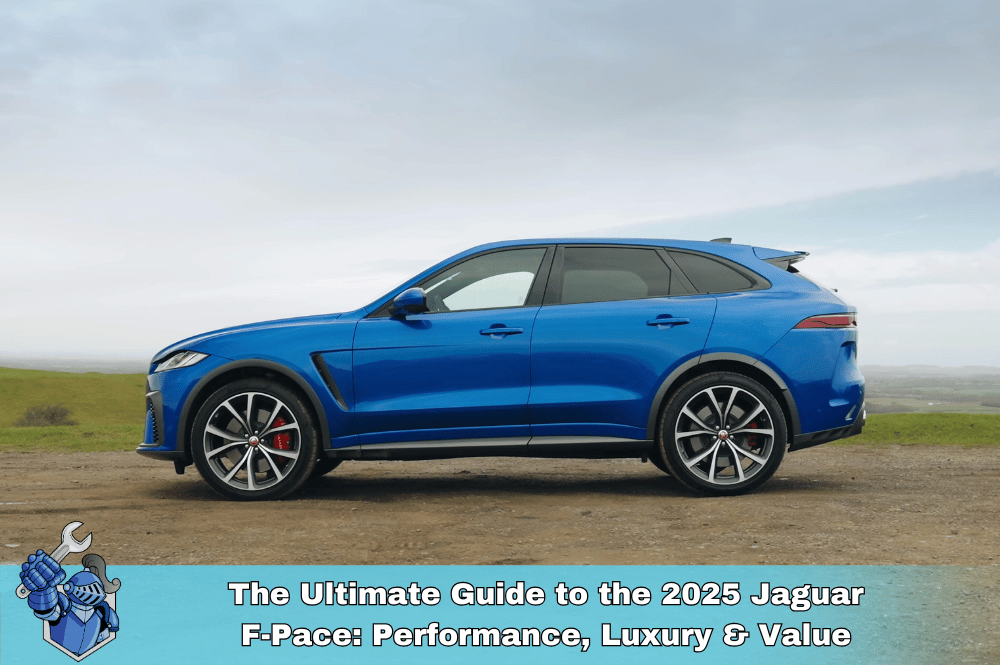 The Ultimate Guide to the 2025 Jaguar F-Pace: Performance, Luxury & Value
The Ultimate Guide to the 2025 Jaguar F-Pace: Performance, Luxury & Value Beyond the Movie: The Gritty Truth of Ford vs. Ferrari
Beyond the Movie: The Gritty Truth of Ford vs. Ferrari Slash Your Car Insurance Bills: Expert Tips You Need Now
Slash Your Car Insurance Bills: Expert Tips You Need Now Decoding Auto Insurance: Your Easy-to-Understand Guide
Decoding Auto Insurance: Your Easy-to-Understand Guide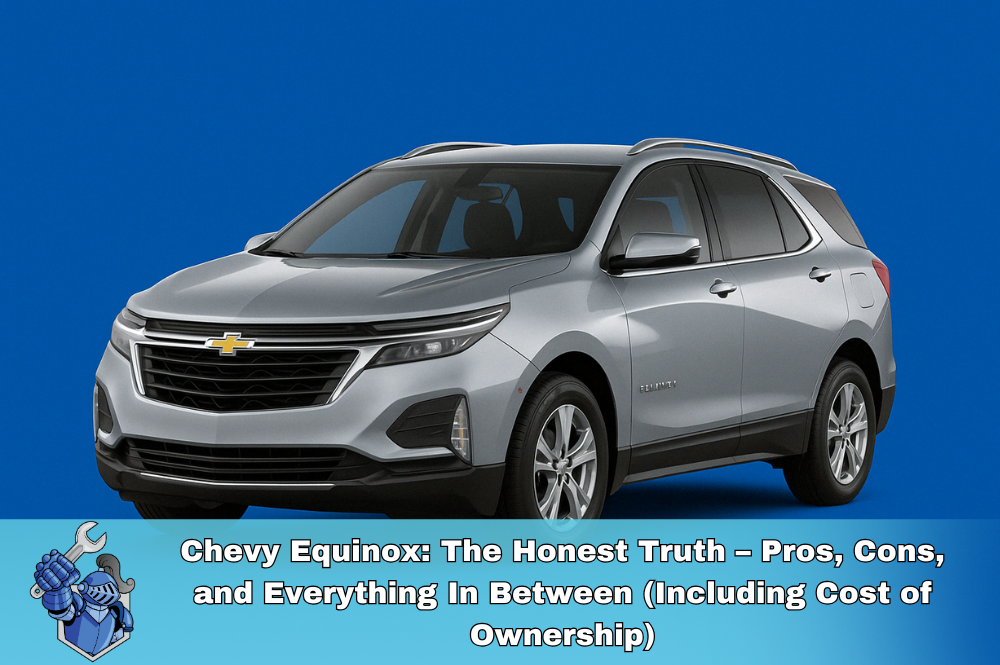 Chevy Equinox: The Honest Truth – Pros, Cons, and Everything In Between (Including Cost of Ownership)
Chevy Equinox: The Honest Truth – Pros, Cons, and Everything In Between (Including Cost of Ownership) Save More, Stress Less: Family Budgeting Tips That Work
Save More, Stress Less: Family Budgeting Tips That Work Pessada Holdings: BBB A+ Rated Excellence
Pessada Holdings: BBB A+ Rated Excellence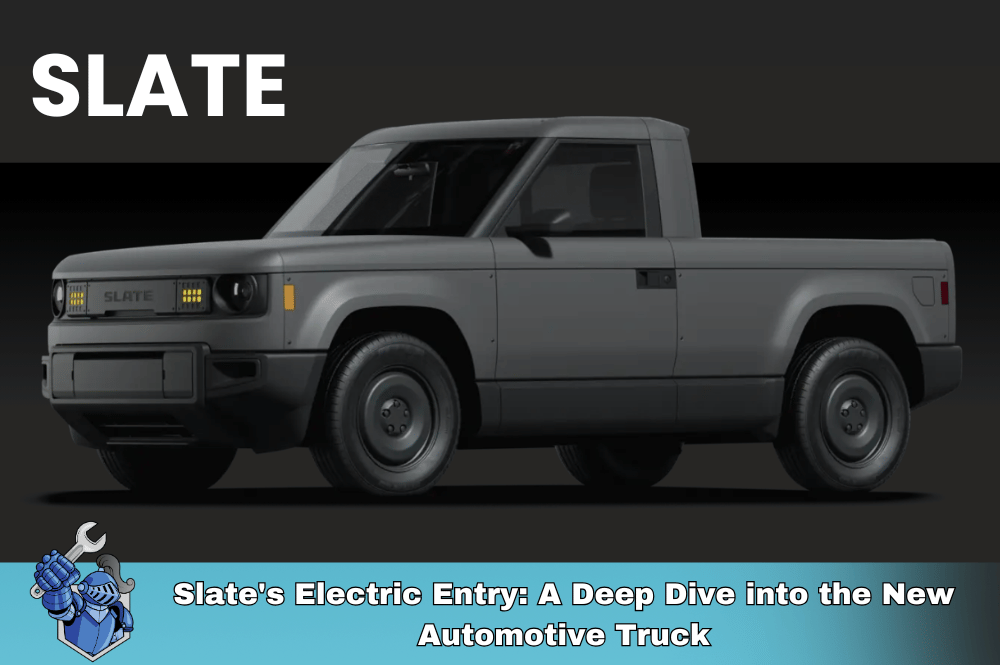 Slate’s Electric Entry: A Deep Dive into the New Automotive Truck
Slate’s Electric Entry: A Deep Dive into the New Automotive Truck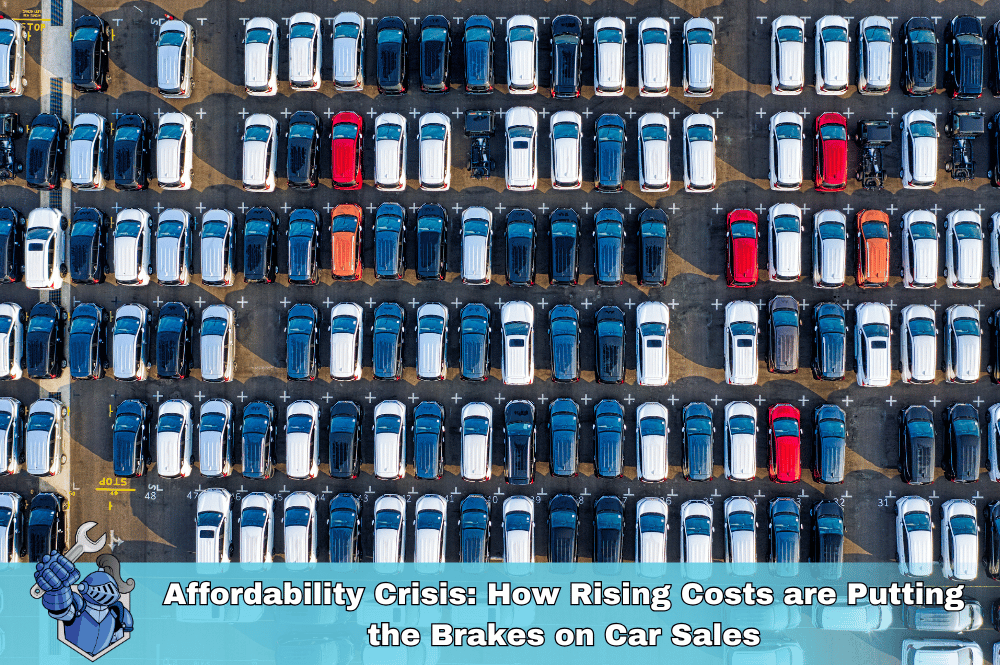 Affordability Crisis: How Rising Costs are Putting the Brakes on Car Sales
Affordability Crisis: How Rising Costs are Putting the Brakes on Car Sales The Extended Warranty Pitch: What Dealers Don't Always Tell You
The Extended Warranty Pitch: What Dealers Don't Always Tell You Unlock Your Dream Ride: The Ultimate Guide to Scoring a New Car Deal
Unlock Your Dream Ride: The Ultimate Guide to Scoring a New Car Deal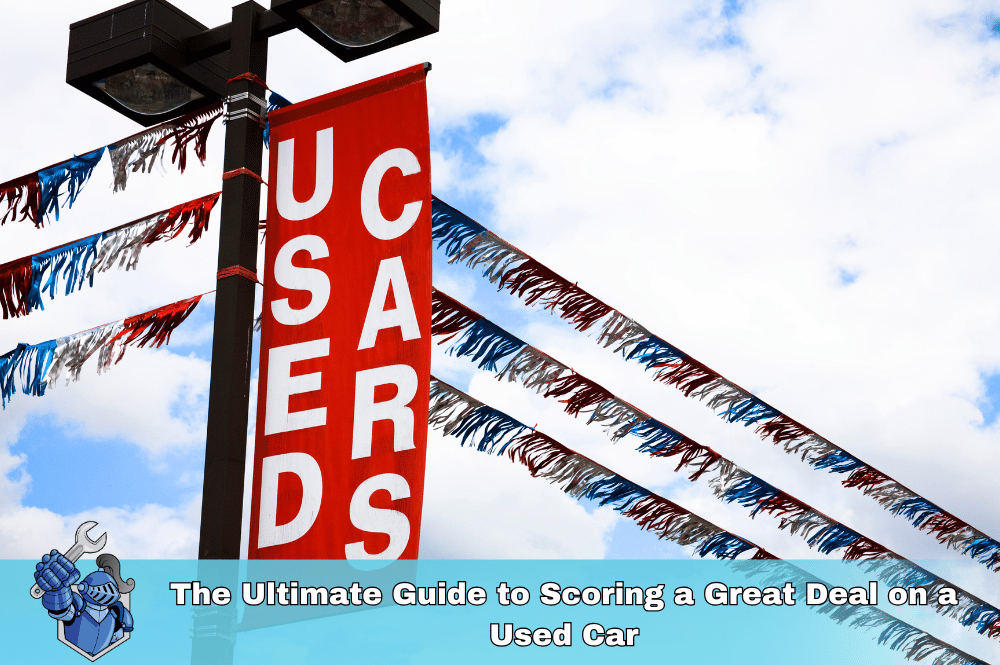 The Ultimate Guide to Scoring a Great Deal on a Used Car
The Ultimate Guide to Scoring a Great Deal on a Used Car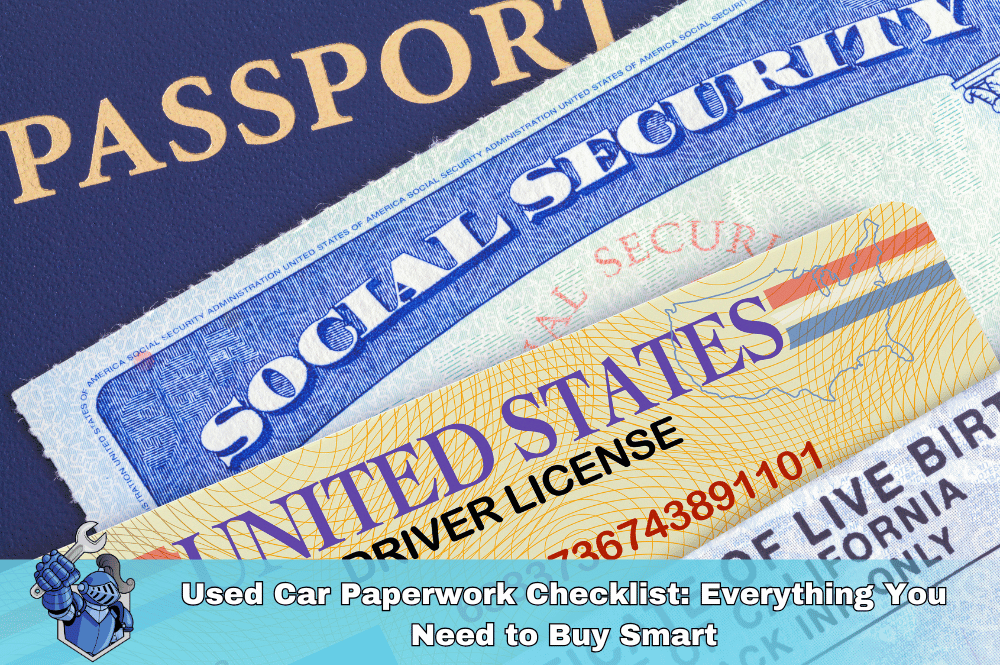 Used Car Paperwork Checklist: Everything You Need to Buy Smart
Used Car Paperwork Checklist: Everything You Need to Buy Smart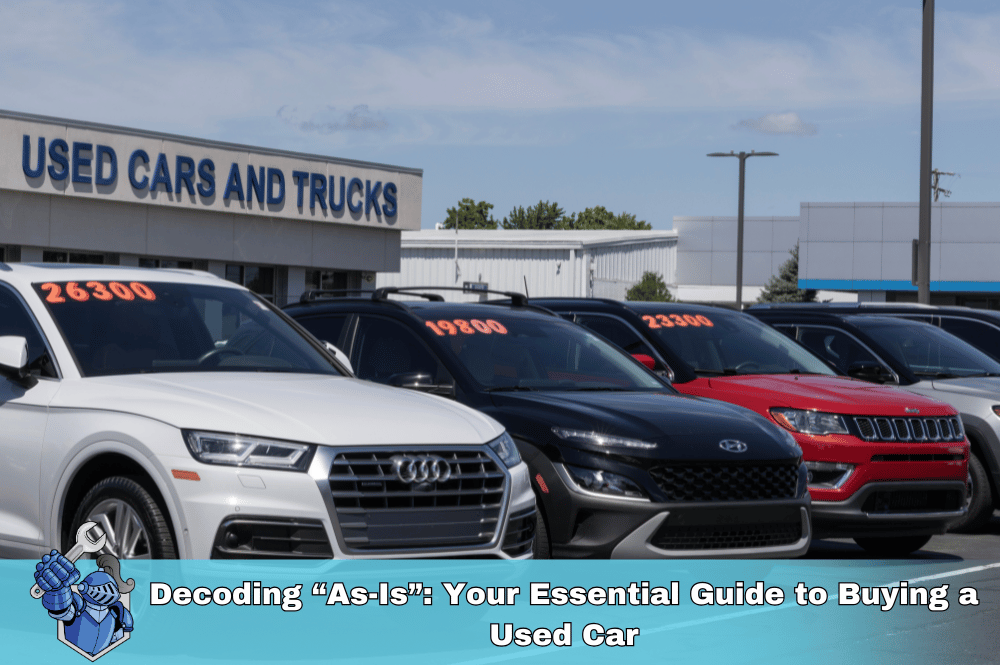 Decoding “As-Is”: Your Essential Guide to Buying a Used Car
Decoding “As-Is”: Your Essential Guide to Buying a Used Car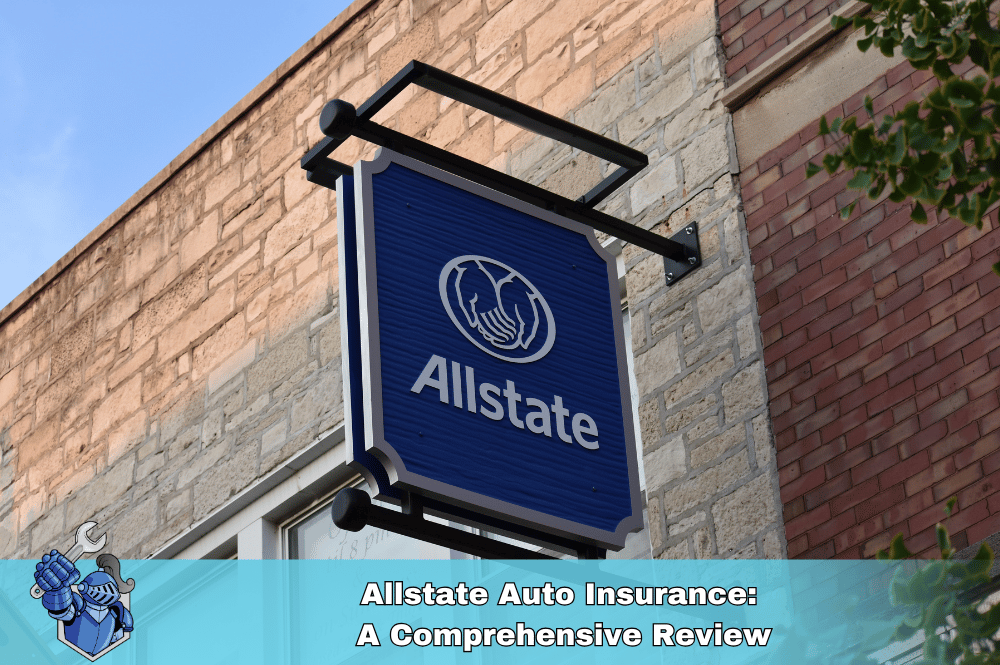 Allstate Auto Insurance: A Comprehensive Review
Allstate Auto Insurance: A Comprehensive Review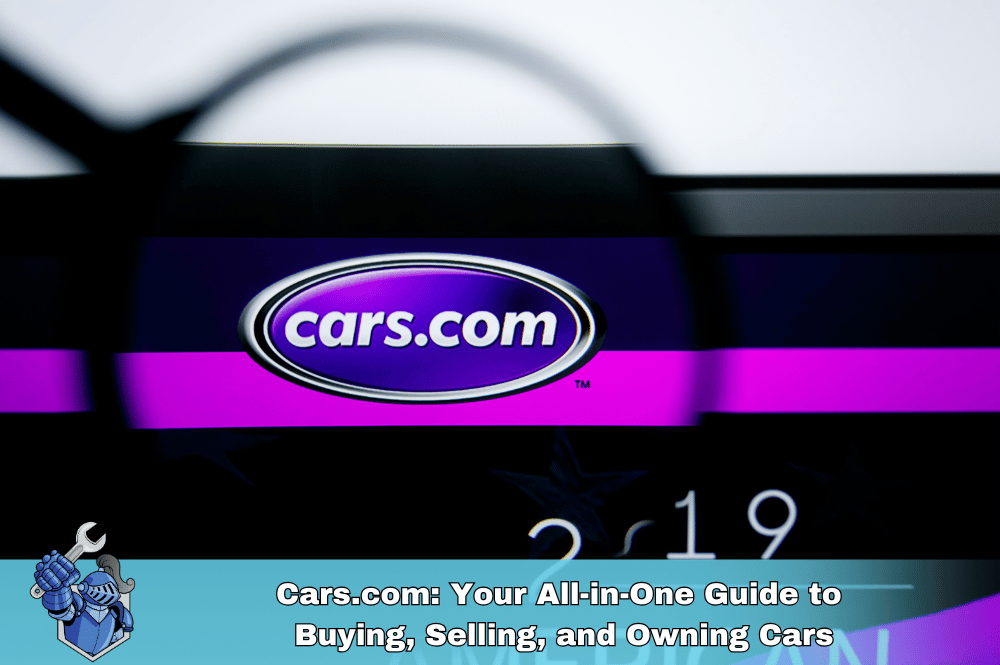 Cars.com: Your All-in-One Guide to Buying, Selling, and Owning Cars
Cars.com: Your All-in-One Guide to Buying, Selling, and Owning Cars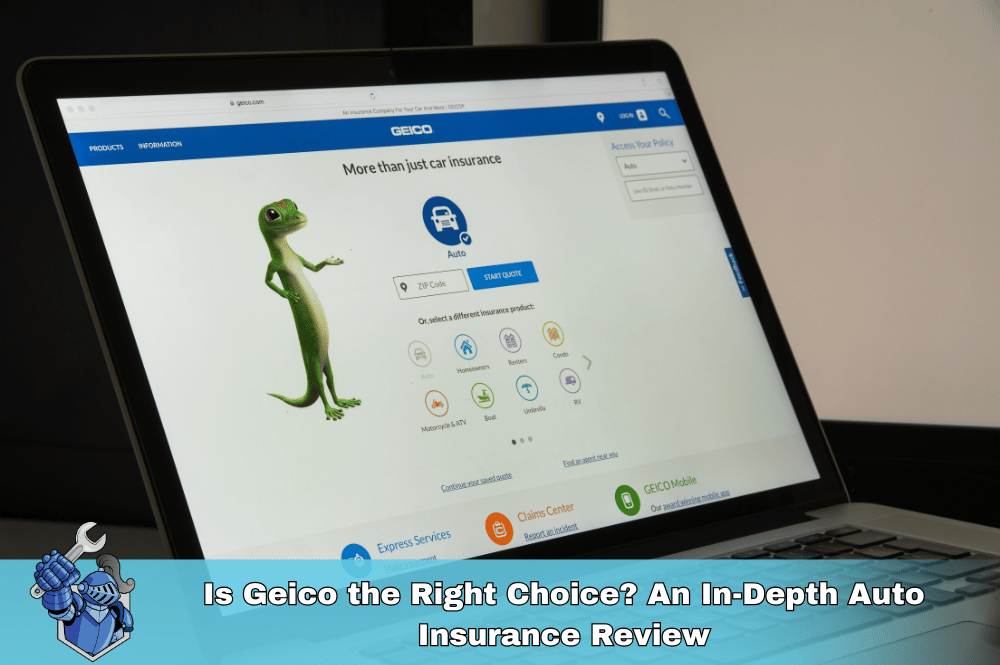 Is Geico the Right Choice? An In-Depth Auto Insurance Review
Is Geico the Right Choice? An In-Depth Auto Insurance Review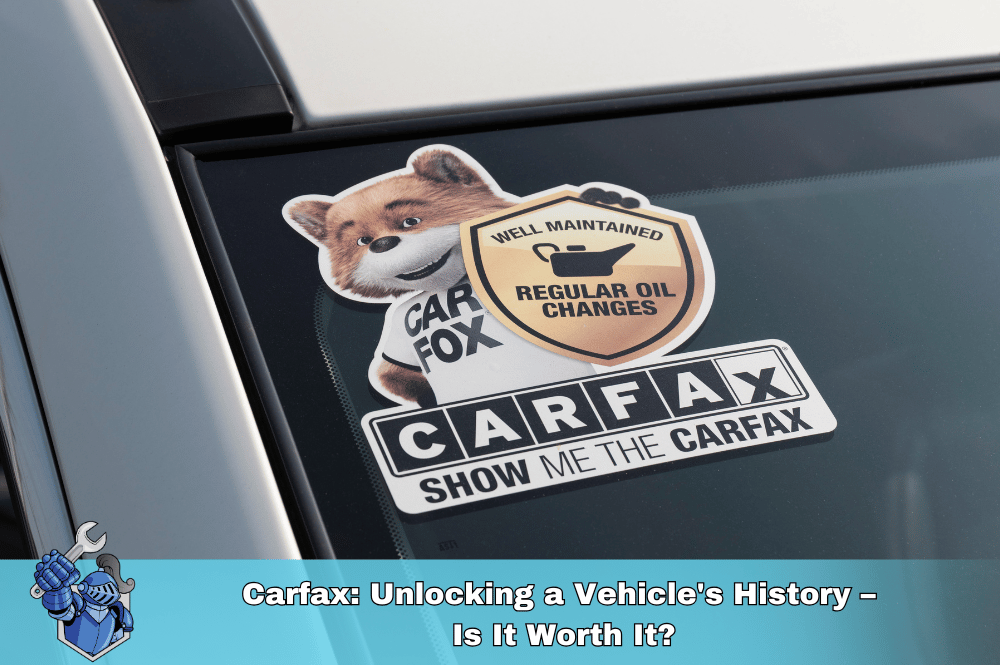 Carfax: Unlocking a Vehicle's History – Is It Worth It?
Carfax: Unlocking a Vehicle's History – Is It Worth It?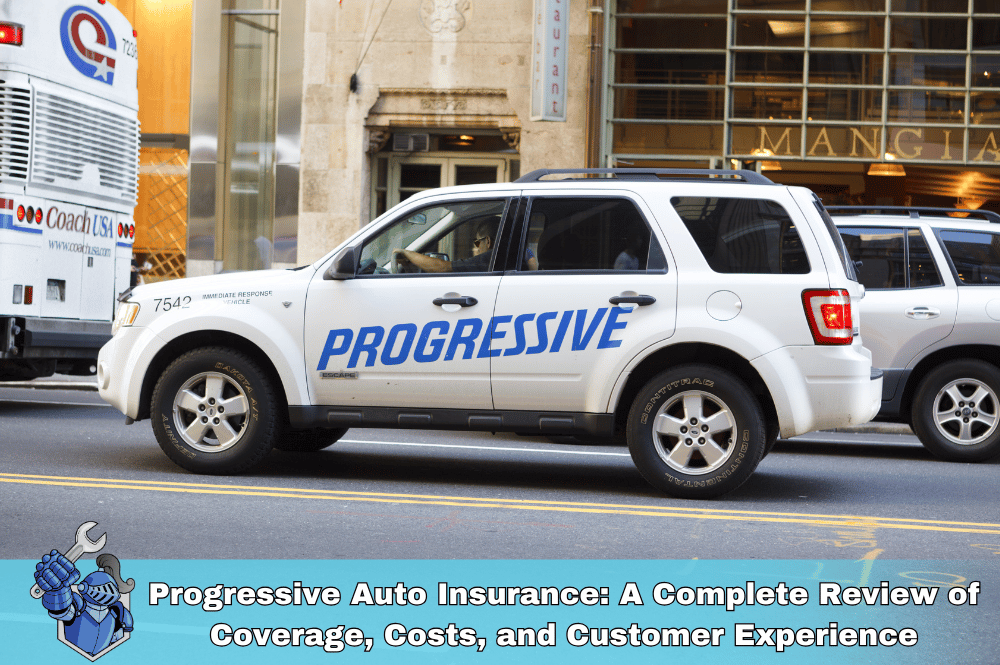 Progressive Auto Insurance: A Complete Review of Coverage, Costs, and Customer Experience
Progressive Auto Insurance: A Complete Review of Coverage, Costs, and Customer Experience The Trusted Choice: A Comprehensive Look at NAPA AutoCare Center Services
The Trusted Choice: A Comprehensive Look at NAPA AutoCare Center Services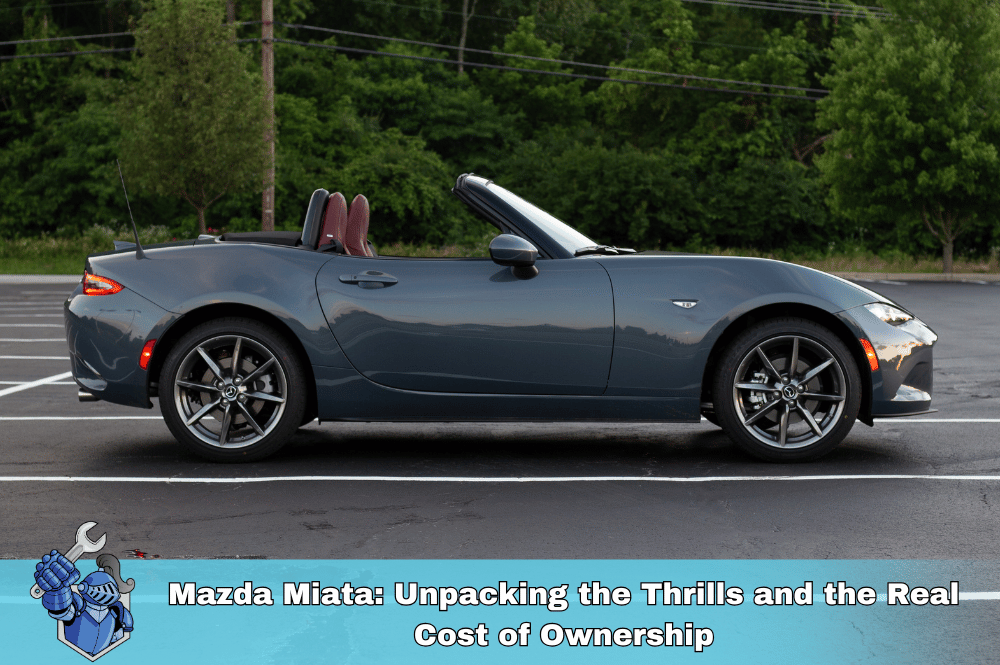 Mazda Miata: Unpacking the Thrills and the Real Cost of Ownership
Mazda Miata: Unpacking the Thrills and the Real Cost of Ownership Online Car Shopping vs. Dealerships: Which Road Should You Take?
Online Car Shopping vs. Dealerships: Which Road Should You Take?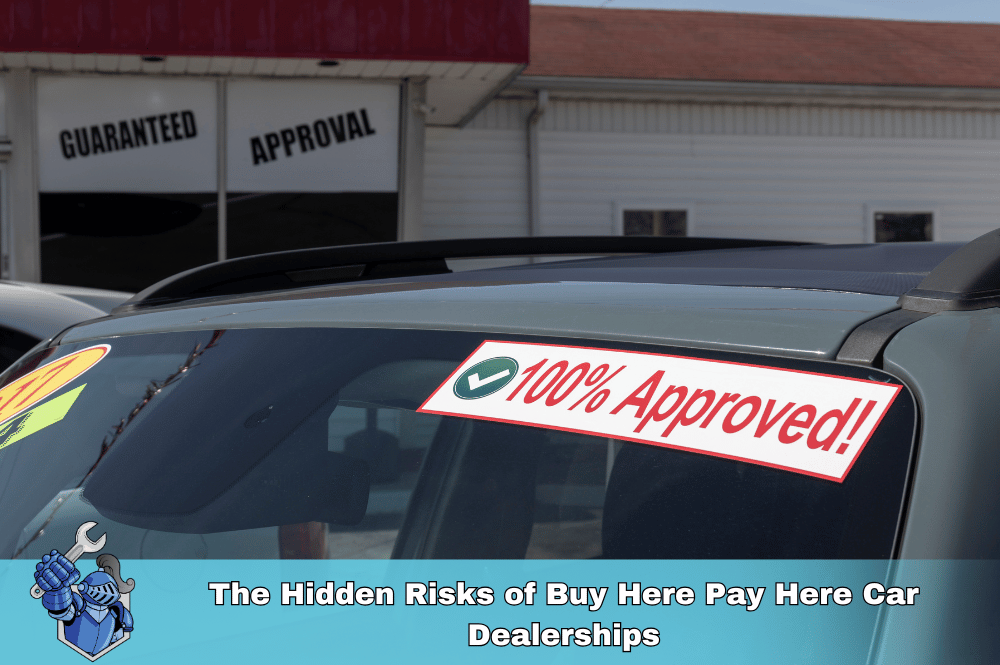 The Hidden Risks of Buy Here Pay Here Car Dealerships
The Hidden Risks of Buy Here Pay Here Car Dealerships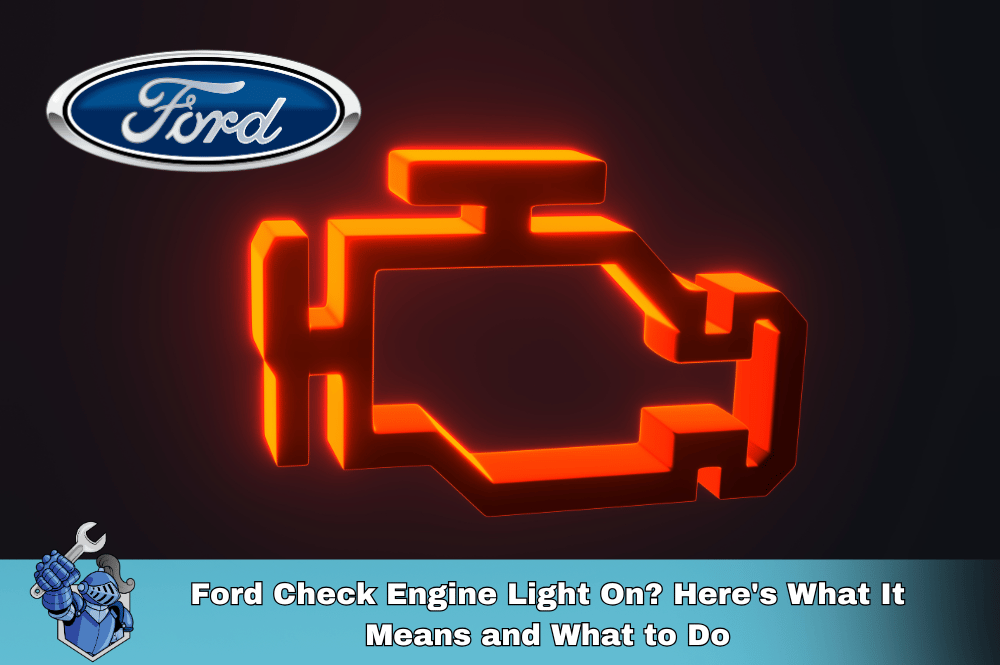 Ford Check Engine Light On? Here's What It Means and What to Do
Ford Check Engine Light On? Here's What It Means and What to Do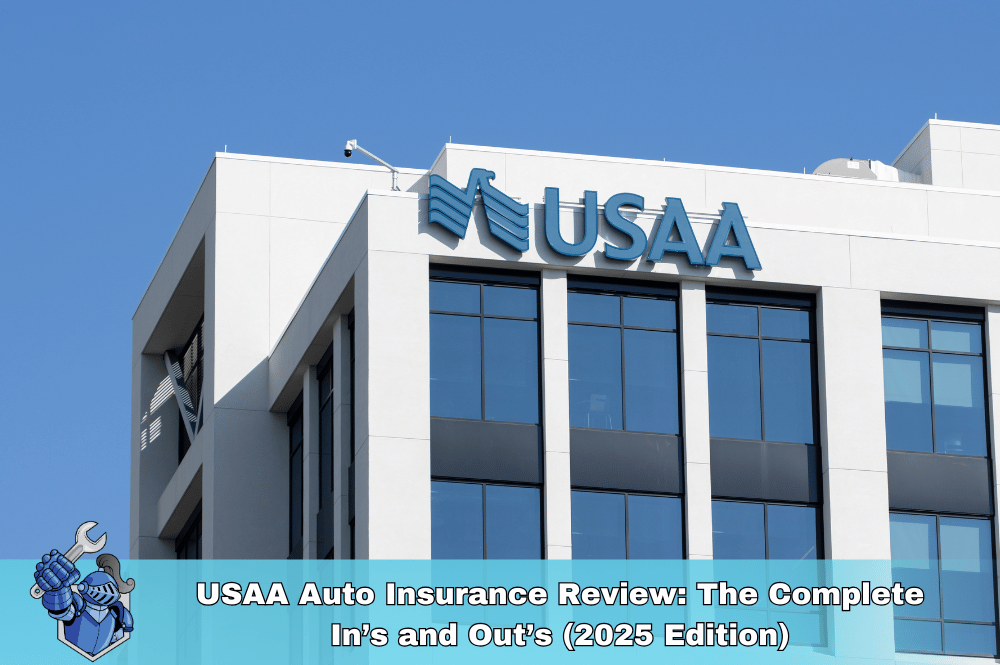 USAA Auto Insurance Review: The Complete In’s and Out’s (2025 Edition)
USAA Auto Insurance Review: The Complete In’s and Out’s (2025 Edition)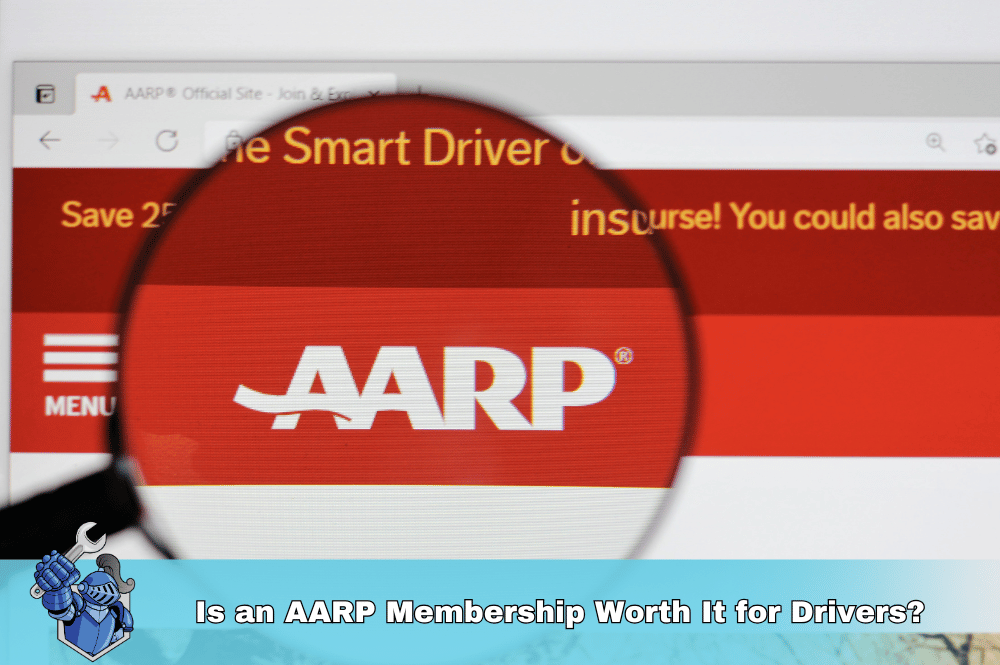 Is an AARP Membership Worth It for Drivers?
Is an AARP Membership Worth It for Drivers?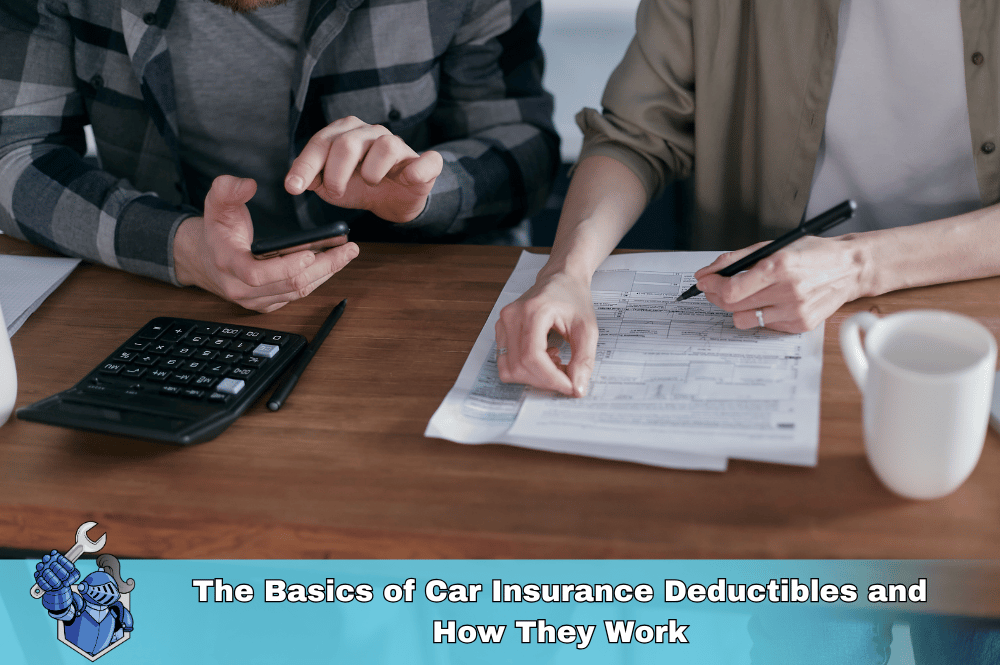 The Basics of Car Insurance Deductibles and How They Work
The Basics of Car Insurance Deductibles and How They Work Navigating Bank of America Auto Loans: What You Need to Know
Navigating Bank of America Auto Loans: What You Need to Know 5 Steps to a Higher Credit Score: Your Guide to Better Auto Loan Rates
5 Steps to a Higher Credit Score: Your Guide to Better Auto Loan Rates The General Auto Insurance: What You Need to Know
The General Auto Insurance: What You Need to Know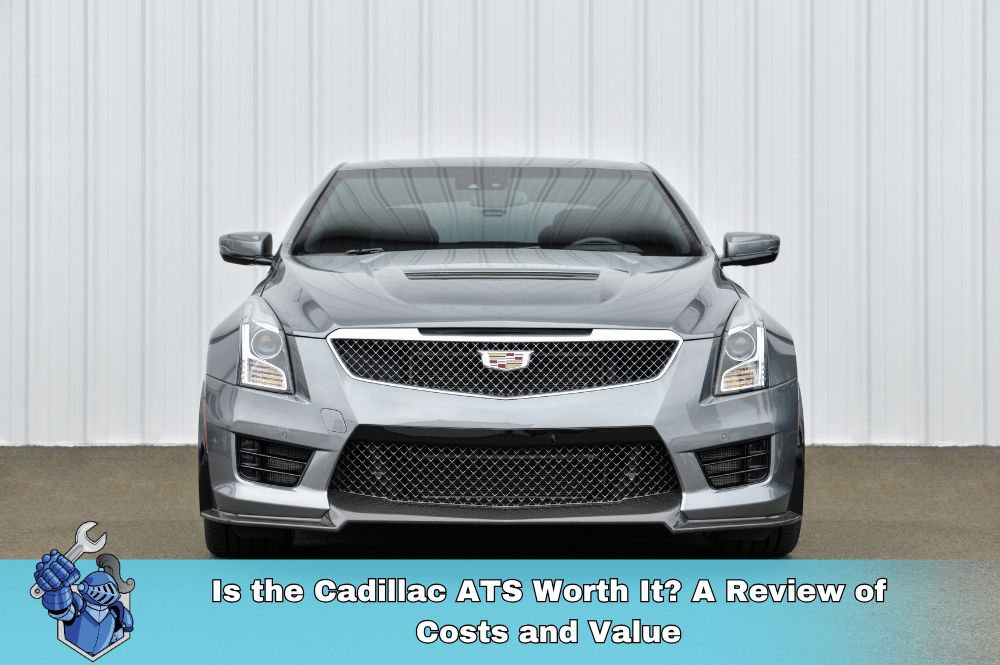 Is the Cadillac ATS Worth It? A Review of Costs and Value
Is the Cadillac ATS Worth It? A Review of Costs and Value Capital One Auto Loans: Your Complete Guide to Financing Your Next Vehicle
Capital One Auto Loans: Your Complete Guide to Financing Your Next Vehicle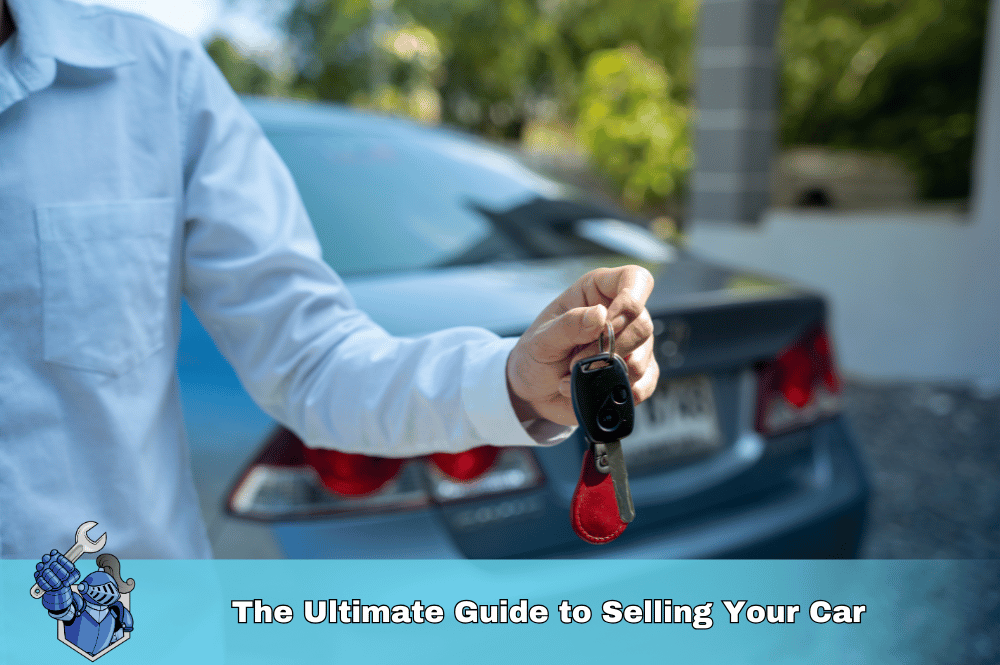 The Ultimate Guide to Selling Your Car
The Ultimate Guide to Selling Your Car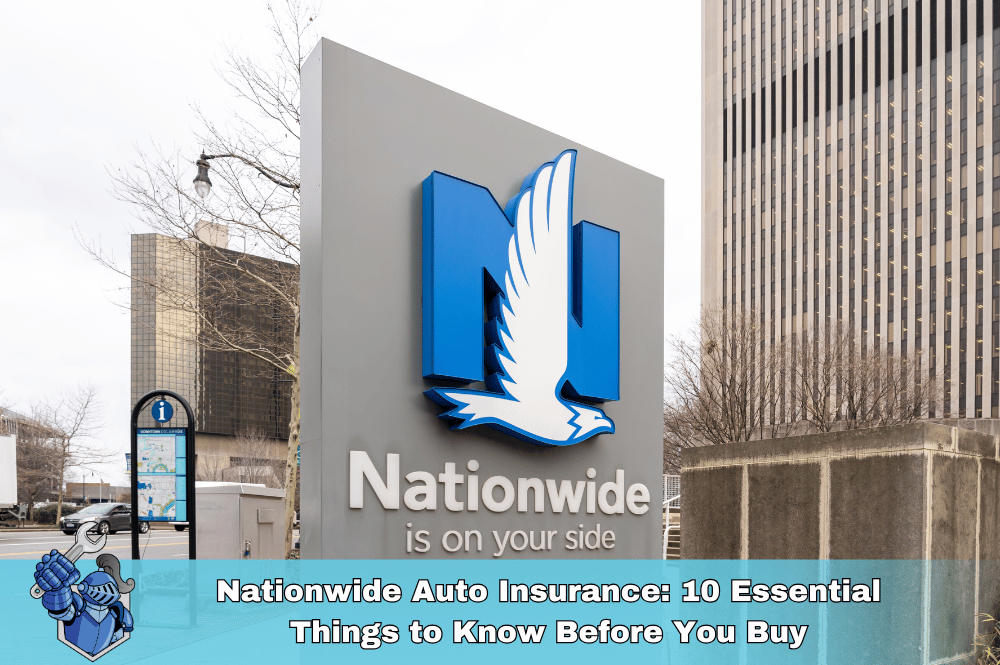 Nationwide Auto Insurance: 10 Essential Things to Know Before You Buy
Nationwide Auto Insurance: 10 Essential Things to Know Before You Buy Lost Keys? Noble Quote Has You Covered (and More!)
Lost Keys? Noble Quote Has You Covered (and More!) The Digital Garage for Your Dollars: Navigating the World of Trading Apps
The Digital Garage for Your Dollars: Navigating the World of Trading Apps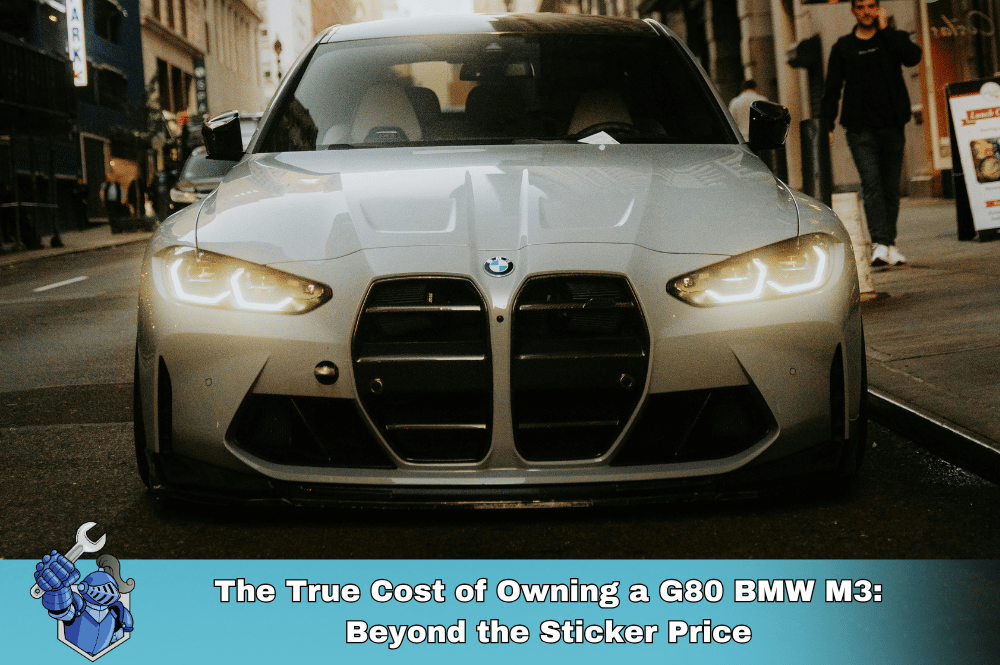 The True Cost of Owning a G80 BMW M3: Beyond the Sticker Price
The True Cost of Owning a G80 BMW M3: Beyond the Sticker Price O'Reilly Auto Parts: Your Comprehensive Guide to Services, Products, and More
O'Reilly Auto Parts: Your Comprehensive Guide to Services, Products, and More Land Cruiser 2025: Unleashed & Uncosted!
Land Cruiser 2025: Unleashed & Uncosted! Noble Quote vs. Amber: Which Automotive Service Offers the Best Value?
Noble Quote vs. Amber: Which Automotive Service Offers the Best Value? Unlock Lower Rates: Your Guide to Travelers Auto Insurance Discounts
Unlock Lower Rates: Your Guide to Travelers Auto Insurance Discounts Porsche Macan: The REAL Cost of Ownership (2015–2024 Review)
Porsche Macan: The REAL Cost of Ownership (2015–2024 Review)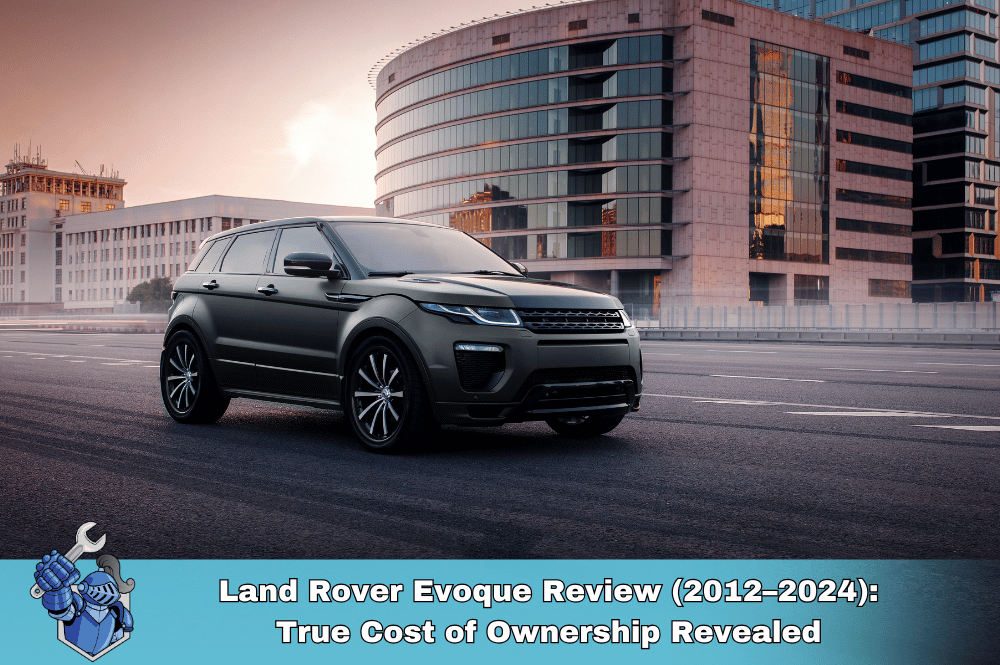 Land Rover Evoque Review (2012–2024): True Cost of Ownership Revealed
Land Rover Evoque Review (2012–2024): True Cost of Ownership Revealed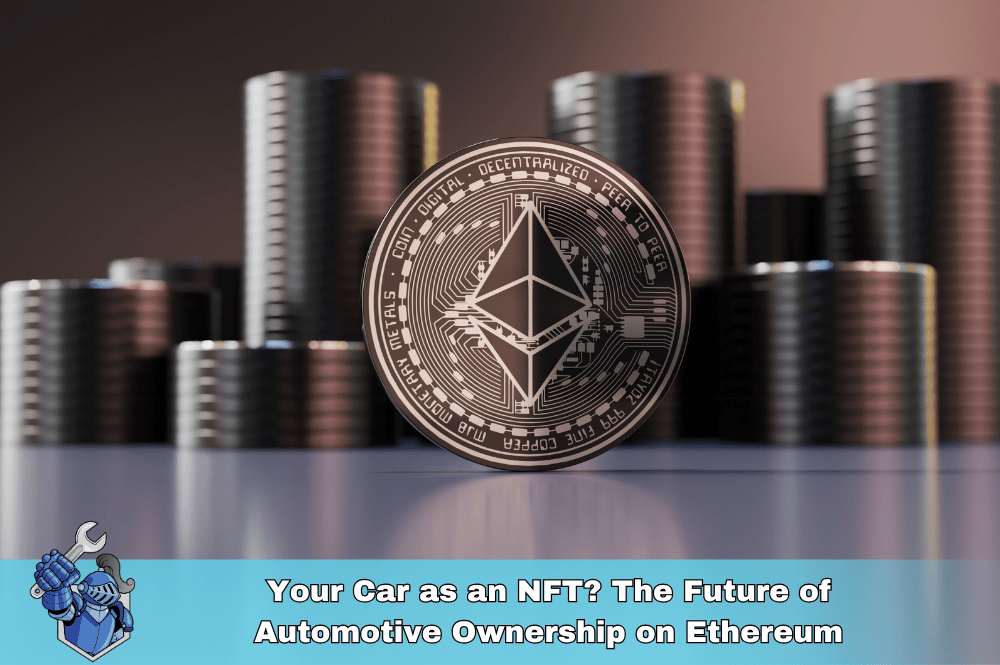 Your Car as an NFT? The Future of Automotive Ownership on Ethereum
Your Car as an NFT? The Future of Automotive Ownership on Ethereum Unlock Cheaper Rates: Your Ultimate Guide to State Farm Auto Insurance Discounts
Unlock Cheaper Rates: Your Ultimate Guide to State Farm Auto Insurance Discounts Online Used Car Shopping: What You NEED to Know Before You Buy
Online Used Car Shopping: What You NEED to Know Before You Buy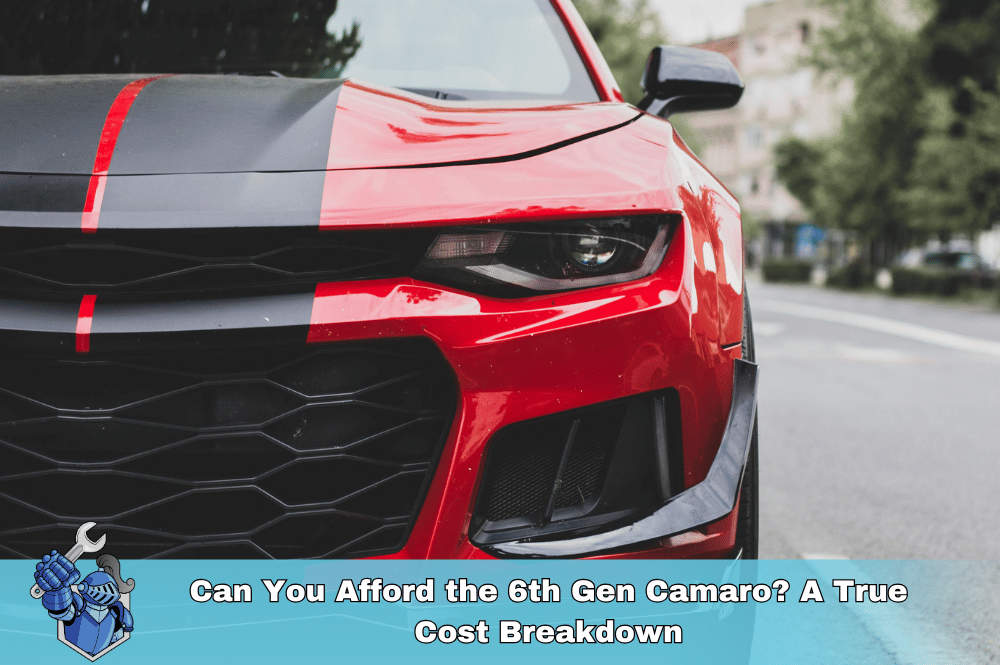 Can You Afford the 6th Gen Camaro? A True Cost Breakdown
Can You Afford the 6th Gen Camaro? A True Cost Breakdown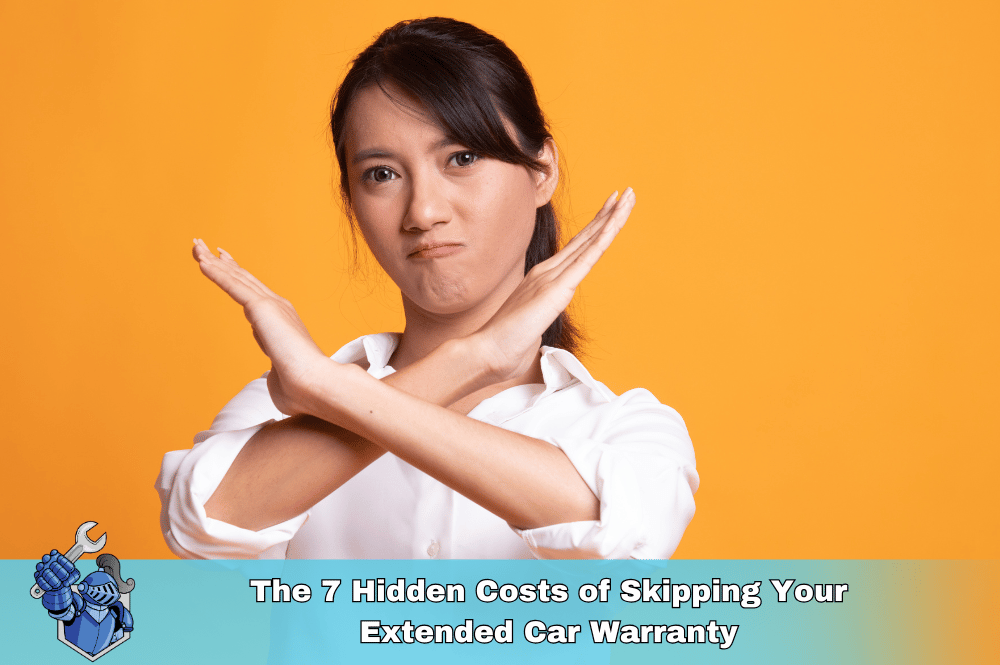 The 7 Hidden Costs of Skipping Your Extended Car Warranty
The 7 Hidden Costs of Skipping Your Extended Car Warranty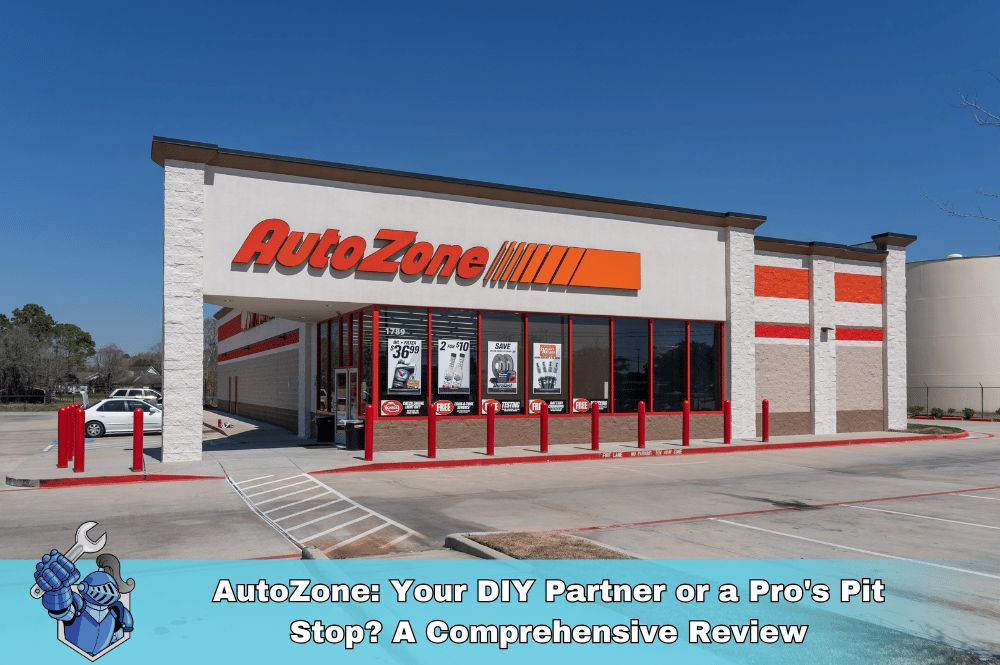 AutoZone: Your DIY Partner or a Pro's Pit Stop? A Comprehensive Review
AutoZone: Your DIY Partner or a Pro's Pit Stop? A Comprehensive Review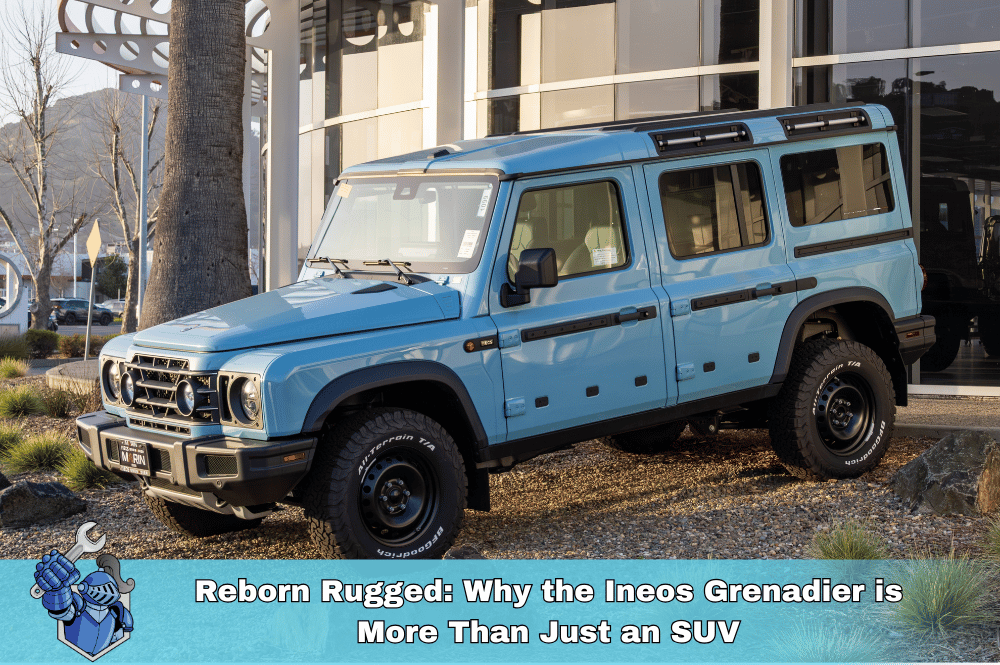 Reborn Rugged: Why the Ineos Grenadier is More Than Just an SUV
Reborn Rugged: Why the Ineos Grenadier is More Than Just an SUV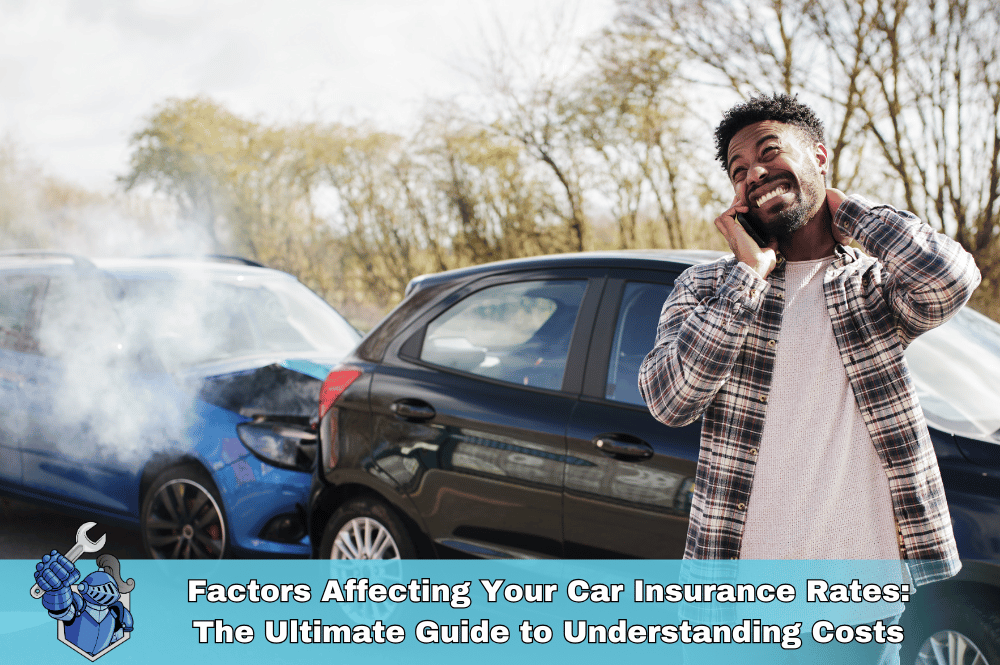 Factors Affecting Your Car Insurance Rates: The Ultimate Guide to Understanding Costs
Factors Affecting Your Car Insurance Rates: The Ultimate Guide to Understanding Costs How to Maximize Your Car Trade-In Value: The Ultimate Guide
How to Maximize Your Car Trade-In Value: The Ultimate Guide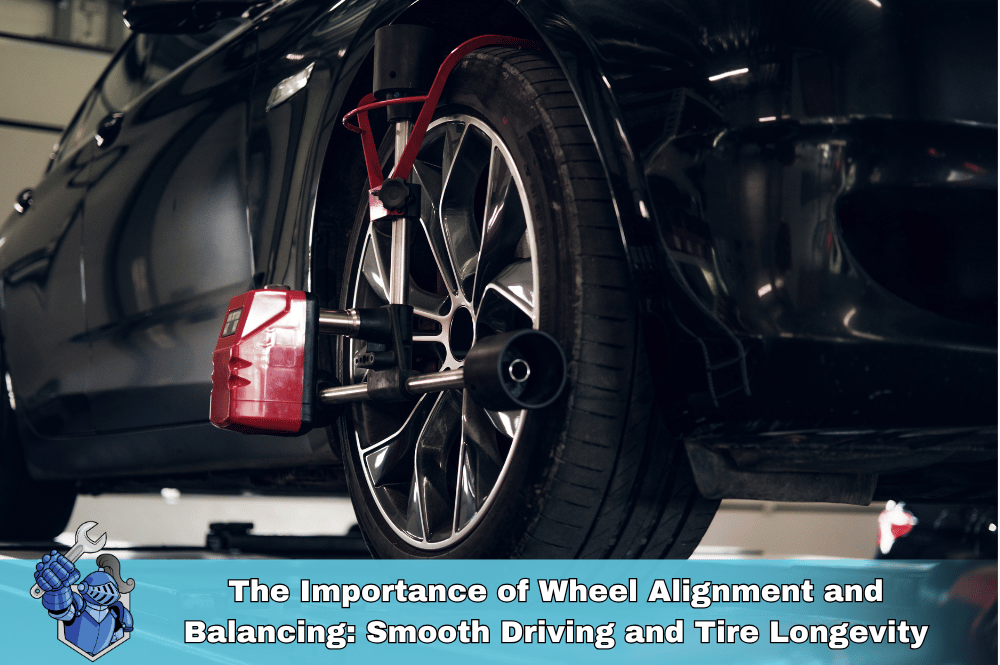 The Importance of Wheel Alignment and Balancing: Smooth Driving and Tire Longevity
The Importance of Wheel Alignment and Balancing: Smooth Driving and Tire Longevity BYD Cars 2025: Your Ultimate Guide to the Full Lineup & Latest Innovations
BYD Cars 2025: Your Ultimate Guide to the Full Lineup & Latest Innovations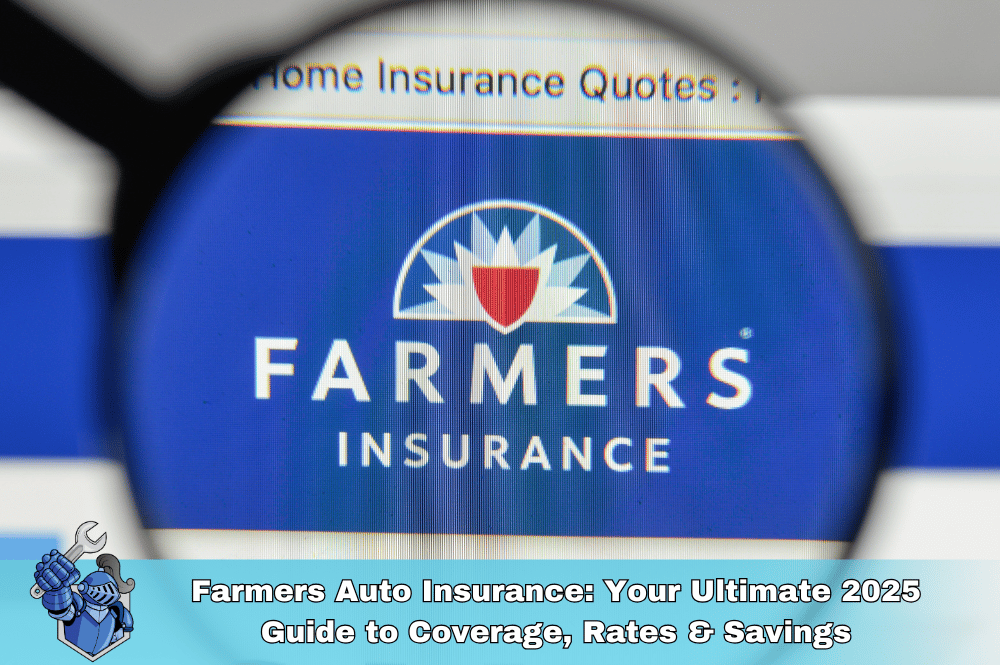 Farmers Auto Insurance: Your Ultimate 2025 Guide to Coverage, Rates & Savings
Farmers Auto Insurance: Your Ultimate 2025 Guide to Coverage, Rates & Savings Don't Miss Out: How to Buy Crypto Before the Next FOMO Wave (2025 Guide)
Don't Miss Out: How to Buy Crypto Before the Next FOMO Wave (2025 Guide)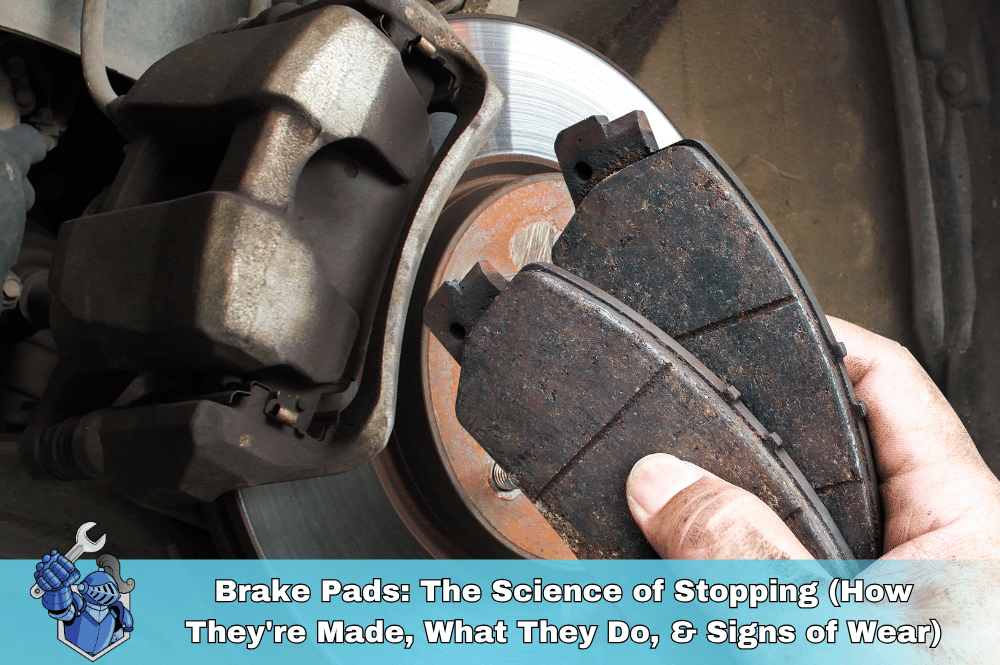 Brake Pads: The Science of Stopping (How They're Made, What They Do, & Signs of Wear)
Brake Pads: The Science of Stopping (How They're Made, What They Do, & Signs of Wear)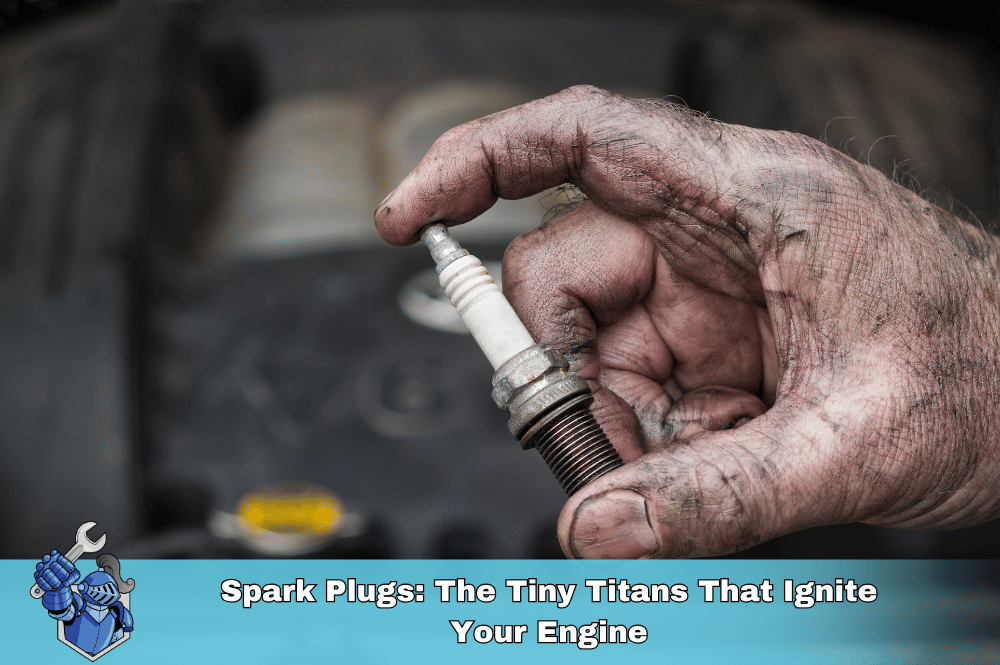 Spark Plugs: The Tiny Titans That Ignite Your Engine
Spark Plugs: The Tiny Titans That Ignite Your Engine The Ultimate Showdown: Car Broker vs. DIY Car Buying – Which Path Saves You More?
The Ultimate Showdown: Car Broker vs. DIY Car Buying – Which Path Saves You More?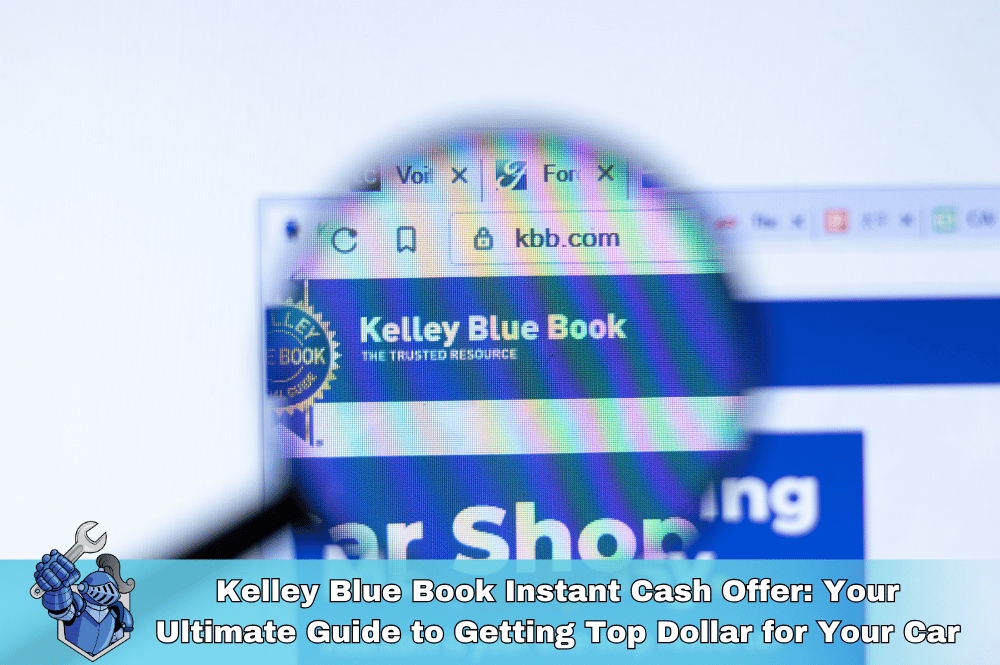 Kelley Blue Book Instant Cash Offer: Your Ultimate Guide to Getting Top Dollar for Your Car
Kelley Blue Book Instant Cash Offer: Your Ultimate Guide to Getting Top Dollar for Your Car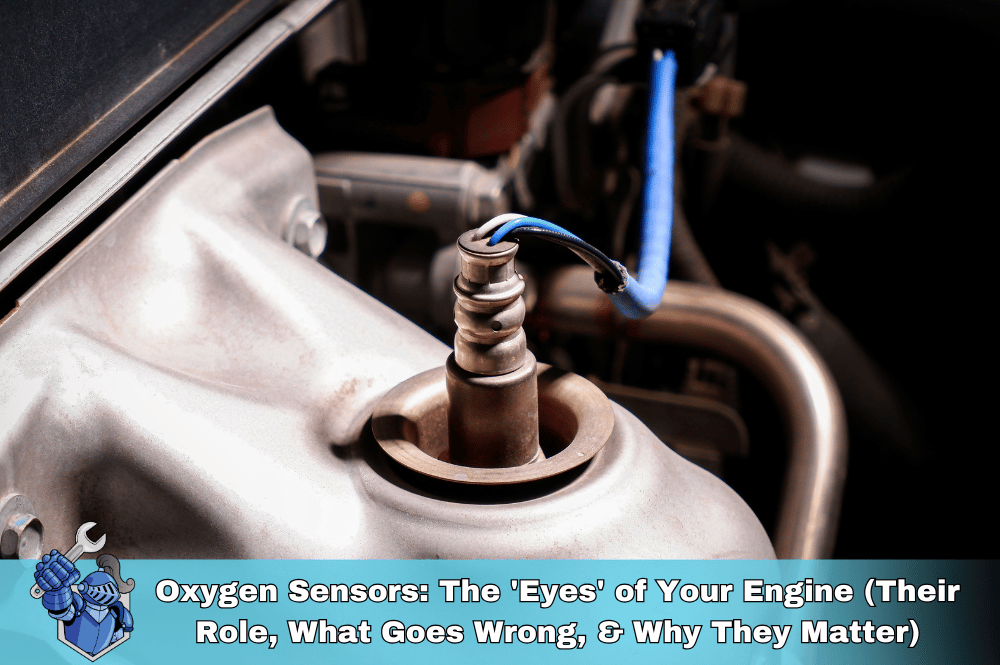 Oxygen Sensors: The 'Eyes' of Your Engine (Their Role, What Goes Wrong, & Why They Matter)
Oxygen Sensors: The 'Eyes' of Your Engine (Their Role, What Goes Wrong, & Why They Matter)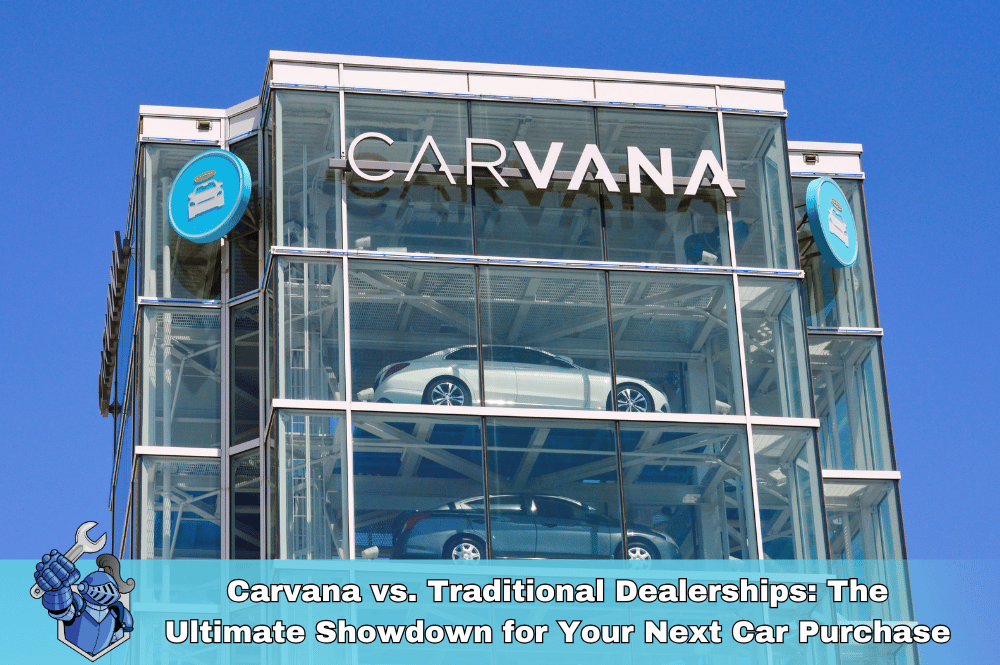 Carvana vs. Traditional Dealerships: The Ultimate Showdown for Your Next Car Purchase
Carvana vs. Traditional Dealerships: The Ultimate Showdown for Your Next Car Purchase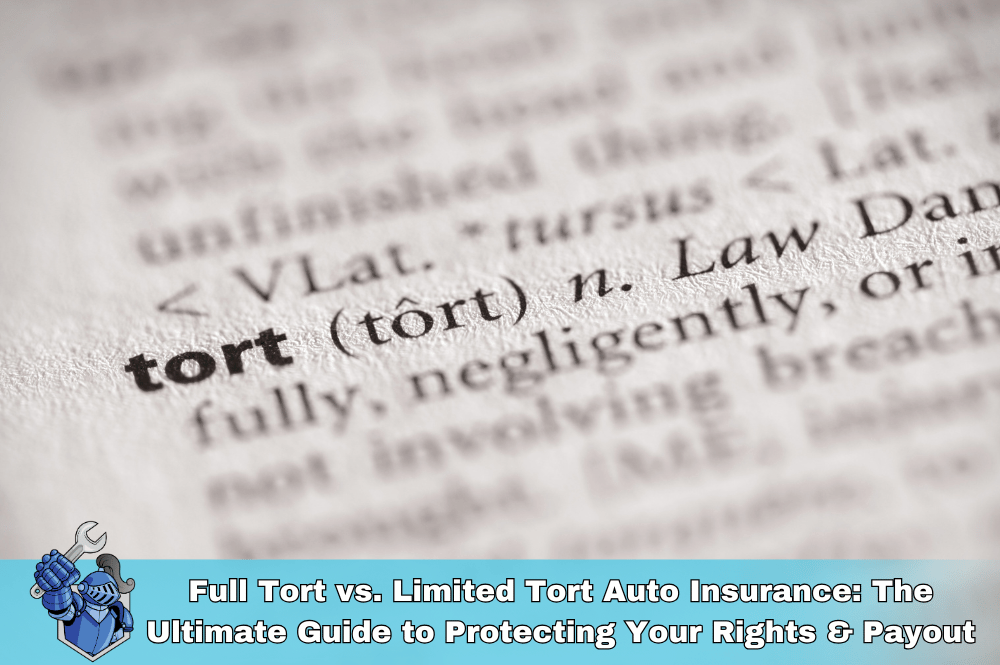 Full Tort vs. Limited Tort Auto Insurance: The Ultimate Guide to Protecting Your Rights & Payout
Full Tort vs. Limited Tort Auto Insurance: The Ultimate Guide to Protecting Your Rights & Payout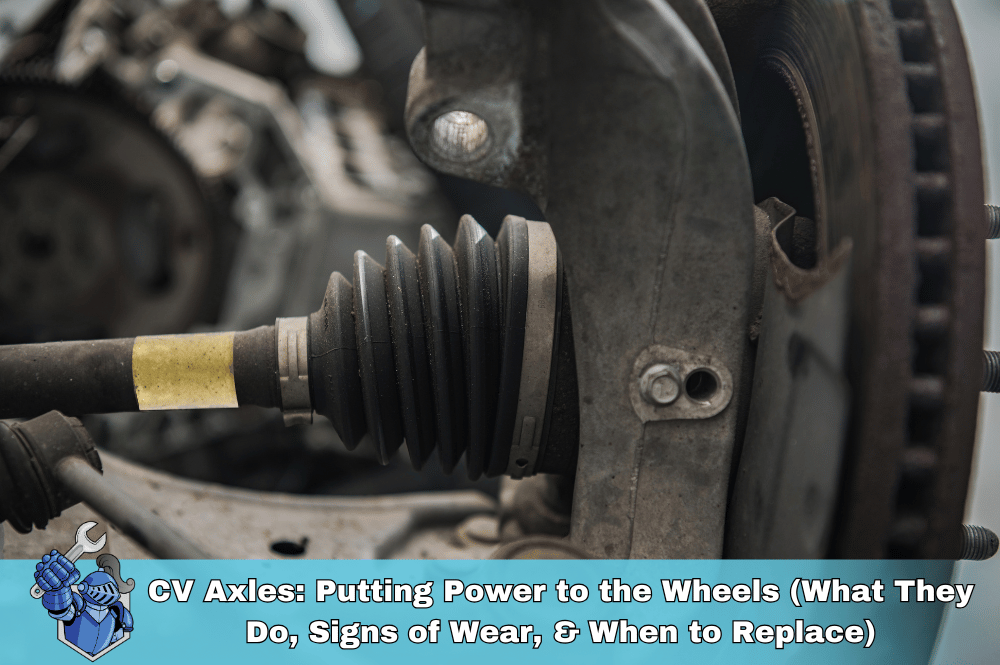 CV Axles: Putting Power to the Wheels (What They Do, Signs of Wear, & When to Replace)
CV Axles: Putting Power to the Wheels (What They Do, Signs of Wear, & When to Replace) 10 Essential Car Prep Tips for Your Family’s Epic Summer Road Trips (2025 Edition)
10 Essential Car Prep Tips for Your Family’s Epic Summer Road Trips (2025 Edition)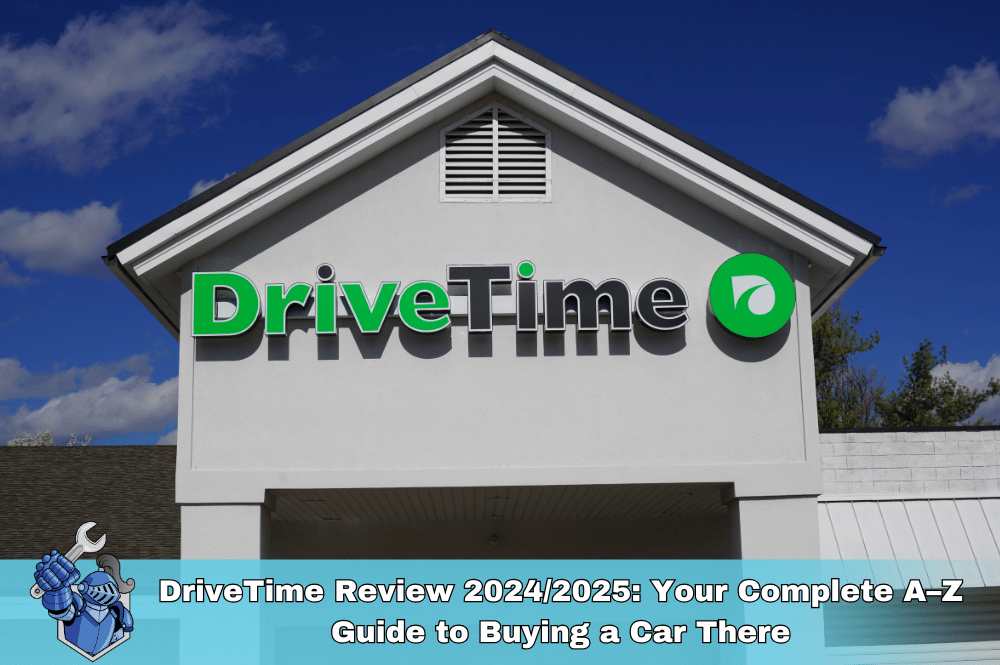 DriveTime Review 2024/2025: Your Complete A–Z Guide to Buying a Car There
DriveTime Review 2024/2025: Your Complete A–Z Guide to Buying a Car There Rideshare Riches: How Much Can YOU Really Earn Driving for Uber & Lyft in 2025?
Rideshare Riches: How Much Can YOU Really Earn Driving for Uber & Lyft in 2025?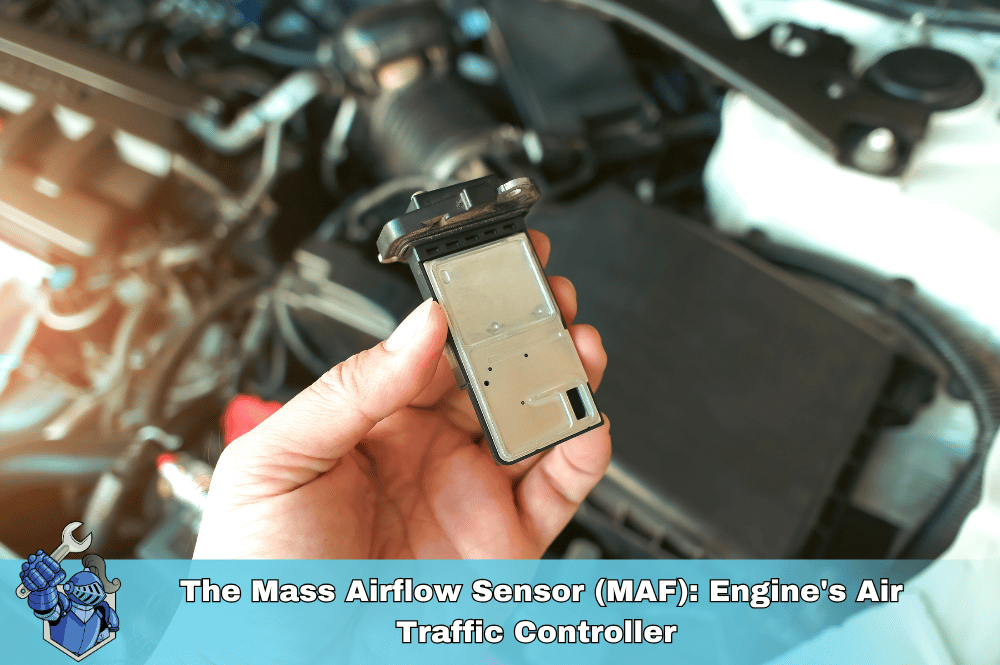 The Mass Airflow Sensor (MAF): Engine's Air Traffic Controller (Function, Symptoms of Failure, & Cleaning)
The Mass Airflow Sensor (MAF): Engine's Air Traffic Controller (Function, Symptoms of Failure, & Cleaning) The Ultimate Truck/SUV Beach Driving Guide: Prep, Safety, & Post-Sand Care
The Ultimate Truck/SUV Beach Driving Guide: Prep, Safety, & Post-Sand Care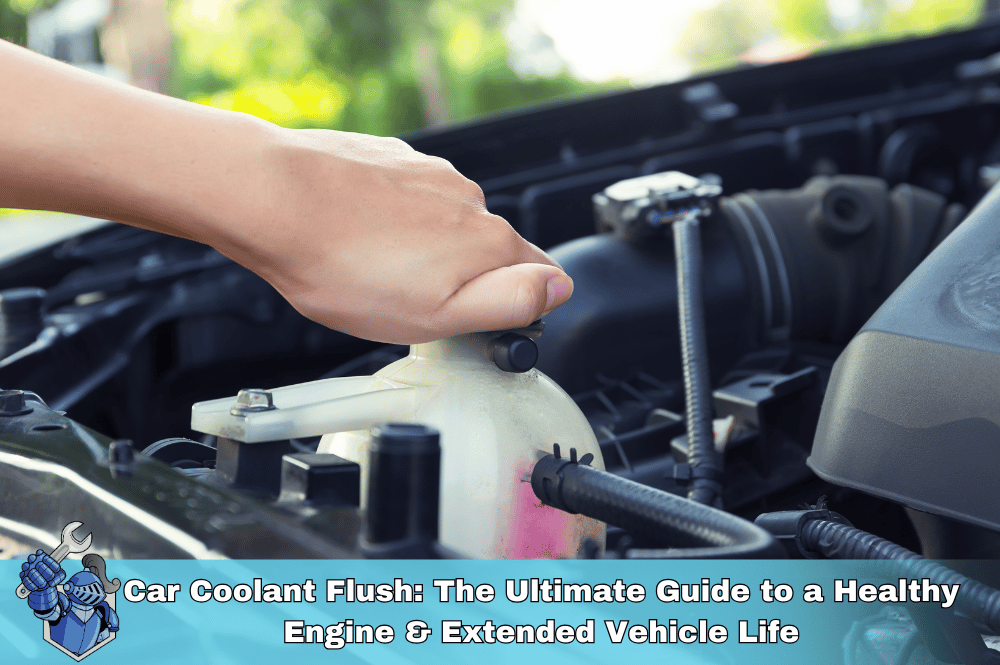 Car Coolant Flush: The Ultimate Guide to a Healthy Engine & Extended Vehicle Life
Car Coolant Flush: The Ultimate Guide to a Healthy Engine & Extended Vehicle Life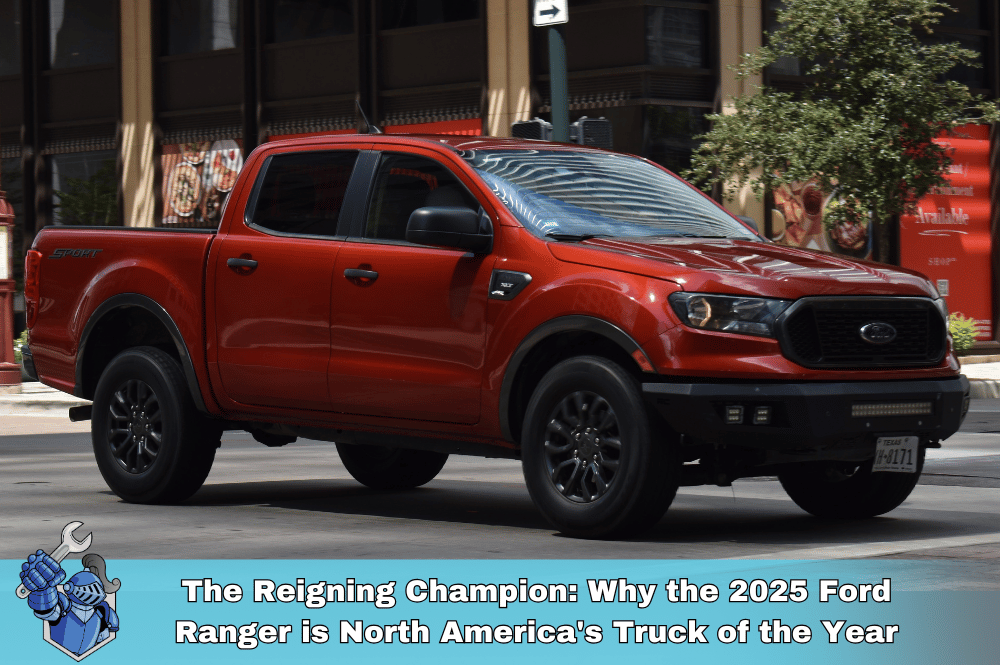 The Reigning Champion: Why the 2025 Ford Ranger is North America's Truck of the Year
The Reigning Champion: Why the 2025 Ford Ranger is North America's Truck of the Year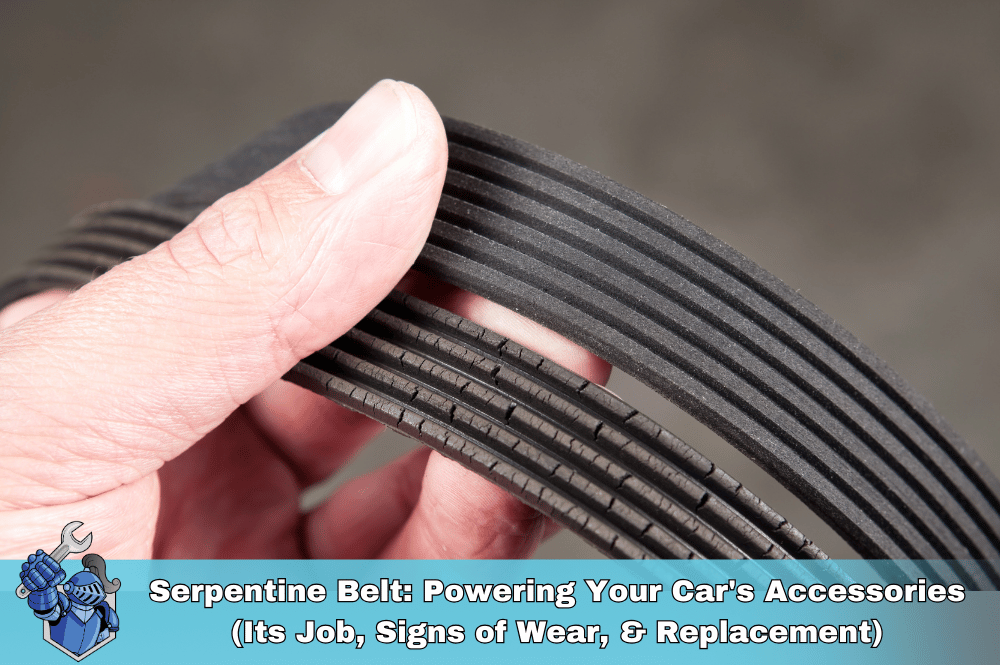 Serpentine Belt: Powering Your Car's Accessories (Its Job, Signs of Wear, & Replacement)
Serpentine Belt: Powering Your Car's Accessories (Its Job, Signs of Wear, & Replacement)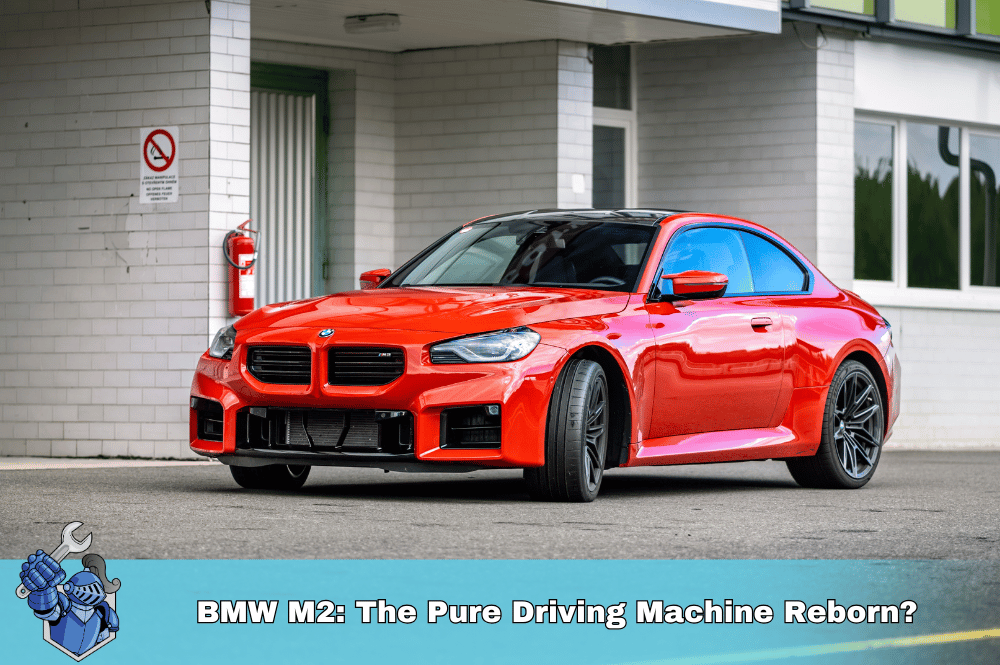 BMW M2: The Pure Driving Machine Reborn?
BMW M2: The Pure Driving Machine Reborn? The Ultimate Protection Plan: How Life Insurance Drives Your Family’s Future
The Ultimate Protection Plan: How Life Insurance Drives Your Family’s Future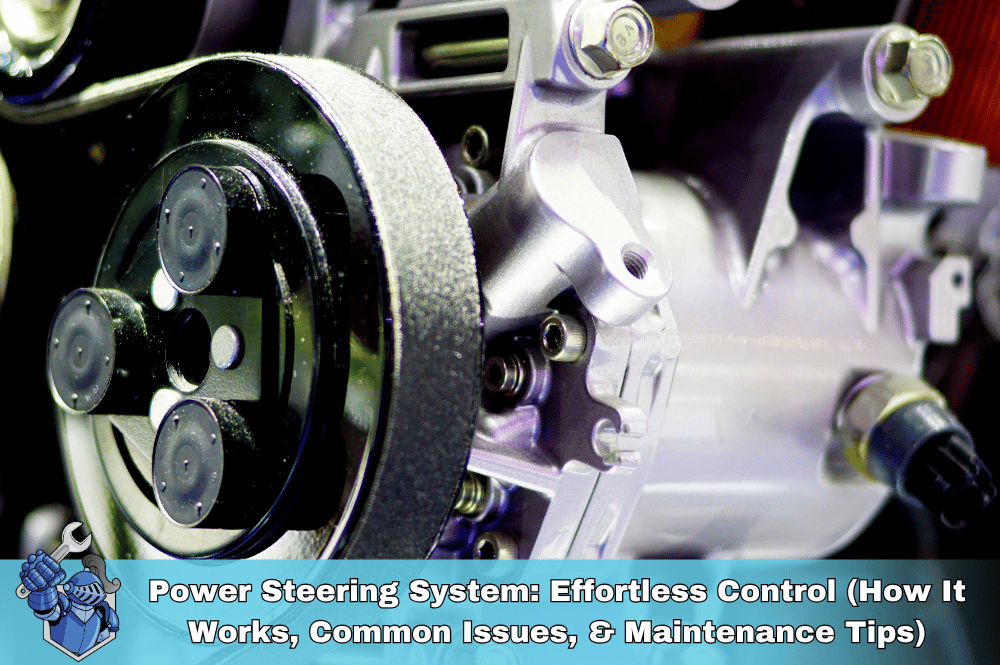 Power Steering System: Effortless Control (How It Works, Common Issues, & Maintenance Tips)
Power Steering System: Effortless Control (How It Works, Common Issues, & Maintenance Tips) End-of-Month Car Deals: Myth or Money-Saver?
End-of-Month Car Deals: Myth or Money-Saver? NobleQuote.com Presents: American National Auto Insurance – Your Complete Guide
NobleQuote.com Presents: American National Auto Insurance – Your Complete Guide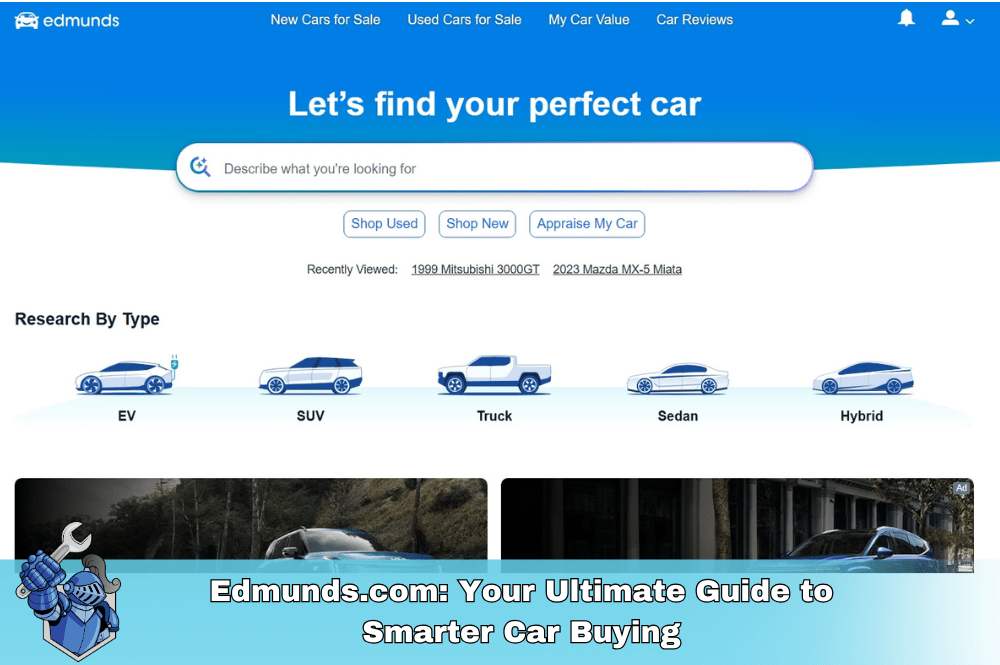 Edmunds.com: Your Ultimate Guide to Smarter Car Buying
Edmunds.com: Your Ultimate Guide to Smarter Car Buying Pre-Existing Conditions and Home Warranties: What You Need to Know Before You Buy
Pre-Existing Conditions and Home Warranties: What You Need to Know Before You Buy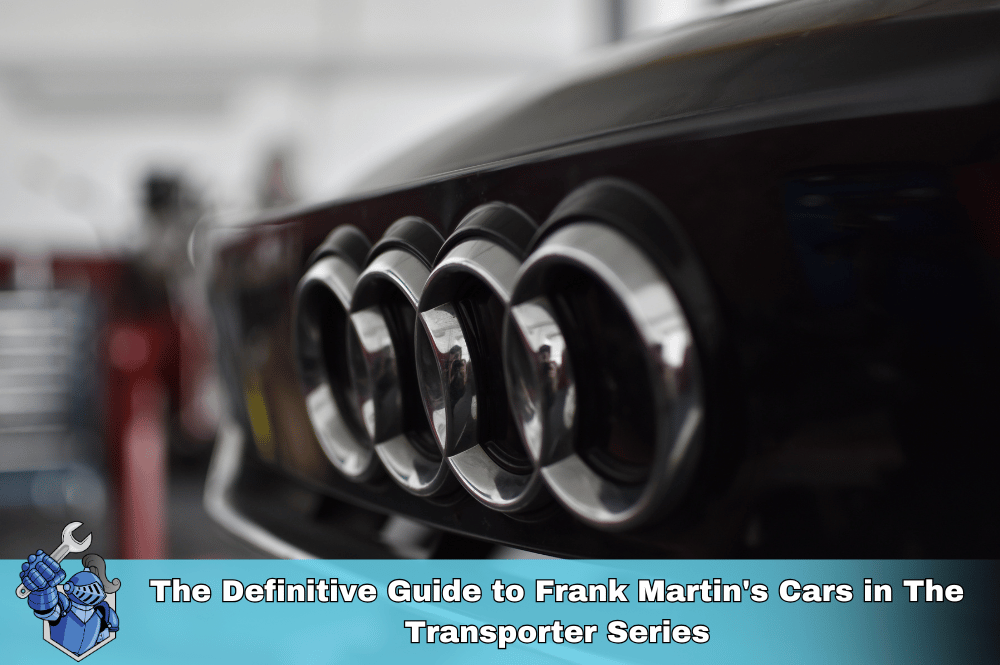 The Definitive Guide to Frank Martin's Cars in The Transporter Series
The Definitive Guide to Frank Martin's Cars in The Transporter Series Why Your Car Insurance is Skyrocketing in 2025 (and How NobleQuote Can Help)
Why Your Car Insurance is Skyrocketing in 2025 (and How NobleQuote Can Help) The 2025 Toyota Supra: The Grand Finale of a Legend?
The 2025 Toyota Supra: The Grand Finale of a Legend?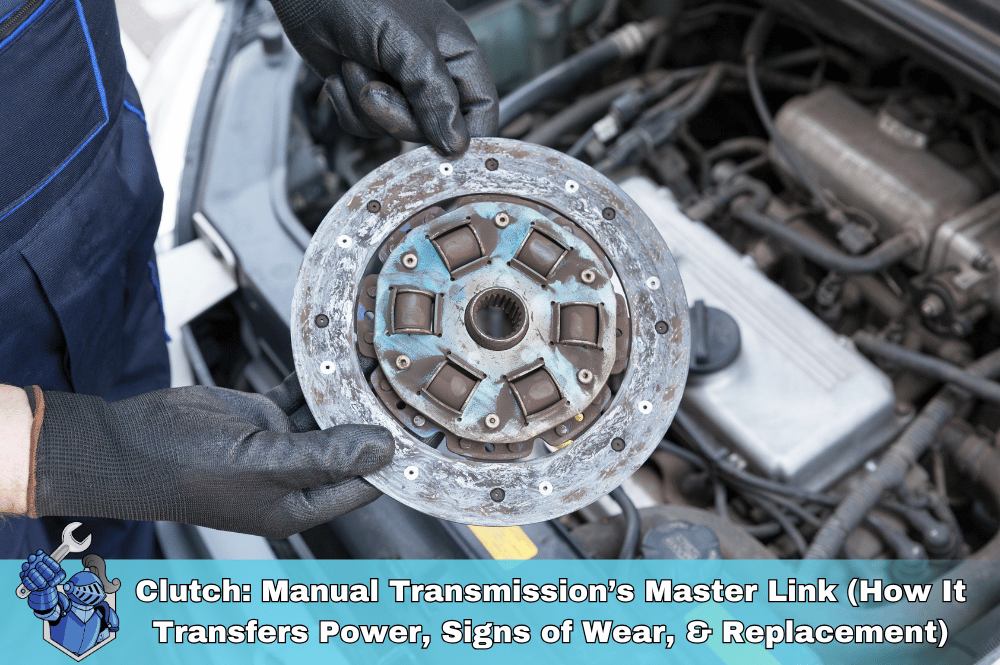 Clutch: Manual Transmission’s Master Link (How It Transfers Power, Signs of Wear, & Replacement)
Clutch: Manual Transmission’s Master Link (How It Transfers Power, Signs of Wear, & Replacement) Teen Driver Car Insurance Costs & Strategies: How to Get Affordable Coverage for Young Drivers
Teen Driver Car Insurance Costs & Strategies: How to Get Affordable Coverage for Young Drivers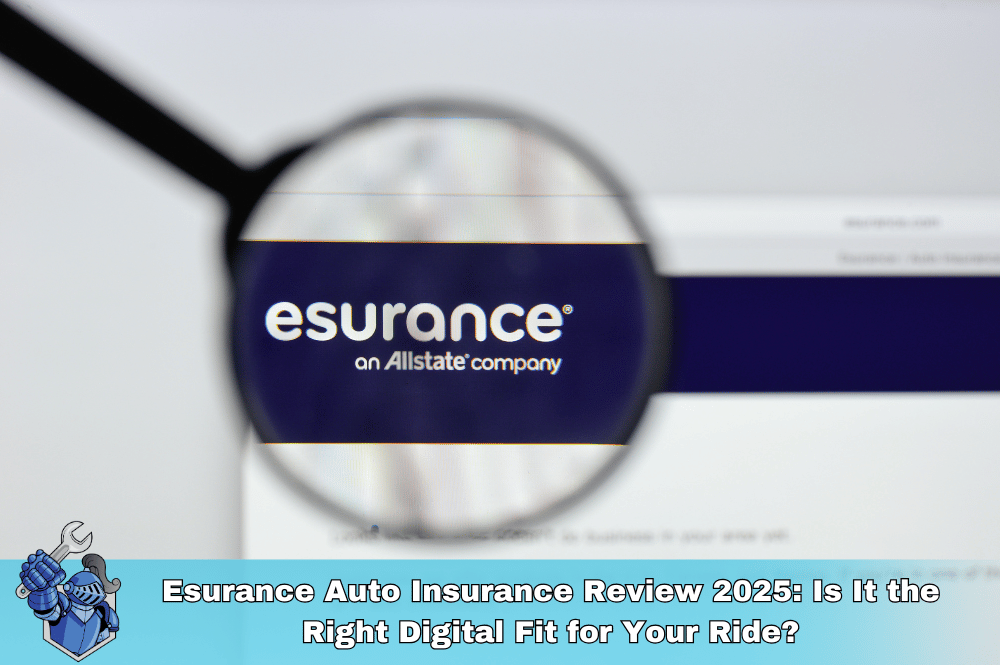 Esurance Auto Insurance Review 2025: Is It the Right Digital Fit for Your Ride?
Esurance Auto Insurance Review 2025: Is It the Right Digital Fit for Your Ride?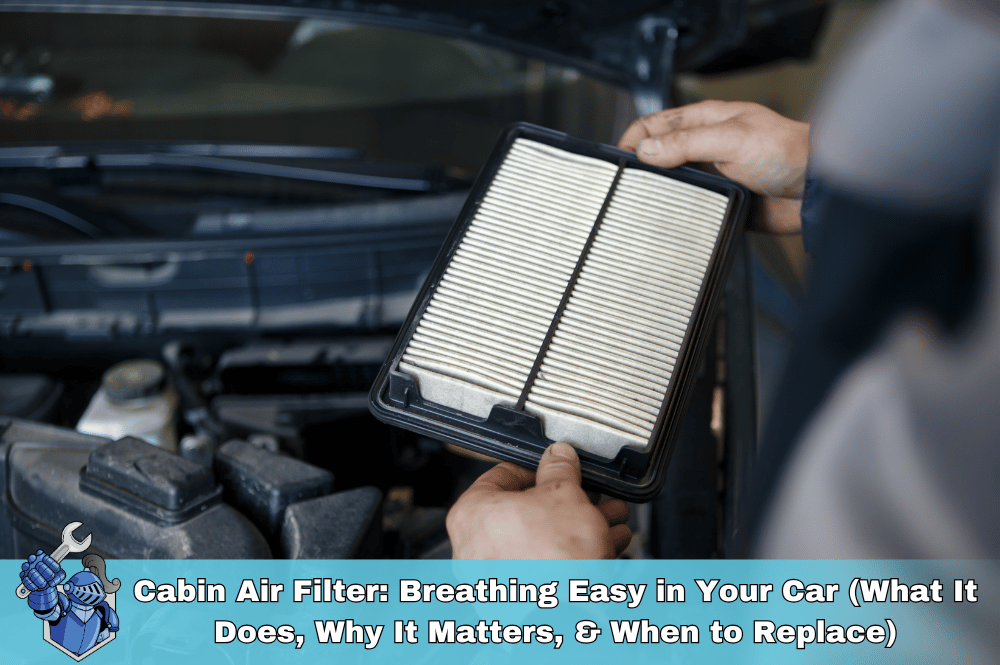 Cabin Air Filter: Breathing Easy in Your Car (What It Does, Why It Matters, & When to Replace)
Cabin Air Filter: Breathing Easy in Your Car (What It Does, Why It Matters, & When to Replace) Is Your Car Insurance Enough? Unexpected Repairs and the Peace of Mind of a NobleQuote Vehicle Service Contract
Is Your Car Insurance Enough? Unexpected Repairs and the Peace of Mind of a NobleQuote Vehicle Service Contract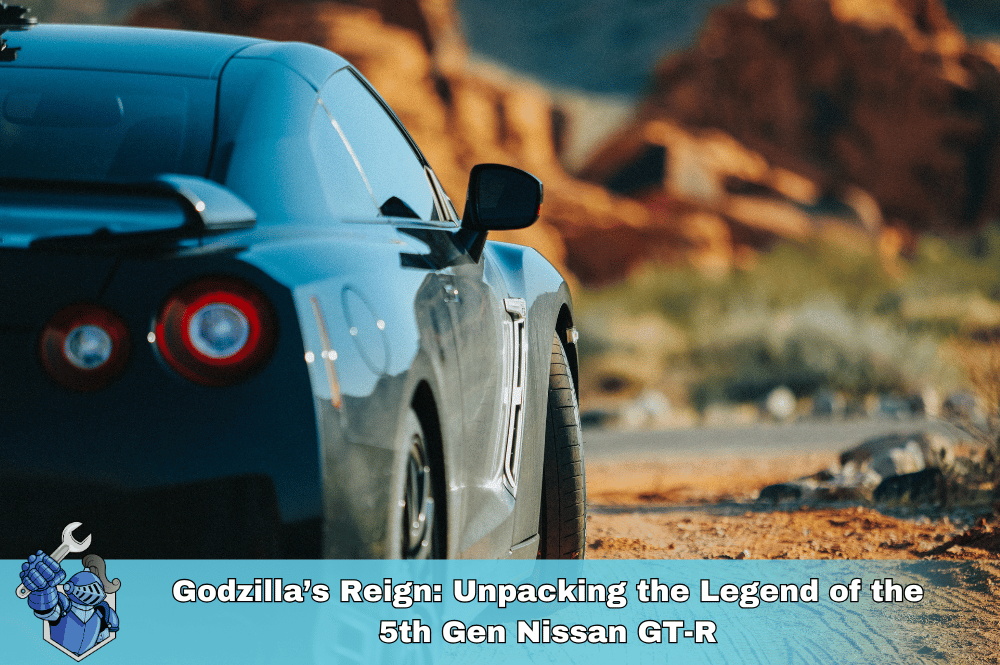 Godzilla’s Reign: Unpacking the Legend of the 5th Gen Nissan GT-R
Godzilla’s Reign: Unpacking the Legend of the 5th Gen Nissan GT-R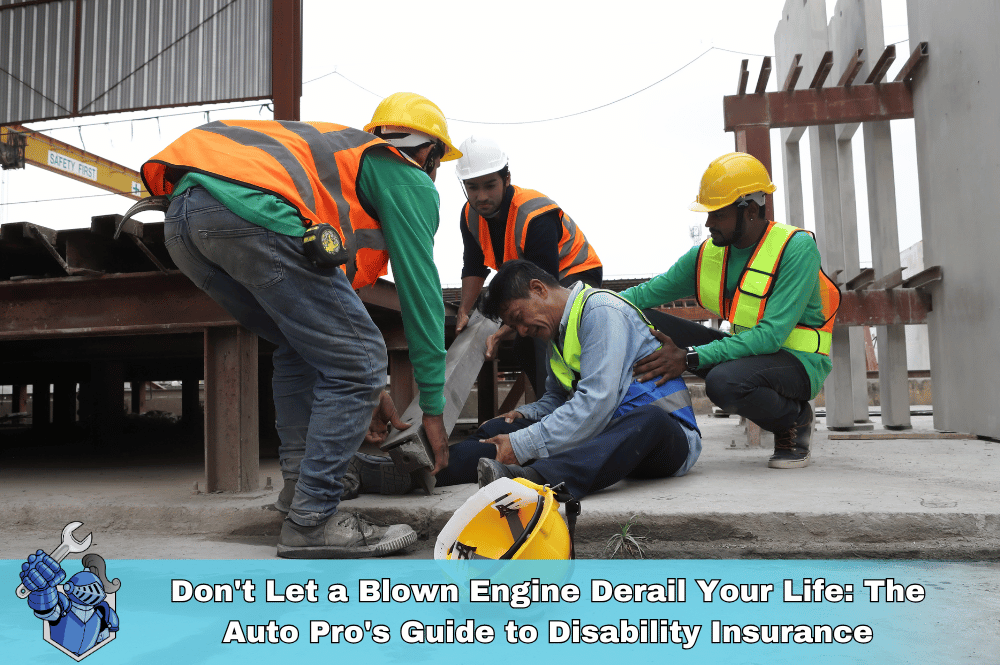 Don't Let a Blown Engine Derail Your Life: The Auto Pro's Guide to Disability Insurance
Don't Let a Blown Engine Derail Your Life: The Auto Pro's Guide to Disability Insurance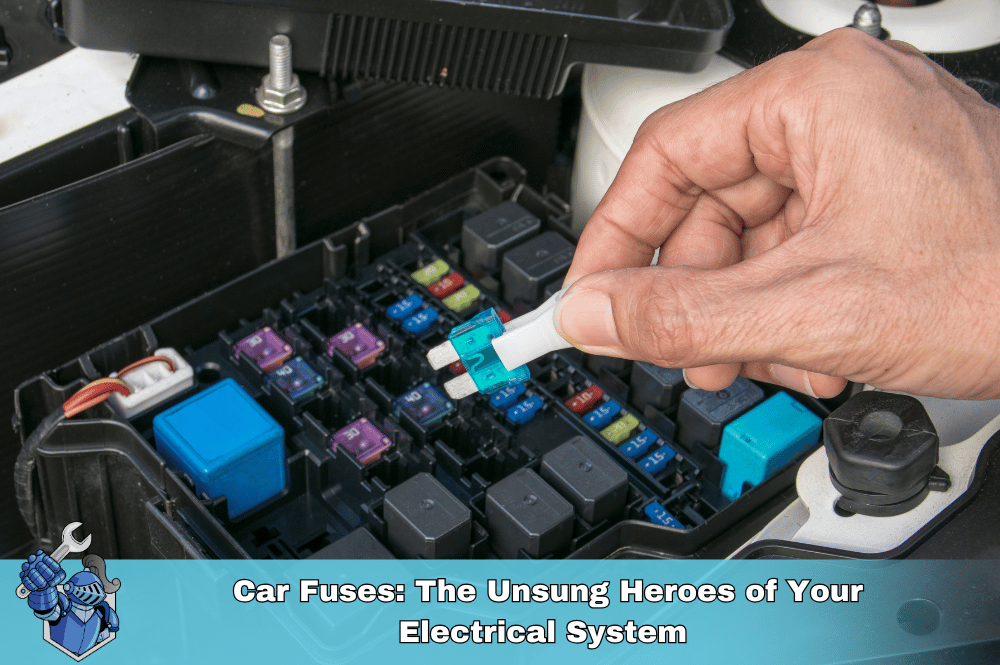 Car Fuses: The Unsung Heroes of Your Electrical System (What They Do, Common Failures, & How to Replace)
Car Fuses: The Unsung Heroes of Your Electrical System (What They Do, Common Failures, & How to Replace) Protect Your Ride & Your Family: Why Northwestern Mutual Life Insurance Matters for Car Owners
Protect Your Ride & Your Family: Why Northwestern Mutual Life Insurance Matters for Car Owners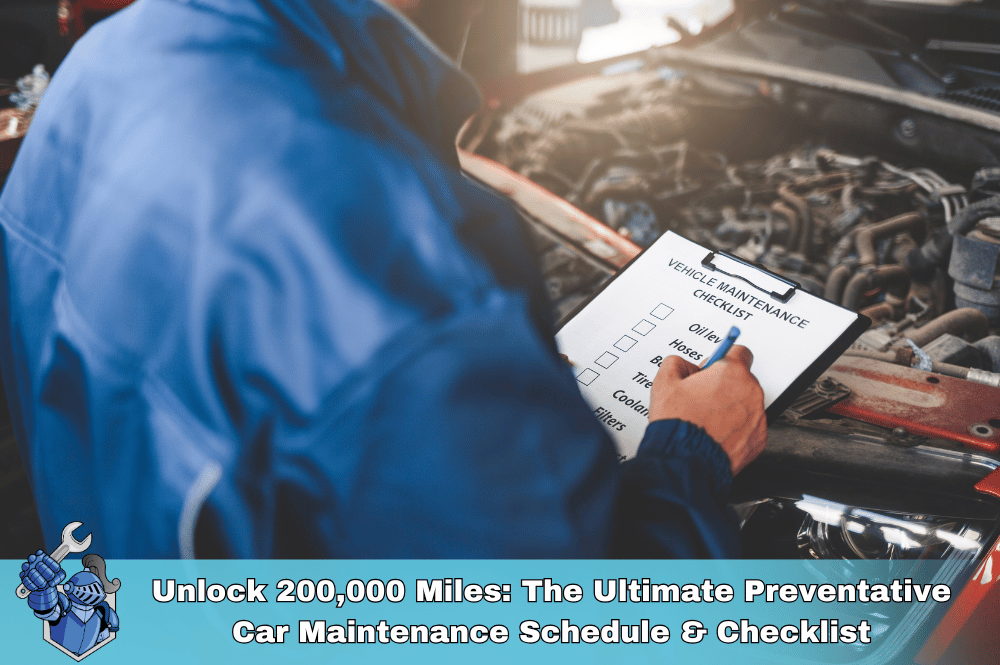 Unlock 200,000 Miles: The Ultimate Preventative Car Maintenance Schedule & Checklist
Unlock 200,000 Miles: The Ultimate Preventative Car Maintenance Schedule & Checklist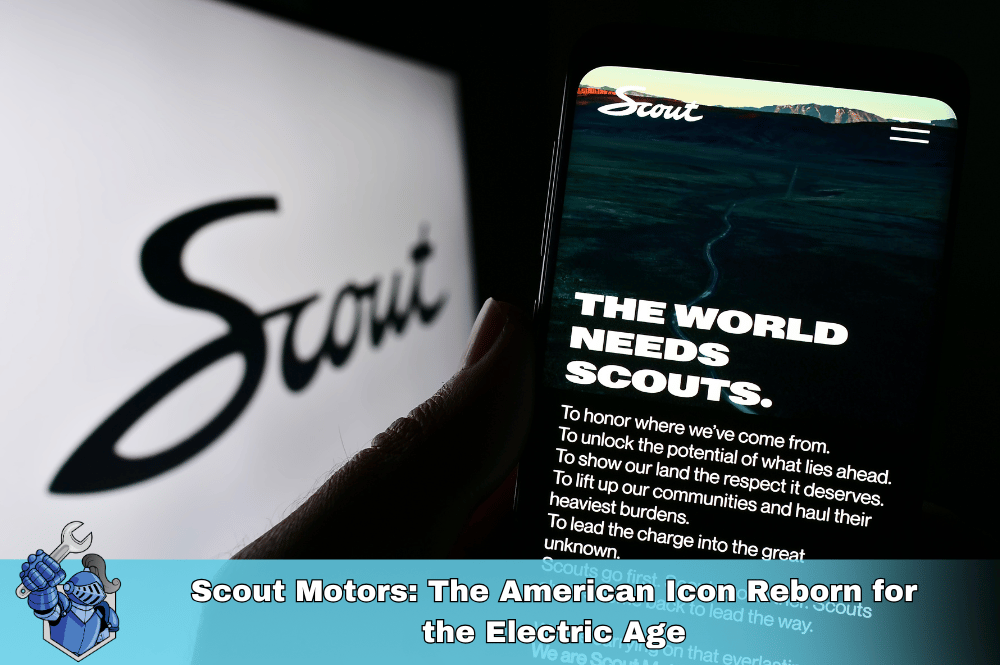 Scout Motors: The American Icon Reborn for the Electric Age
Scout Motors: The American Icon Reborn for the Electric Age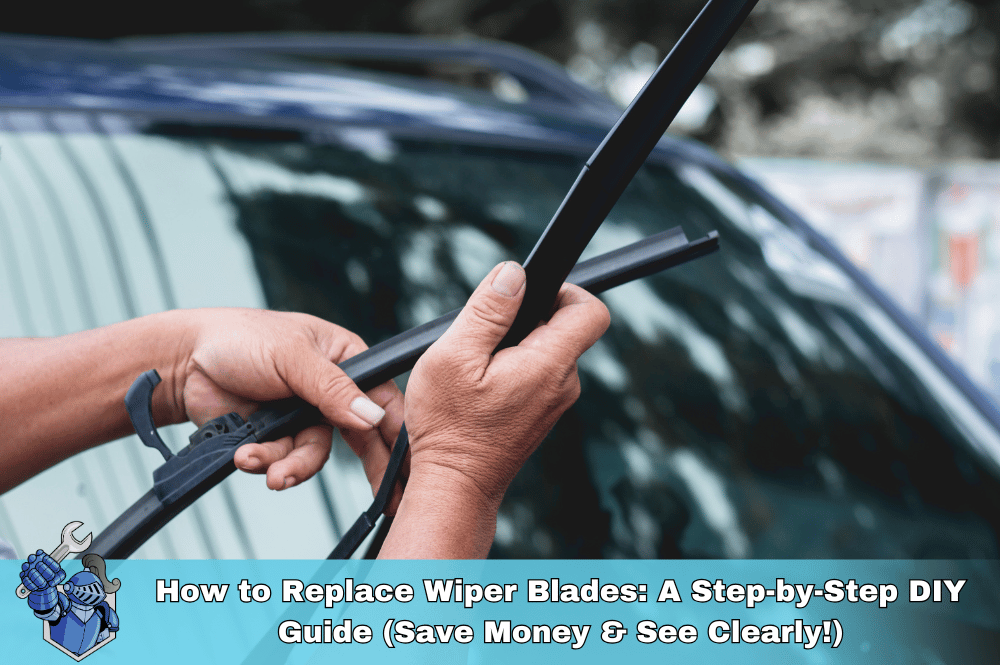 How to Replace Wiper Blades: A Step-by-Step DIY Guide (Save Money & See Clearly!)
How to Replace Wiper Blades: A Step-by-Step DIY Guide (Save Money & See Clearly!)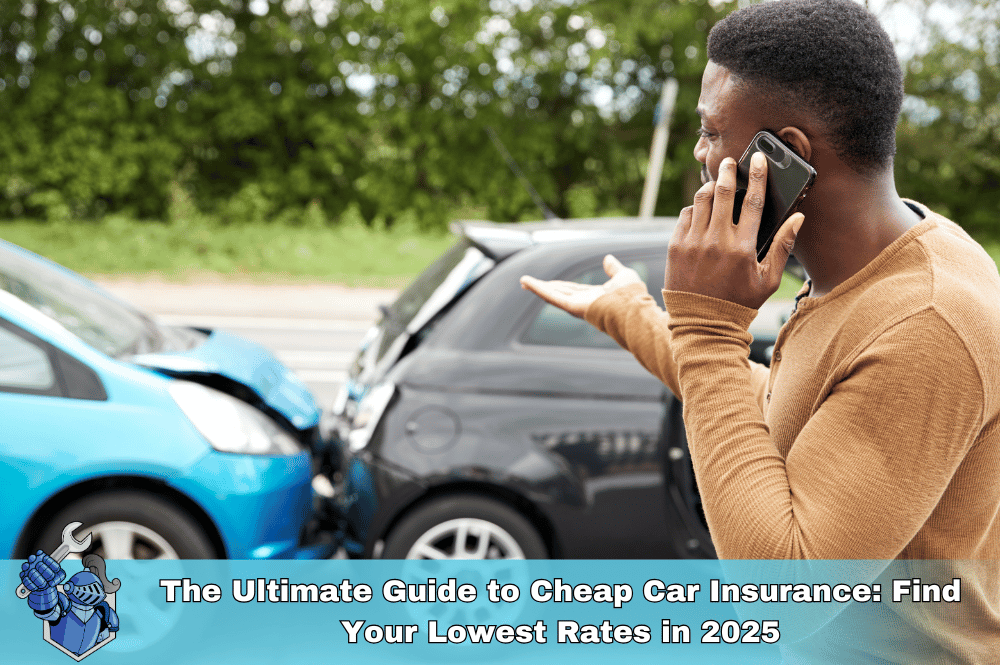 The Ultimate Guide to Cheap Car Insurance: Find Your Lowest Rates in 2025
The Ultimate Guide to Cheap Car Insurance: Find Your Lowest Rates in 2025 The 2025 Automotive Retirement Number: What Auto Pros Need to Save for a Comfortable Ride
The 2025 Automotive Retirement Number: What Auto Pros Need to Save for a Comfortable Ride Unearthing Automotive Gold: The Underrated Used Cars You Need to Buy Now
Unearthing Automotive Gold: The Underrated Used Cars You Need to Buy Now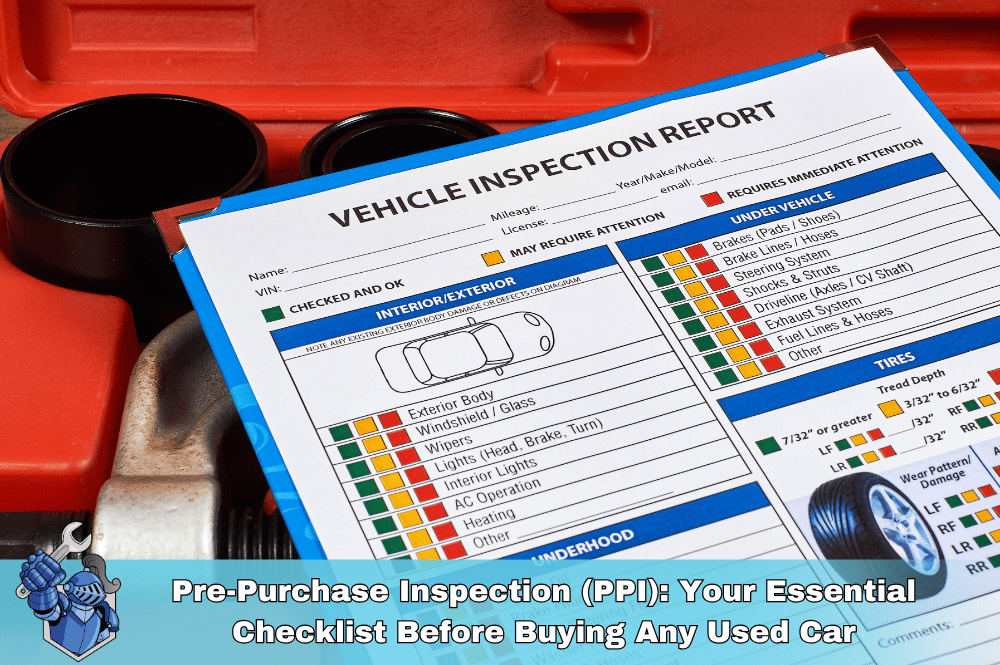 Pre-Purchase Inspection (PPI): Your Essential Checklist Before Buying Any Used Car
Pre-Purchase Inspection (PPI): Your Essential Checklist Before Buying Any Used Car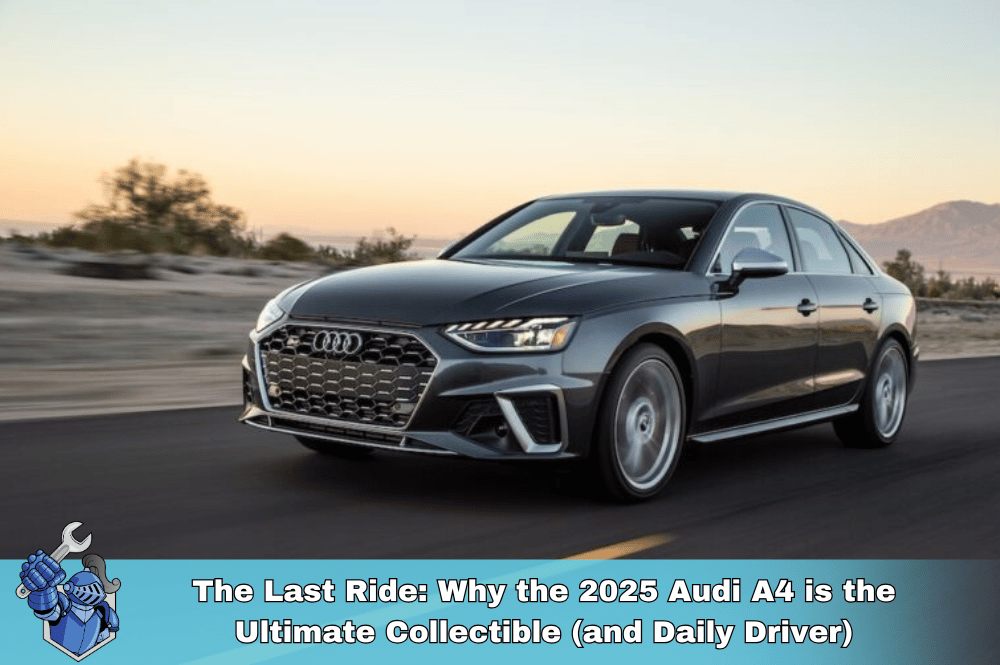 The Last Ride: Why the 2025 Audi A4 is the Ultimate Collectible (and Daily Driver)
The Last Ride: Why the 2025 Audi A4 is the Ultimate Collectible (and Daily Driver) 2025 Corvette ZR1: The Ultimate Guide to Specs, Price, and Performance
2025 Corvette ZR1: The Ultimate Guide to Specs, Price, and Performance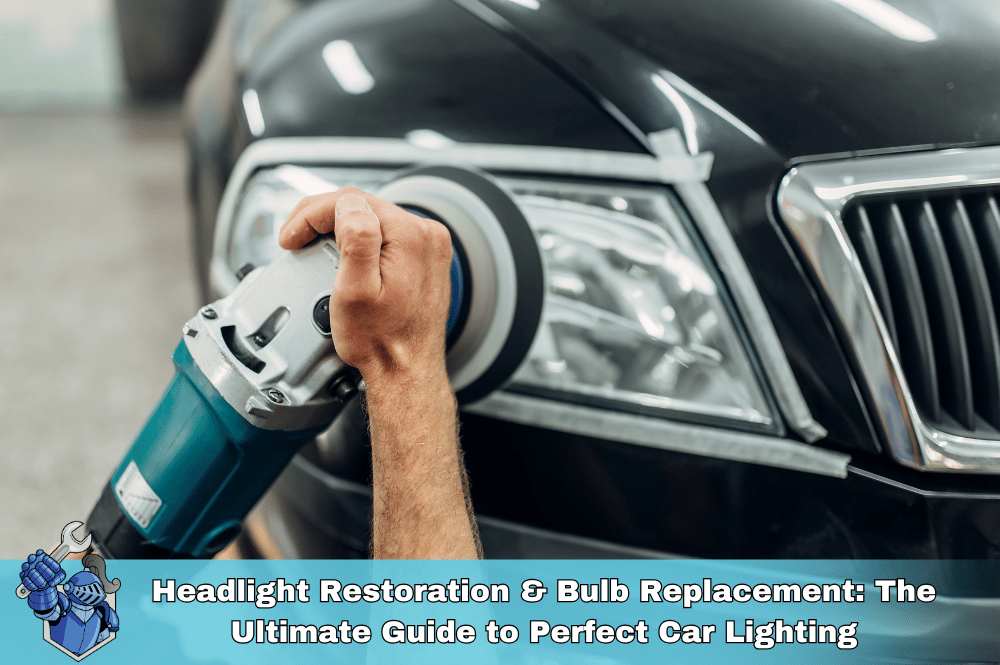 Headlight Restoration & Bulb Replacement: The Ultimate Guide to Perfect Car Lighting
Headlight Restoration & Bulb Replacement: The Ultimate Guide to Perfect Car Lighting Does Driving for Uber/Lyft/DoorDash Void Your Car’s Warranty? & How to Get Covered
Does Driving for Uber/Lyft/DoorDash Void Your Car’s Warranty? & How to Get Covered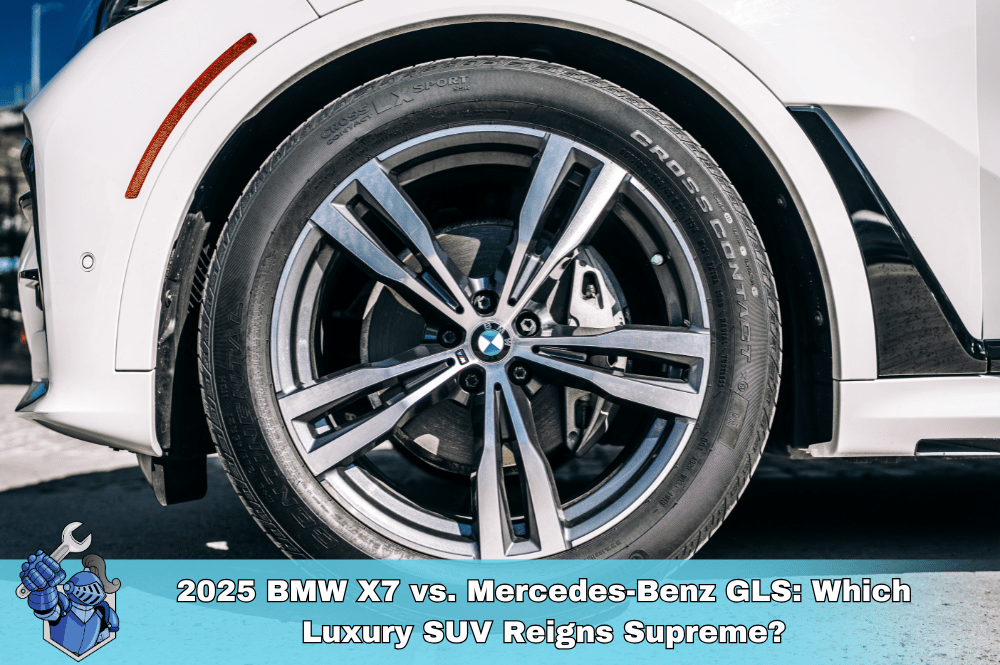 2025 BMW X7 vs. Mercedes-Benz GLS: Which Luxury SUV Reigns Supreme?
2025 BMW X7 vs. Mercedes-Benz GLS: Which Luxury SUV Reigns Supreme? The Ultimate Guide to Motorcycle Extended Warranties: Is It Worth It for Your Ride?
The Ultimate Guide to Motorcycle Extended Warranties: Is It Worth It for Your Ride?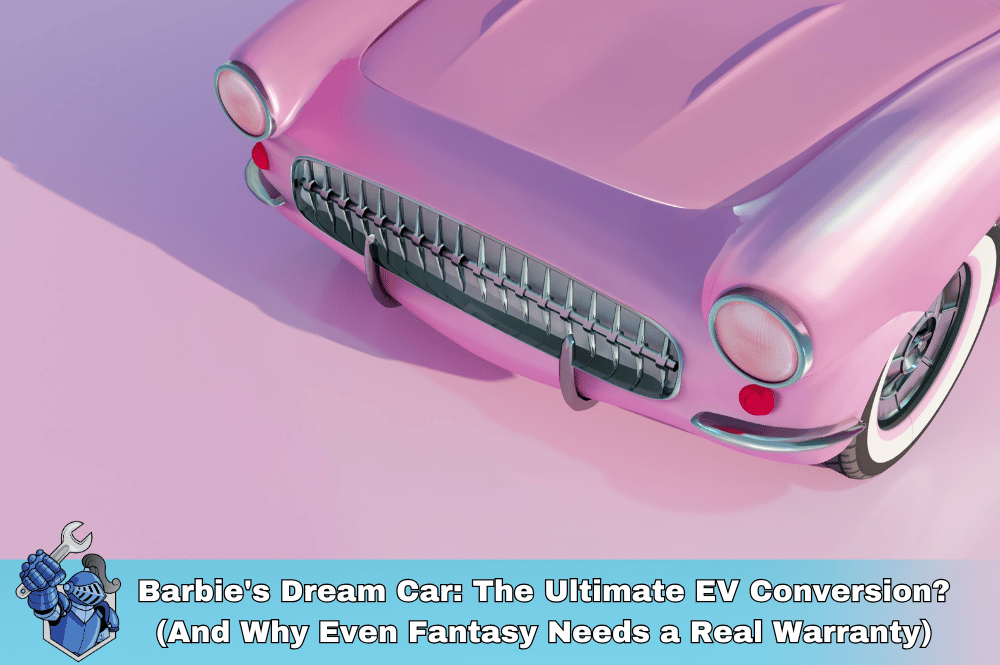 Barbie's Dream Car: The Ultimate EV Conversion? (And Why Even Fantasy Needs a Real Warranty)
Barbie's Dream Car: The Ultimate EV Conversion? (And Why Even Fantasy Needs a Real Warranty)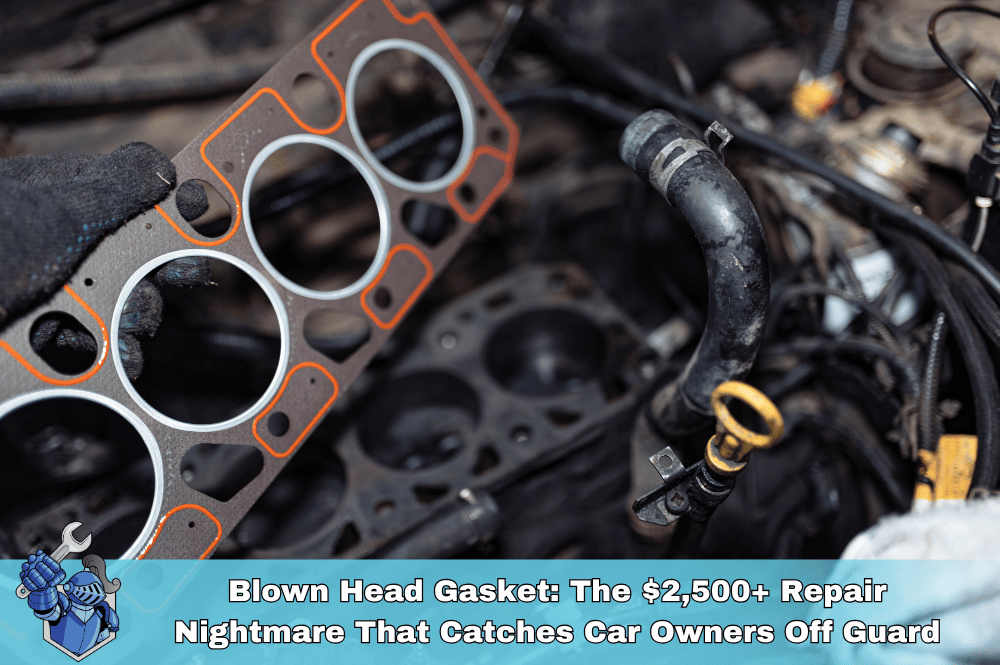 Blown Head Gasket: The $2,500+ Repair Nightmare That Catches Car Owners Off Guard – Learn How to Prepare
Blown Head Gasket: The $2,500+ Repair Nightmare That Catches Car Owners Off Guard – Learn How to Prepare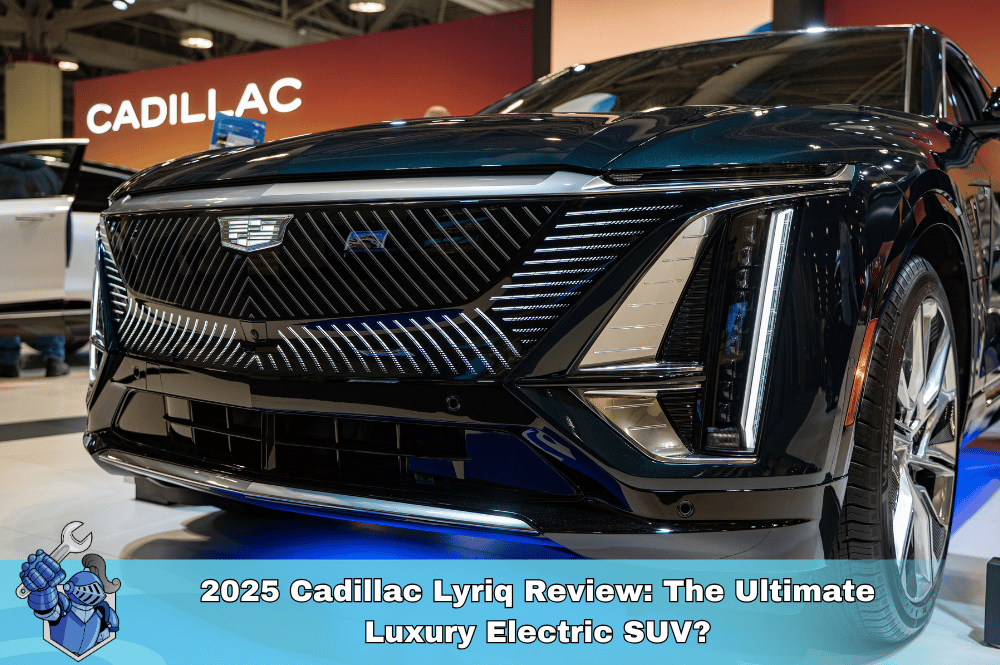 2025 Cadillac Lyriq Review: The Ultimate Luxury Electric SUV?
2025 Cadillac Lyriq Review: The Ultimate Luxury Electric SUV?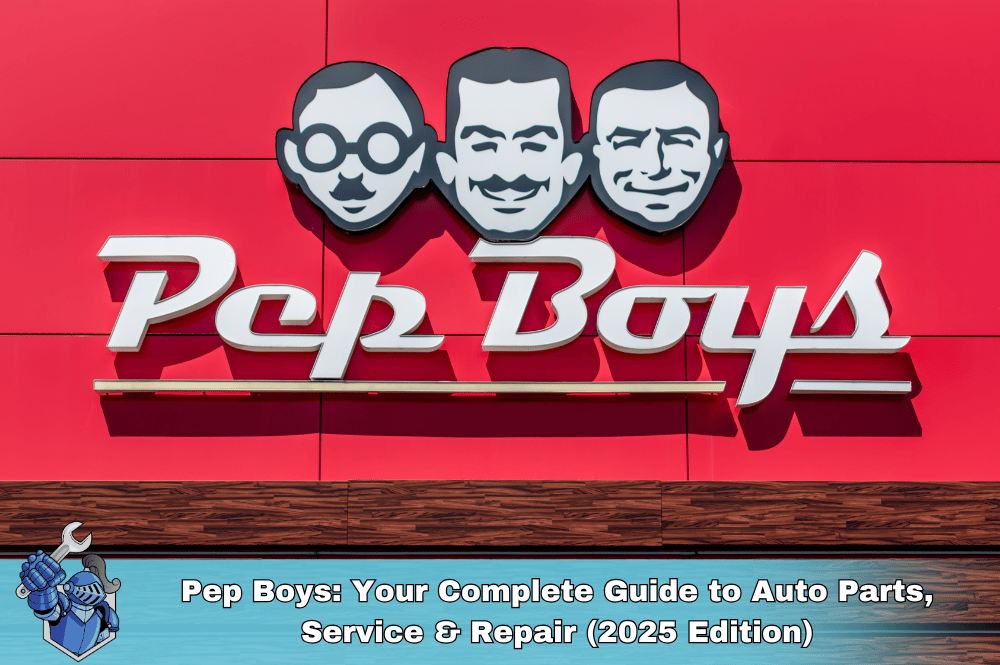 Pep Boys: Your Complete Guide to Auto Parts, Service & Repair (2025 Edition)
Pep Boys: Your Complete Guide to Auto Parts, Service & Repair (2025 Edition) Drive Smarter: Unlock Vehicle Protection with 0% APR Service Contract Payments
Drive Smarter: Unlock Vehicle Protection with 0% APR Service Contract Payments 2025 Harley-Davidson Sportster S: The Ultimate Review & Buyer’s Guide
2025 Harley-Davidson Sportster S: The Ultimate Review & Buyer’s Guide The Ultimate Dodge Viper Guide: All Generations, Specs, & History (1991–2017)
The Ultimate Dodge Viper Guide: All Generations, Specs, & History (1991–2017)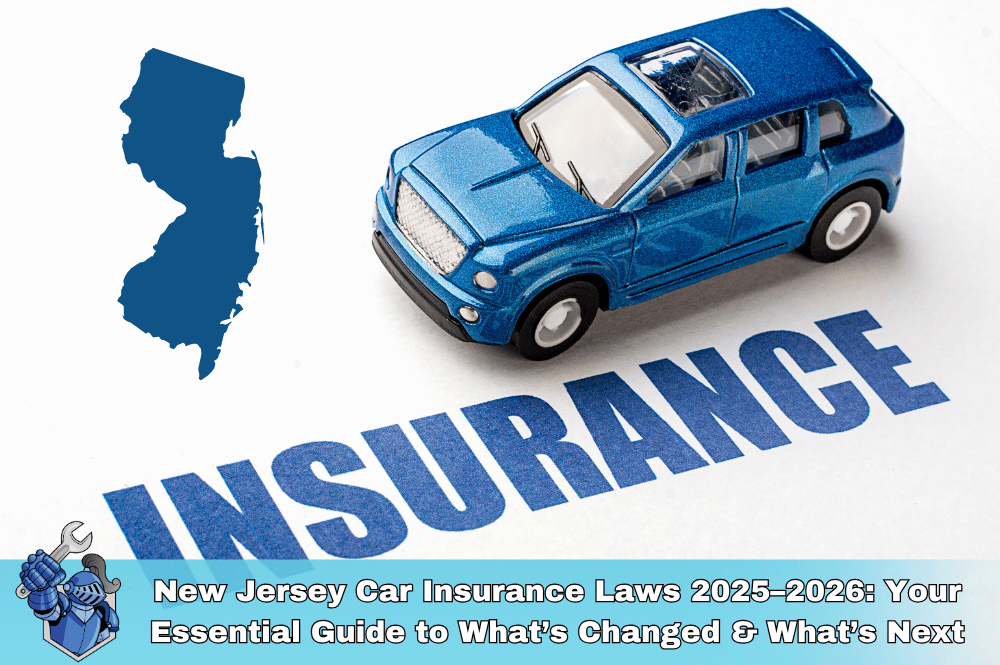 New Jersey Car Insurance Laws 2025–2026: Your Essential Guide to What’s Changed & What’s Next
New Jersey Car Insurance Laws 2025–2026: Your Essential Guide to What’s Changed & What’s Next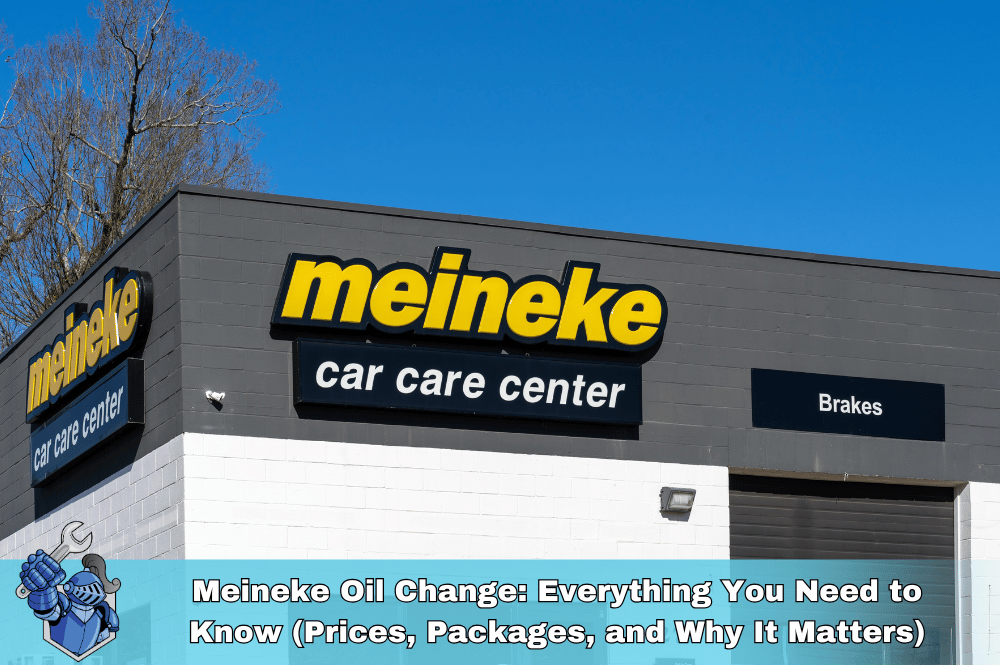 Meineke Oil Change: Everything You Need to Know (Prices, Packages, and Why It Matters)
Meineke Oil Change: Everything You Need to Know (Prices, Packages, and Why It Matters)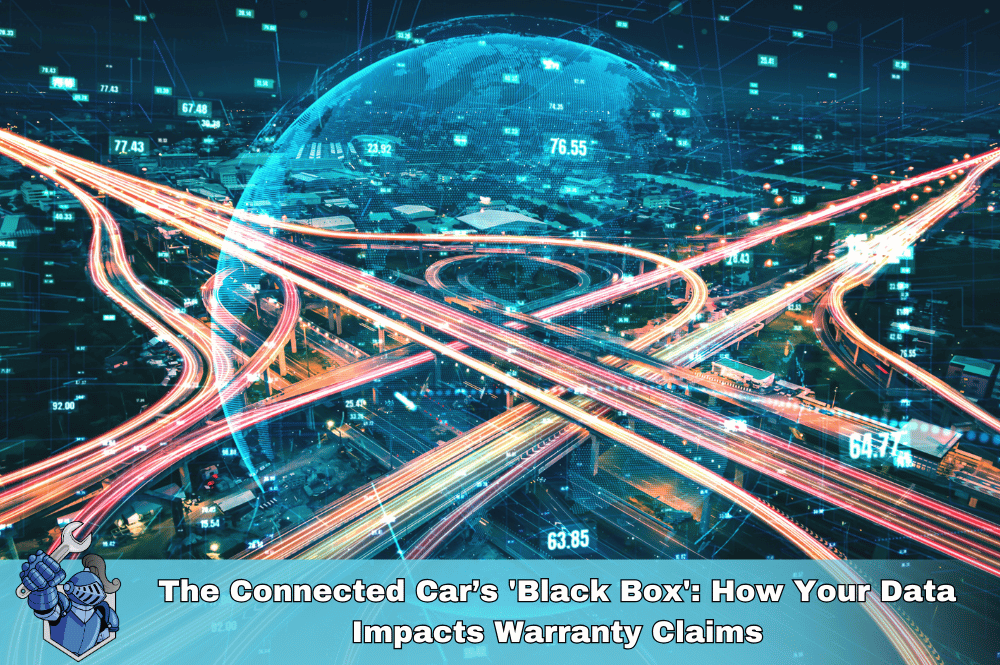 The Connected Car’s 'Black Box': How Your Data Impacts Warranty Claims
The Connected Car’s 'Black Box': How Your Data Impacts Warranty Claims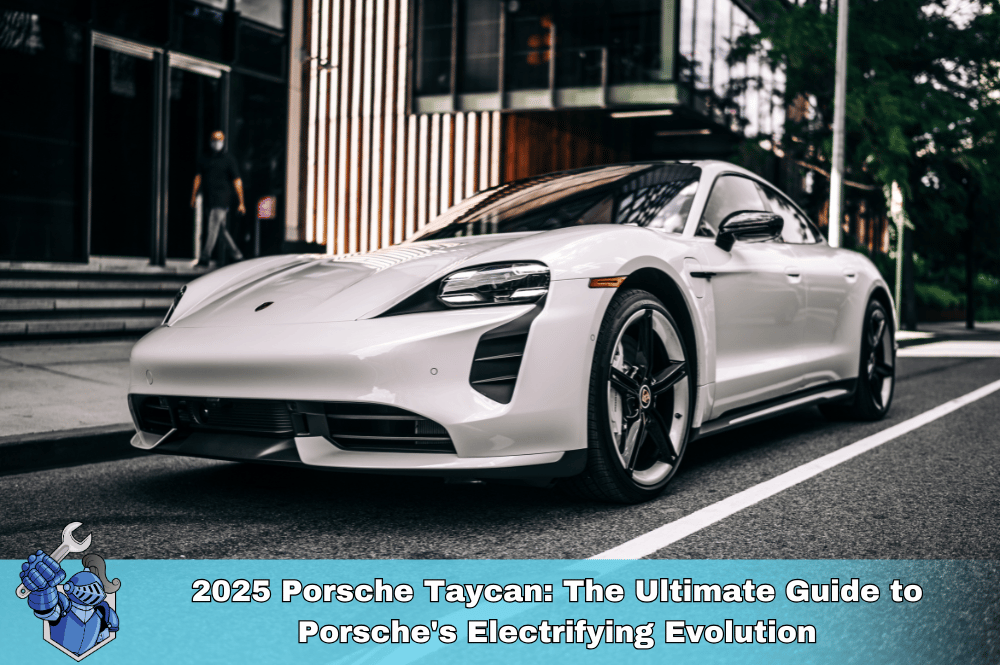 2025 Porsche Taycan: The Ultimate Guide to Porsche's Electrifying Evolution
2025 Porsche Taycan: The Ultimate Guide to Porsche's Electrifying Evolution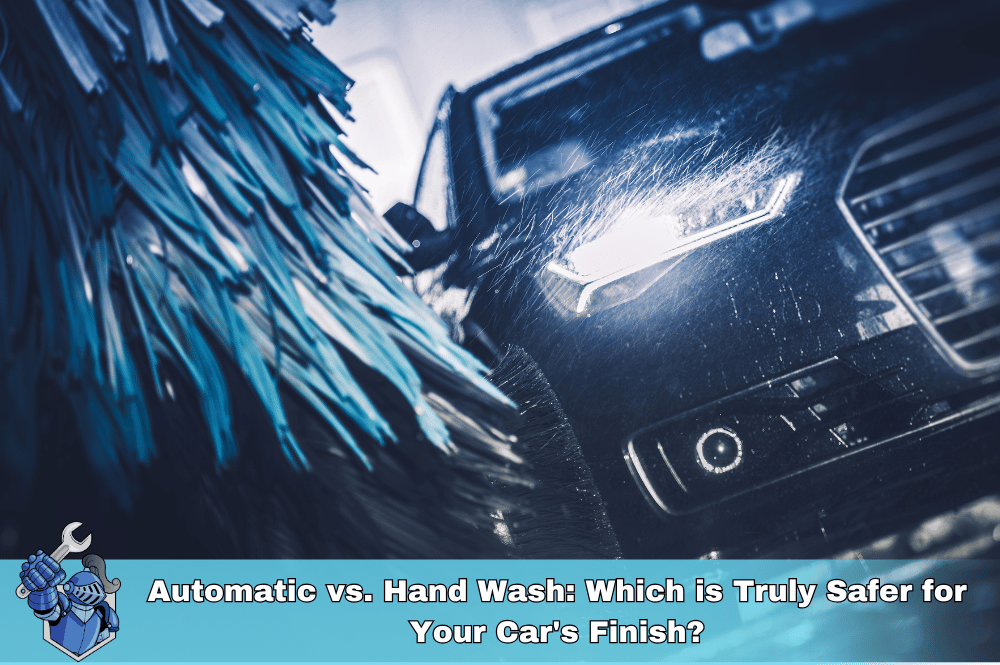 Automatic vs. Hand Wash: Which is Truly Safer for Your Car's Finish?
Automatic vs. Hand Wash: Which is Truly Safer for Your Car's Finish?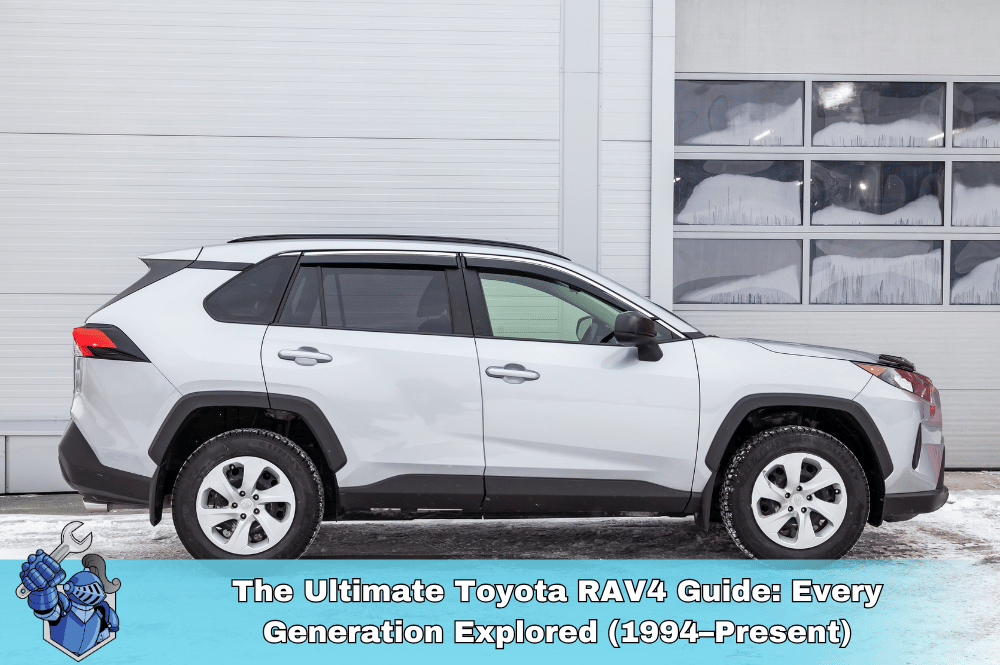 The Ultimate Toyota RAV4 Guide: Every Generation Explored (1994–Present)
The Ultimate Toyota RAV4 Guide: Every Generation Explored (1994–Present) Homeowners Insurance vs. Home Warranty: A Clear Breakdown for Every Homeowner
Homeowners Insurance vs. Home Warranty: A Clear Breakdown for Every Homeowner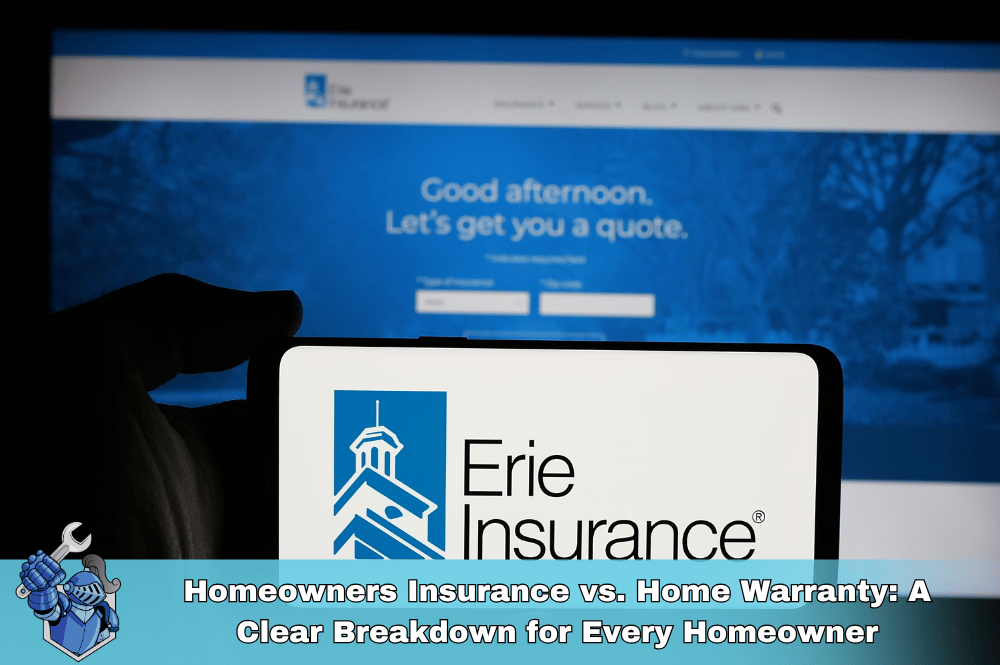 Erie Auto Insurance Review 2025: Rates, Discounts, & Why Drivers Choose It
Erie Auto Insurance Review 2025: Rates, Discounts, & Why Drivers Choose It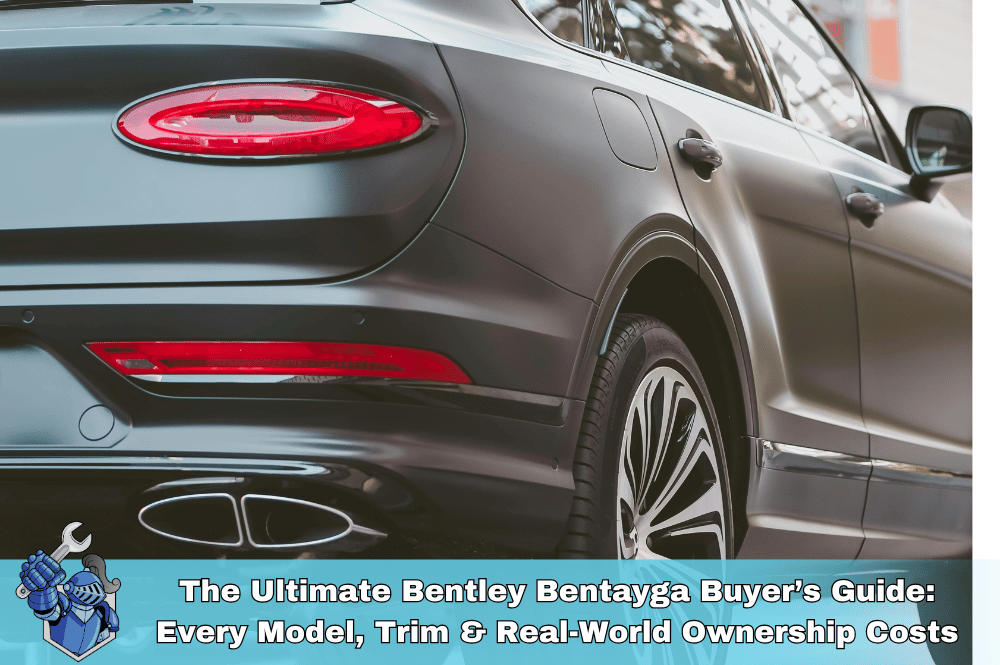 The Ultimate Bentley Bentayga Buyer’s Guide: Every Model, Trim & Real-World Ownership Costs
The Ultimate Bentley Bentayga Buyer’s Guide: Every Model, Trim & Real-World Ownership Costs The Ultimate Lamborghini Urus Buyer's Guide: Every Generation, Model, & What You Need to Know Before Owning
The Ultimate Lamborghini Urus Buyer's Guide: Every Generation, Model, & What You Need to Know Before Owning Mazda6 Generations Explained: A Complete History & Buyer's Guide (All Models)
Mazda6 Generations Explained: A Complete History & Buyer's Guide (All Models)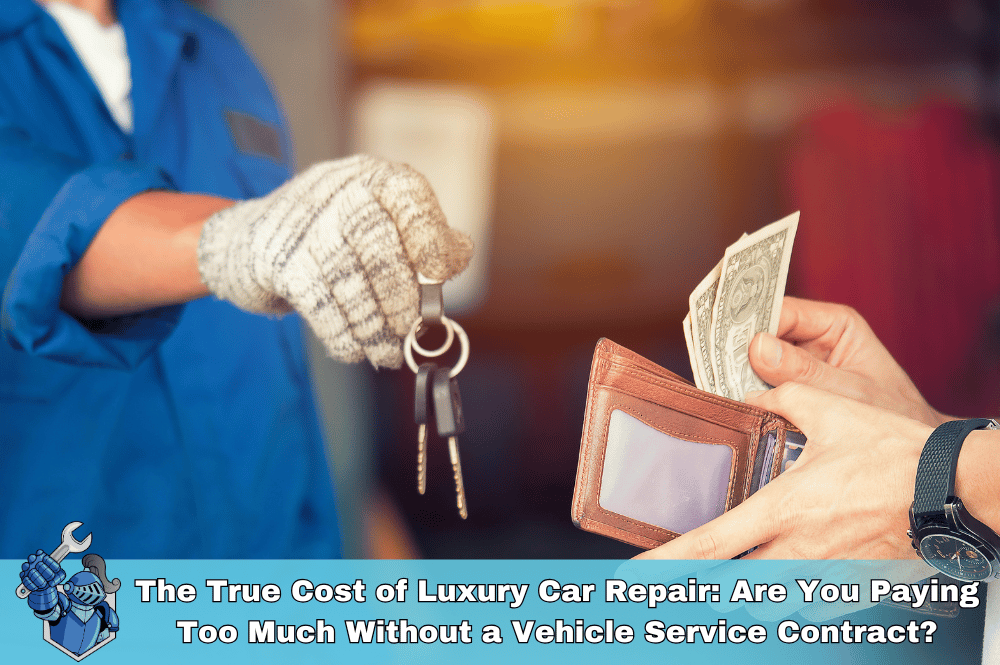 The True Cost of Luxury Car Repair: Are You Paying Too Much Without a Vehicle Service Contract?
The True Cost of Luxury Car Repair: Are You Paying Too Much Without a Vehicle Service Contract? Chubb Auto Insurance: The Premier Choice for Luxury, Exotic, and Classic Cars
Chubb Auto Insurance: The Premier Choice for Luxury, Exotic, and Classic Cars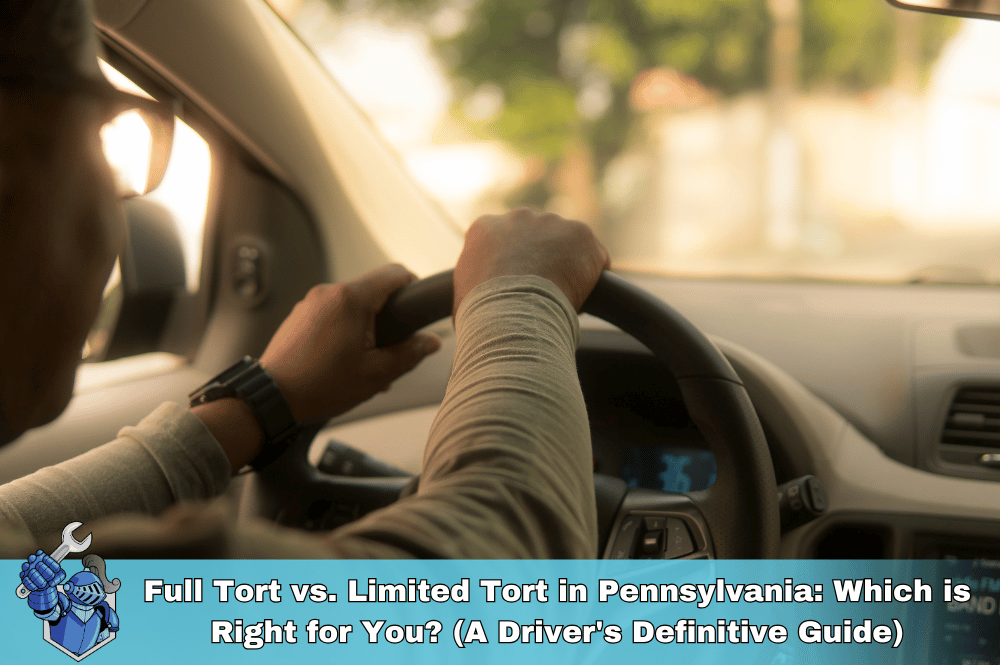 Full Tort vs. Limited Tort in Pennsylvania: Which is Right for You? (A Driver's Definitive Guide)
Full Tort vs. Limited Tort in Pennsylvania: Which is Right for You? (A Driver's Definitive Guide) Cash vs. Car Loan: Which is Right for Your Next Vehicle Purchase?
Cash vs. Car Loan: Which is Right for Your Next Vehicle Purchase?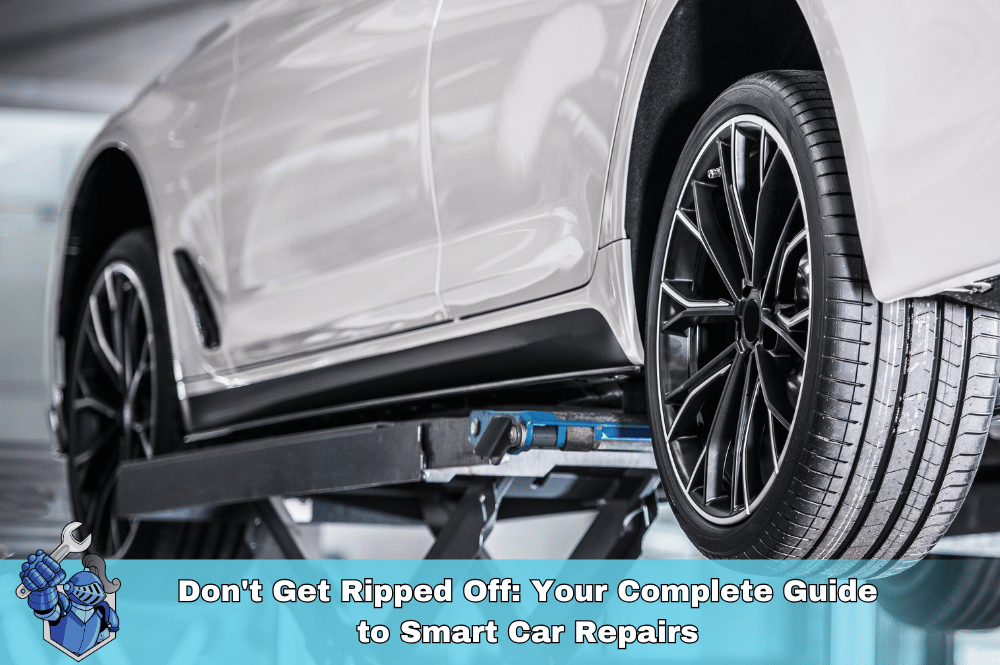 Don't Get Ripped Off: Your Complete Guide to Smart Car Repairs
Don't Get Ripped Off: Your Complete Guide to Smart Car Repairs The New Land Rover Defender: Redefining Rugged Luxury (Your Ultimate Review & Buying Guide)
The New Land Rover Defender: Redefining Rugged Luxury (Your Ultimate Review & Buying Guide) The Silent Killer: Why Not Driving Your Car Wears It Out Faster Than You Think
The Silent Killer: Why Not Driving Your Car Wears It Out Faster Than You Think The Ultimate 2025 Hyundai Santa Fe Review: Your Complete Buyer’s Guide
The Ultimate 2025 Hyundai Santa Fe Review: Your Complete Buyer’s Guide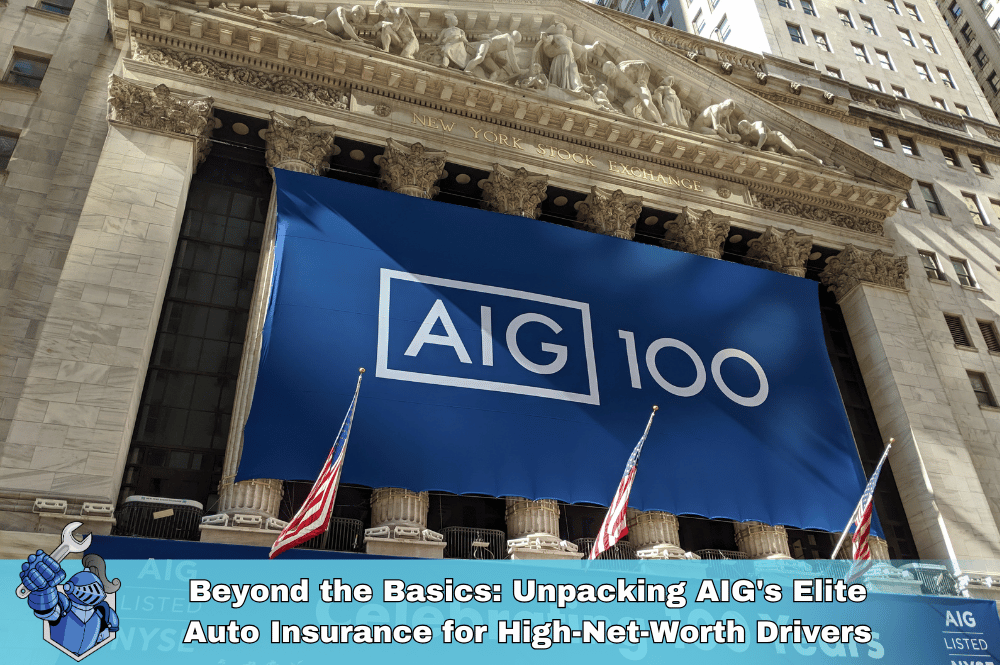 Beyond the Basics: Unpacking AIG's Elite Auto Insurance for High-Net-Worth Drivers
Beyond the Basics: Unpacking AIG's Elite Auto Insurance for High-Net-Worth Drivers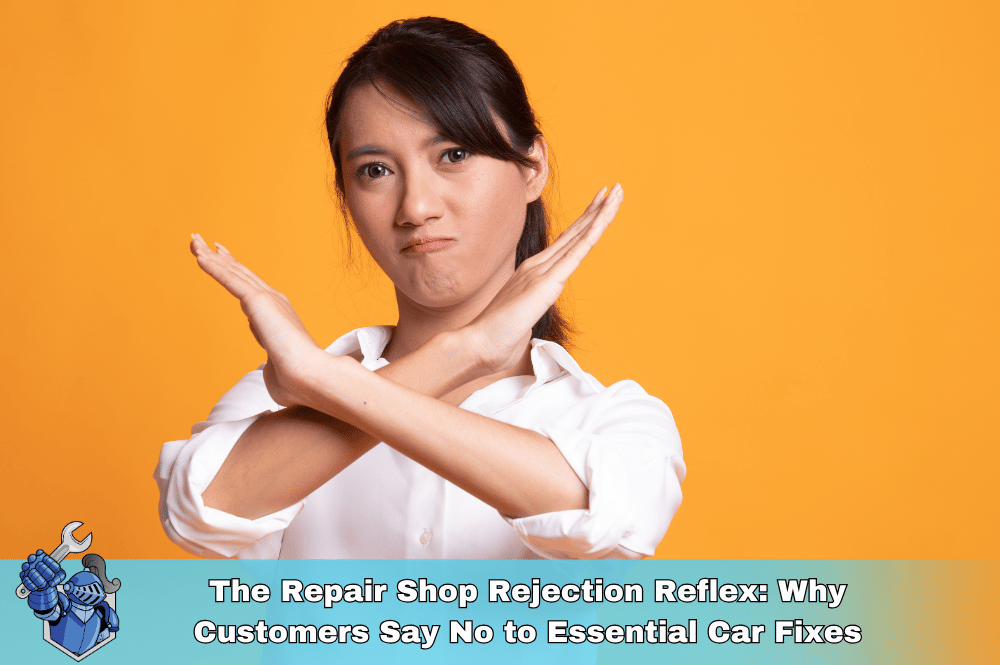 The Repair Shop Rejection Reflex: Why Customers Say No to Essential Car Fixes
The Repair Shop Rejection Reflex: Why Customers Say No to Essential Car Fixes Amica Auto Insurance Review 2025: Unpacking Value, Dividends, and Why It Consistently Ranks #1 for Service
Amica Auto Insurance Review 2025: Unpacking Value, Dividends, and Why It Consistently Ranks #1 for Service Rolls-Royce Cullinan Review: Is This the World's Ultimate Luxury SUV?
Rolls-Royce Cullinan Review: Is This the World's Ultimate Luxury SUV?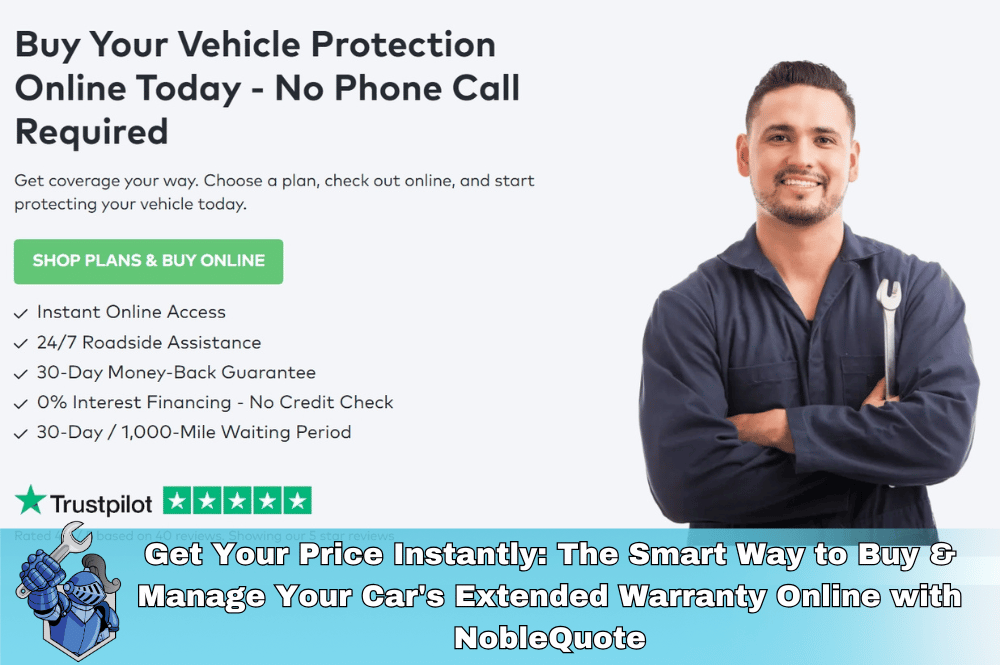 Get Your Price Instantly: The Smart Way to Buy & Manage Your Car's Extended Warranty Online with NobleQuote
Get Your Price Instantly: The Smart Way to Buy & Manage Your Car's Extended Warranty Online with NobleQuote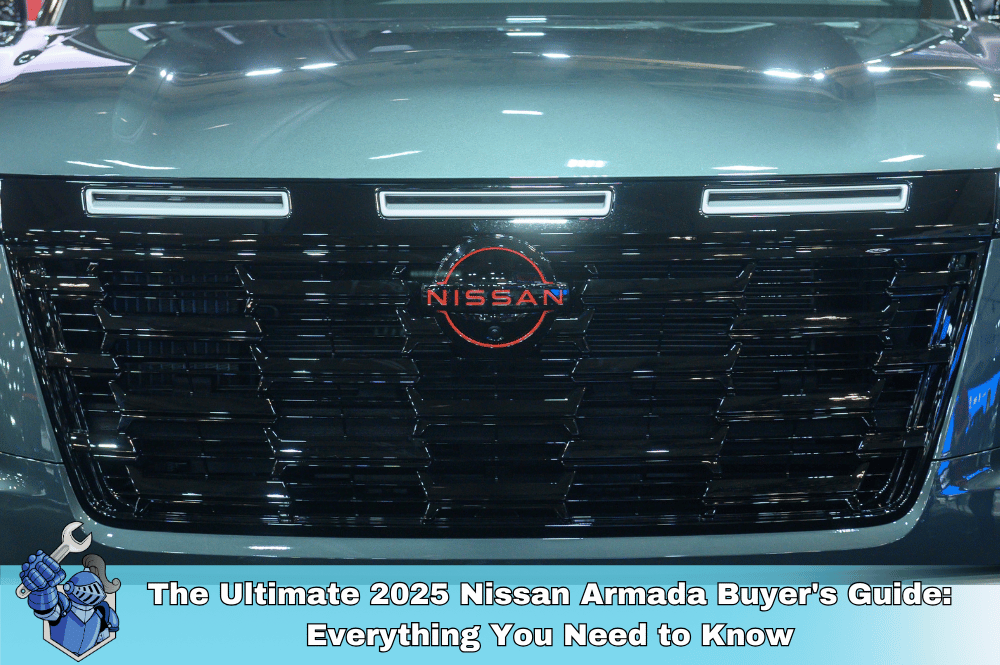 The Ultimate 2025 Nissan Armada Buyer's Guide: Everything You Need to Know
The Ultimate 2025 Nissan Armada Buyer's Guide: Everything You Need to Know The Ultimate Guide to Home Warranty Plumbing Coverage: What's Covered, What's Not, and Why It Matters
The Ultimate Guide to Home Warranty Plumbing Coverage: What's Covered, What's Not, and Why It Matters Rideshare Safety Unlocked: The Ultimate Guide to Secure Uber & Lyft Rides
Rideshare Safety Unlocked: The Ultimate Guide to Secure Uber & Lyft Rides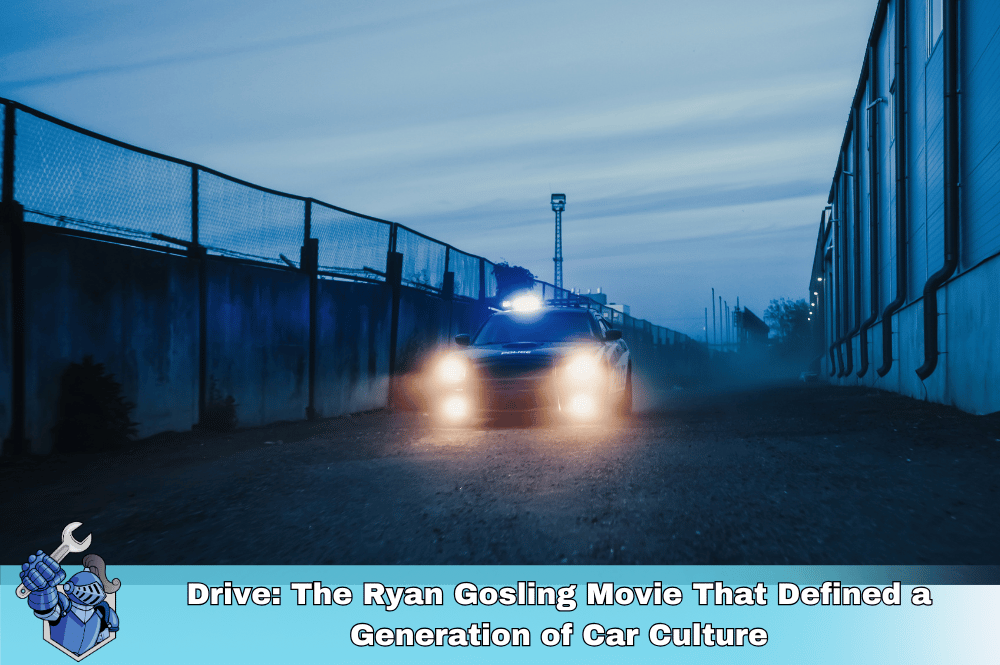 Drive: The Ryan Gosling Movie That Defined a Generation of Car Culture
Drive: The Ryan Gosling Movie That Defined a Generation of Car Culture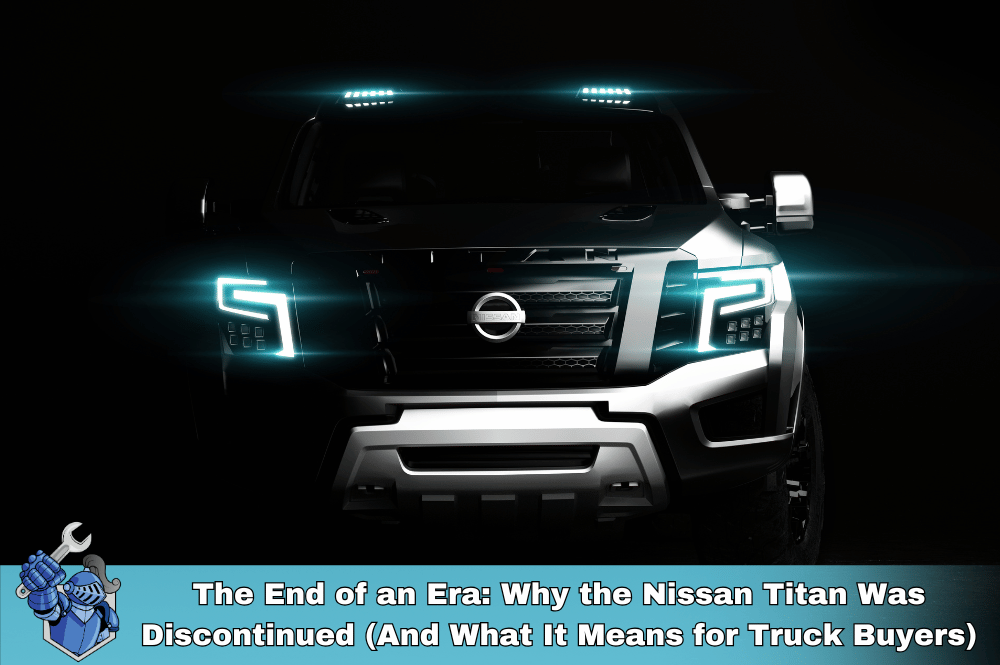 The End of an Era: Why the Nissan Titan Was Discontinued (And What It Means for Truck Buyers)
The End of an Era: Why the Nissan Titan Was Discontinued (And What It Means for Truck Buyers)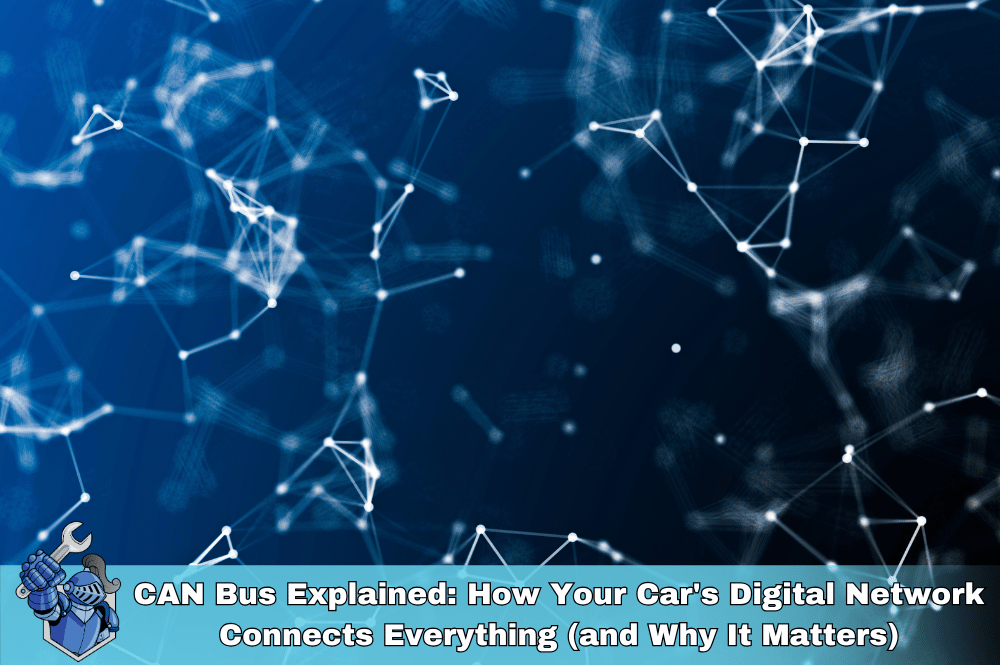 CAN Bus Explained: How Your Car's Digital Network Connects Everything (and Why It Matters)
CAN Bus Explained: How Your Car's Digital Network Connects Everything (and Why It Matters)